-
EU reportedly eyes riskier investments for frozen Russian assets to boost Ukraine aid
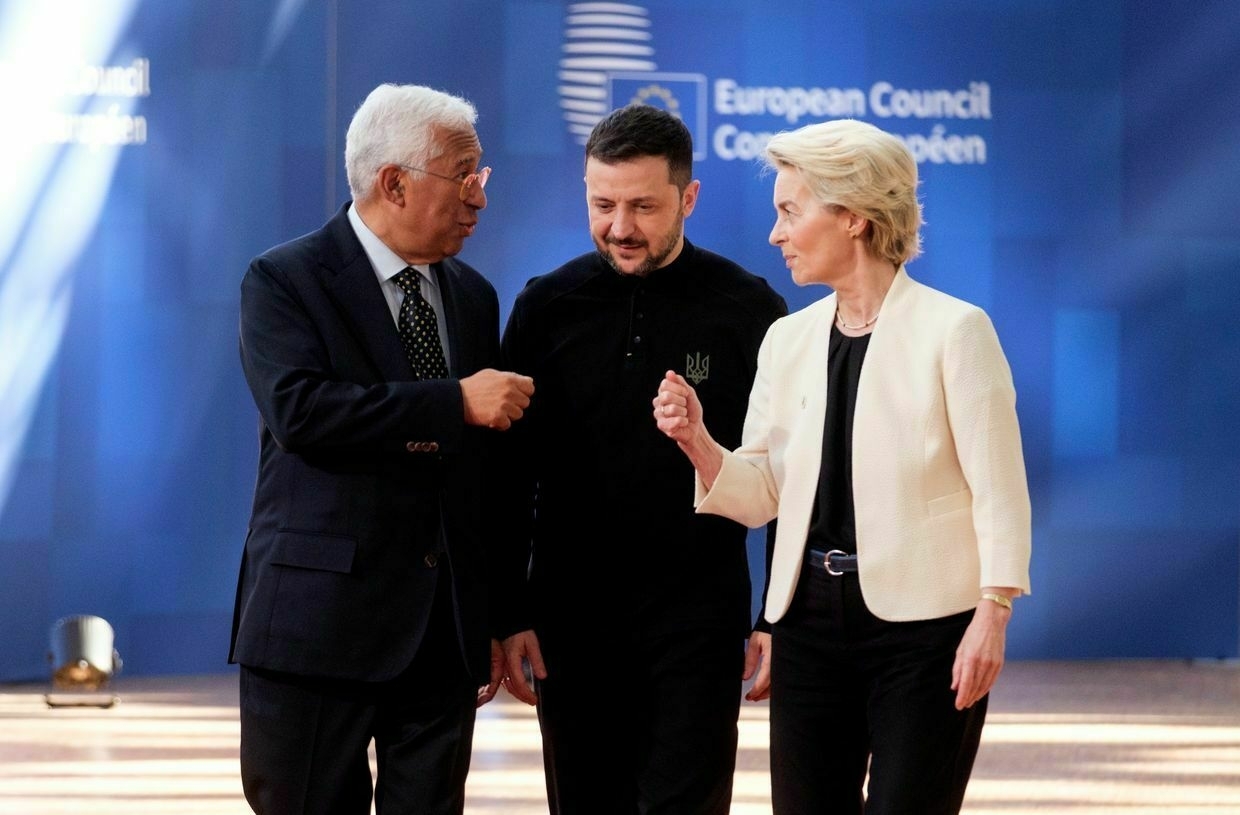
The European Union is developing a plan to generate more revenue for Ukraine by shifting nearly 200 billion euros ($215 billion) in frozen Russian assets into higher-yield, riskier investments, Politico reported on June 19, citing unnamed sources.
The assets, largely held by Belgium-based clearinghouse Euroclear, have been immobilized since 2022 under EU sanctions imposed following Russia’s full-scale invasion of Ukraine.
Under the current framework, the funds are invested conservatively with the Belgian central bank, generating low but steady returns. In 2024, this approach yielded around 4 billion euros ($4.3 billion) in windfall profits, which the EU allocated to help service a G7-backed 45-billion-euro loan for Ukraine (around $50 billion).
Now, with that loan largely disbursed and concerns mounting over future financing, especially amid signals from U.S. President Donald Trump that American support could be scaled back, EU officials are under pressure to find new funding streams.
According to Politico, the proposed plan would redirect the frozen Russian assets into a special investment fund under EU control, allowing for higher returns without confiscating the assets — a move designed to sidestep legal and political opposition.
As part of the current G7-led funding framework, Ukraine has already received 7 billion euros ($8 billion) from the EU under the Extraordinary Revenue Acceleration (ERA) initiative, which uses profits from frozen Russian sovereign assets to fund loans.
Prime Minister Denys Shmyhal confirmed on June 13 that a fifth tranche of 1 billion euros ($1.1 billion) had been disbursed to support Ukraine’s state budget. The ERA mechanism, part of the broader $50 billion G7 program, aims to ensure stable financing for Kyiv while making Russia shoulder the cost of its aggression.
According to Politico, finance ministers from all 27 EU countries are expected to debate the idea during an informal dinner in Luxembourg on June 19.
Poland, which currently holds the Council of the EU’s rotating presidency, emphasized the urgency of the discussions, writing in an invitation letter seen by Politico that “further steps regarding the sanctions regime” and the potential use of frozen Russian assets “must be addressed."
The European Commission has also been holding informal consultations with a group of member states, including France, Germany, Italy, and Estonia, to explore legal options for keeping the Russian assets frozen in case Hungary exercises its veto power during the semiannual sanctions renewal process. So far, no workaround has been finalized.
Hungarian Prime Minister Viktor Orban has repeatedly threatened to block sanctions extensions as a gesture of goodwill toward Moscow, raising concerns the assets could be unfrozen and returned to Russia by default.
By now, much of the EU’s 50-billion-euro ($57 billion) Ukraine Facility, agreed in 2023 and intended to last through 2027, has already been spent. The bloc’s broader 1.2-trillion-euro ($1.37 billion) budget is stretched thin, and any additional top-ups would also require unanimous support.
Russia just accidentally admitted to its staggering troop losses in UkraineA senior Russian official on June 19 inadvertently confirmed the staggering troop losses incurred by Moscow’s forces during its full-scale invasion of Ukraine. In an interview with CNN, Russian Ambassador to the U.K. Andrey Kelin was asked about Moscow’s maximalist intentions in Ukraine and its ability to recruit enoughThe Kyiv IndependentChris York
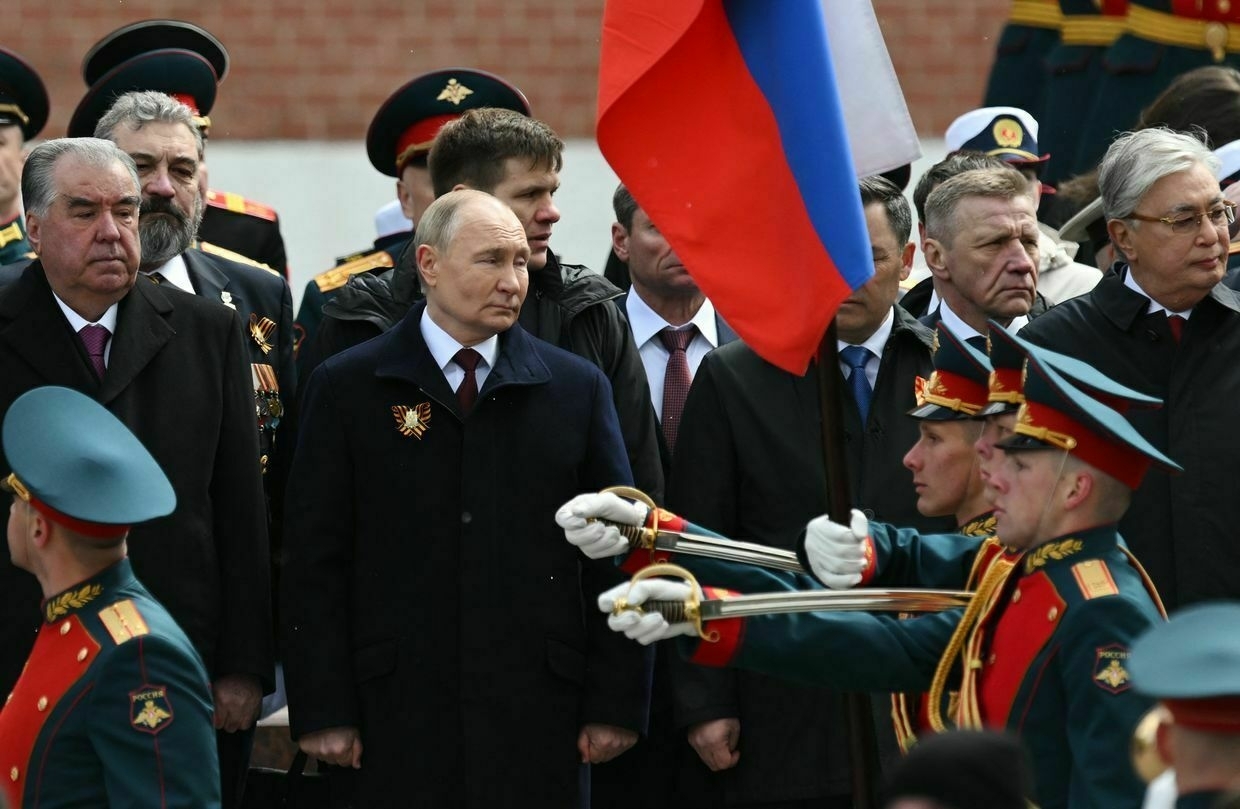
-
Putin, Xi to agree to meet in China as they sneer at G7 summit fractures
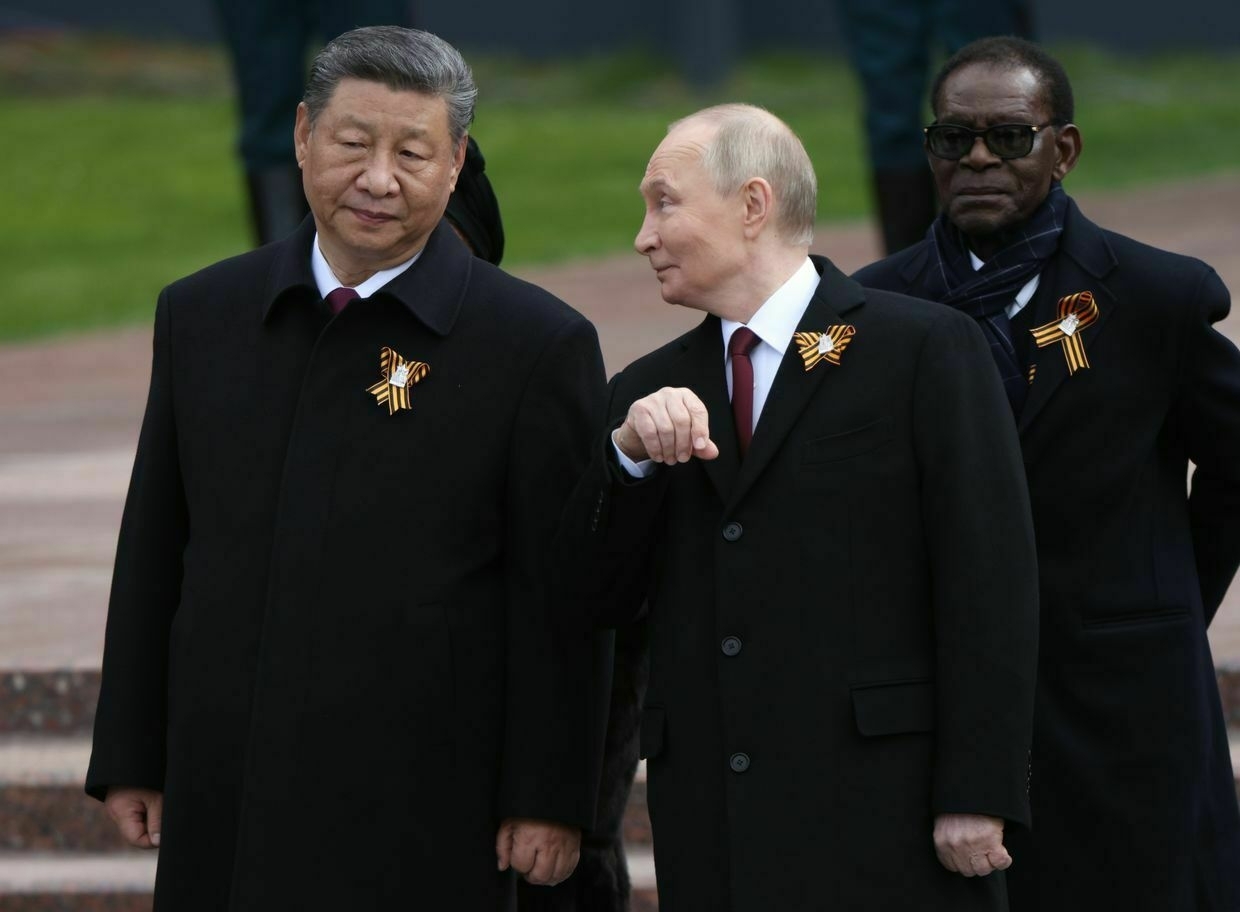
Russian President Vladimir Putin and Chinese President Xi Jinping agreed to meet in August and September and noted the supposed “rough edges” that emerged among G7 leaders during their summit, said Putin’s aide, Yuri Ushakov, on June 19.
In a phone call, the two leaders agreed to meet at the Shanghai Cooperation Organization summit in Tianjin, China, between Aug. 31 and Sept. 1, and hold bilateral talks on Sept. 2, Ushakov said, according to the state news agency TASS.
China has been a key ally to Russia during its full-scale war, helping Moscow evade Western sanctions and becoming the leading source of dual-use goods fueling the Russian defense industry. Xi and Putin previously met during the Victory Day celebrations in Moscow in May.
While their phone call focused on the escalating security situation in the Middle East, the leaders also touched upon the G7 summit, noting “the well-known rough edges that emerged among the participants of this meeting,” Ushakov said.
Putin and Xi also reportedly made mocking comments toward President Volodymyr Zelensky, saying it was not his “most successful trip abroad."
Zelensky was expected to meet U.S. President Donald Trump at the G7 summit in Canada, held from June 15 to 17, to discuss ways to increase pressure on Russia to end the war. Before Zelensky even arrived, Trump left the summit to address the escalating crisis in the Middle East, snubbing the meeting with the Ukrainian leader.
The G7 leaders were also unable to agree on a joint statement as the U.S. pushed for watered-down language on Russia. Instead, Canadian Prime Minister Mark Carney issued a summary saying that “G7 leaders expressed support for President Trump’s efforts to achieve a just and lasting peace in Ukraine."
“They recognized that Ukraine has committed to an unconditional ceasefire, and they agreed that Russia must do the same. G7 leaders are resolute in exploring all options to maximize pressure on Russia, including financial sanctions,” the statement read.
While initially pledging to broker a swift peace deal between Kyiv and Moscow, Trump has become increasingly disengaged with the effort and resisted calls to increase pressure on Russia via additional sanctions.
Despite Trump’s departure and disagreements with the U.S., Zelensky left the G7 summit with additional pledges of military support from Canada and new sanctions imposed against Russia’s energy sector.
“Today, we have concrete decisions on increased military support, new tranches of aid funded by frozen Russian assets, and additional sanctions targeting what fuels Russia’s war,” Zelensky said after the summit.
Zelensky also told the G7 leaders that “diplomacy is now in a state of crisis” and urged allies to press Trump “to use his real influence” to force an end to the war.
Diplomacy in crisis: G7 letdowns reveal limits to Western solidarity on UkraineKANANASKIS, Canada — The Group of Seven (G7) Leaders’ Summit ended on June 17 with no joint statement in support of Ukraine, no commitments to provide desperately needed U.S. weapons, and no meeting between President Volodymyr Zelensky and U.S. President Donald Trump. The Ukrainian delegation headed into the summit,The Kyiv IndependentDmytro Basmat
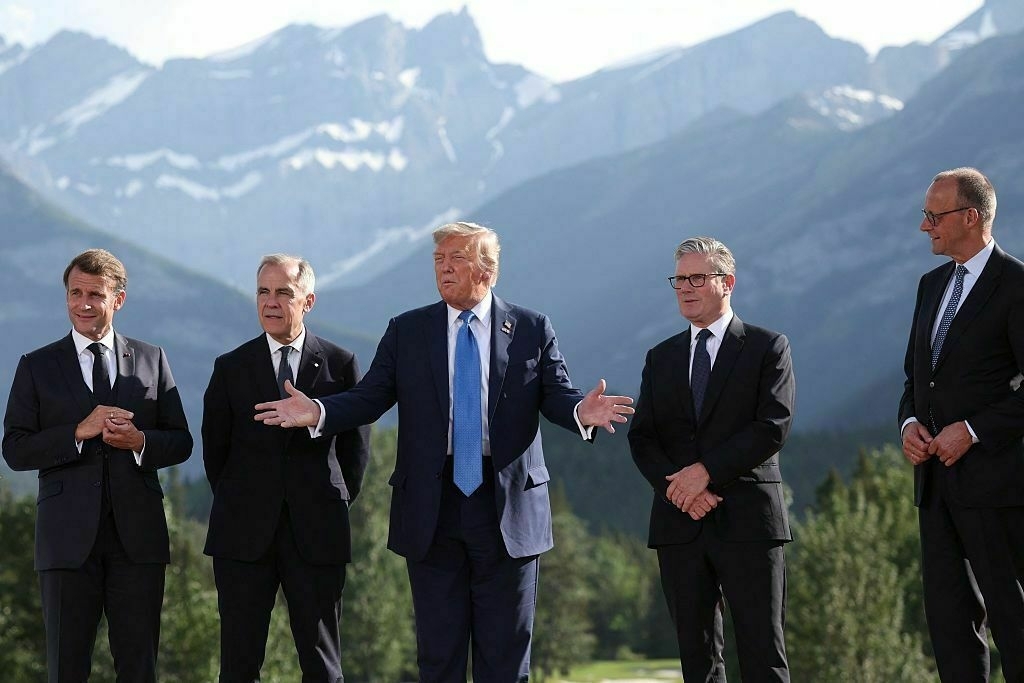
-
Russia just accidentally admitted to its staggering troop losses in Ukraine
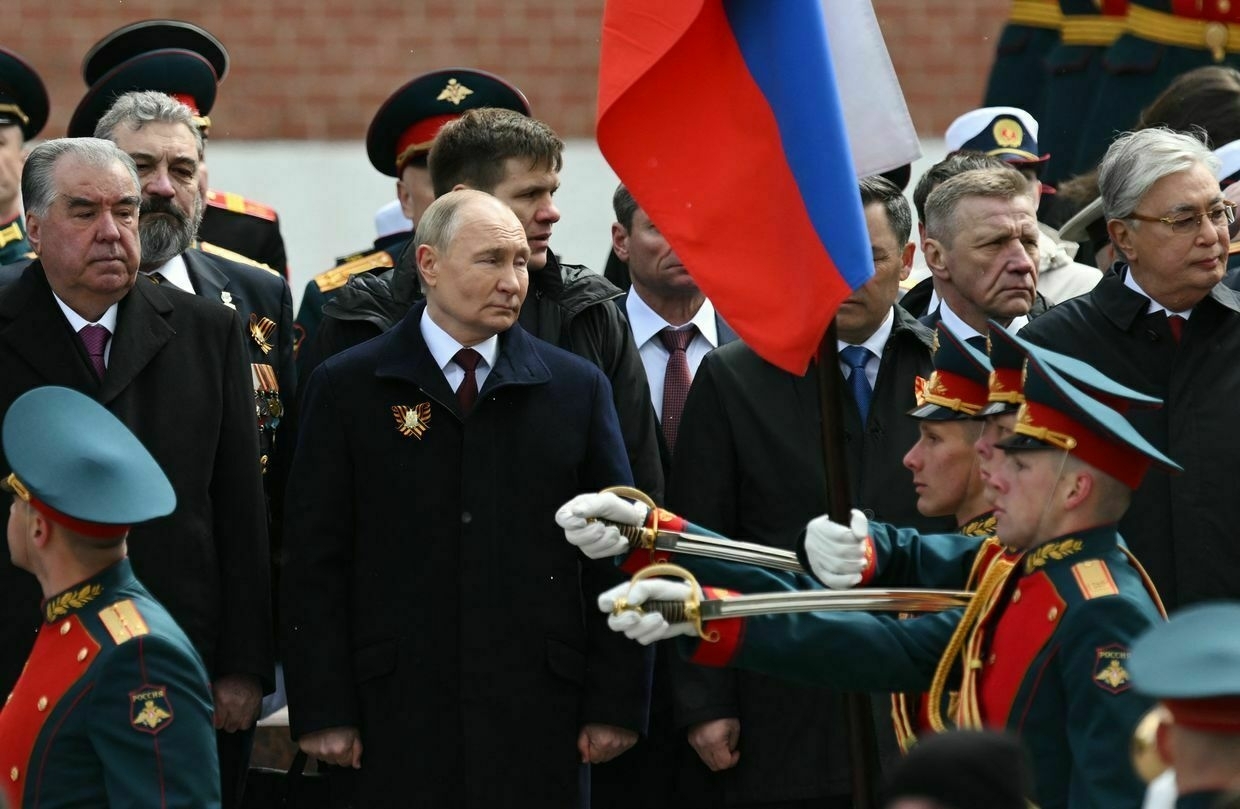
A senior Russian official on June 19 inadvertently confirmed the staggering troop losses incurred by Moscow’s forces during its full-scale invasion of Ukraine.
In an interview with CNN, Russian Ambassador to the U.K. Andrey Kelin was asked about Moscow’s maximalist intentions in Ukraine and its ability to recruit enough soldiers to fulfill them.
Despite ongoing U.S.-led peace efforts, Russia continues to demand Ukraine withdraws from the four partially occupied regions — Donetsk, Luhansk, Kherson, and Zaporizhzhia — as a precondition for negotiations.
Meanwhile, according to figures from Kyiv, Russia has suffered more than 1 million dead, wounded, and missing soldiers since the start of its full-scale invasion.
Kelin dismissed the 1 million casualties figure but did confirm that “about 600,000” Russian soldiers were fighting in Ukraine, a number which tallies with Ukrainian estimates from January.
The number is actually lower than the 700,000 (Russian President Vladimir) Putin claimed in June 2024, and the 617,000 he claimed in December 2023.
Kelin was then asked about Russian army recruitment.
“I’m not a specialist in this area, but as I understand it we have 50-60,000 a month, those volunteers who are coming, recruiting, posting, and they would like to get engaged in this thing (in Ukraine),” he replied.
He did not explain why the size of the Russian army fighting in Ukraine has gone down despite what would amount to around 250,000 extra troops being recruited and sent to the front since the beginning of the year.
According to figures from Ukraine’s General Staff, Russia has lost 217,440 troops since Jan. 1, 2025.
The discrepancy tallies with Western analysis of Russia’s staggering losses.
“They lose somewhere in the ballpark of 35,000 to 45,000 people per month, and perhaps they recruit a little bit north of that number,” George Barros, Russia team lead at the Institute for the Study of War (ISW), told the Kyiv Independent earlier this month.
Given that Russia is having to pay people to sign up, the losses have potentially huge ramifications for the country’s economy.
According to an analysis by economist Janis Kluge, Russia’s daily bill just for sign-up bonuses is $24 million.
The ballooning bills come at a time when Russia’s economy is already under huge strain from Western sanctions and falling oil and gas revenues.
“The implications for Russia are grave,” energy security analyst Wojciech Jakobik wrote in an op-ed for the Kyiv Independent this week.
According to Barros, making any predictions about whether or not the Russian economy is going to collapse is “supremely difficult to do,” but the signs for the Kremlin “don’t bode well."
“If you look at the current Russian economic indicators, for example their inflation rate, their overnight lending interest rates, Russian monetary constraints… government spending is out of control — it’s a very loose fiscal policy and so the economy is at risk of overheating,” he said.
“I don’t know to what extent the economy can continue to last."
As Russian losses in Ukraine hit 1 million, Putin’s war economy heads toward breaking pointRussian losses in Ukraine hit a massive, and grim milestone on June 12 — 1 million Russian soldiers killed or wounded during the 39-month-long full-scale war, according to figures from Kyiv. Although hugely symbolic, the number is unlikely to prompt a change in tactics from Moscow as it gears up forThe Kyiv IndependentChris York
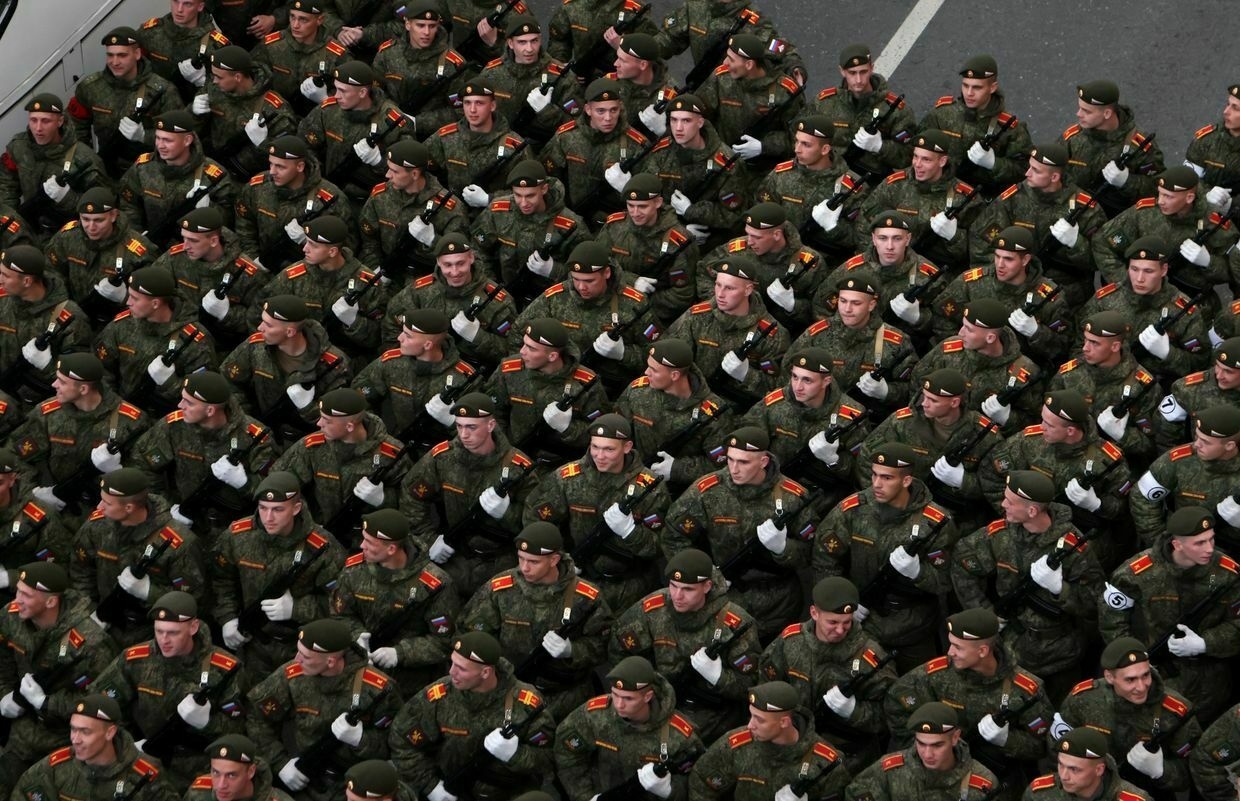
-
Finland votes to withdraw from landmine treaty, citing Russian threat
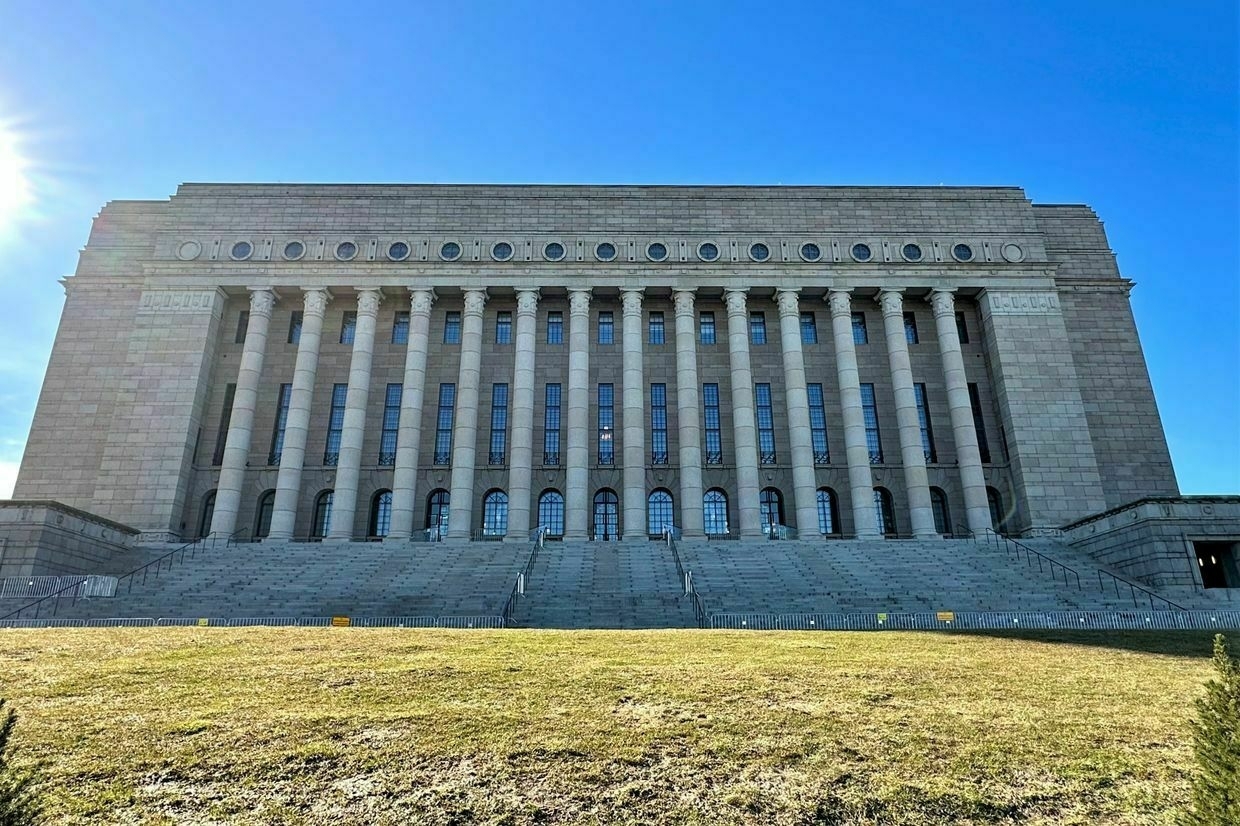
Finland’s parliament voted on June 19 to withdraw from the Ottawa Convention banning anti-personnel landmines, citing growing security concerns from Russia’s aggressive posture and the threat it poses to the region, Reuters reported.
The vote aligns Finland with its Baltic allies, Estonia, Latvia, and Lithuania, whose parliaments have already approved similar exits from the treaty.
Defending the decision earlier this week, Finnish President Alexander Stubb said the security reality along Finland’s 1,300-kilometer (800-mile) border with Russia had changed dramatically since the full-scale invasion of Ukraine, according to TVP.
“The reality in the endgame is that we have as our neighboring country an aggressive, imperialist state called Russia, which itself is not a member of the Ottawa Treaty and which itself uses landmines ruthlessly,” Stubb said.
Russia has widely deployed landmines across Ukrainian territory since launching its invasion in 2022, a tactic condemned by human rights organizations and Western governments.
Finland, which joined NATO in 2023, has significantly ramped up its defense posture amid growing concern over potential Russian provocations. The country closed its border with Russia over a year ago, accusing Moscow of orchestrating a “hybrid operation” by directing asylum seekers toward Finnish territory. Helsinki claims such hybrid tactics have intensified since it joined the alliance.
The Finnish Border Guard completed the first 35 kilometers (22 miles) of a planned 200-kilometer (124-mile) fence along its eastern frontier on May 21. The move came amid growing evidence of Russian military infrastructure expansion near the Finnish border.
Finland is “closely monitoring and assessing Russia’s activities and intentions,” Finland’s Defense Minister Antti Hakkanen told AFP on May 22.
“We have excellent capabilities to observe Russian operations. As a member of the alliance, Finland holds a strong security position."
Russia’s Defense Minister Andrei Belousov said in December 2024 that Moscow must be ready for a potential conflict with NATO within the next decade. Western officials have repeatedly warned of the possibility that Moscow could target NATO members in the coming years.
Diplomacy in crisis: G7 letdowns reveal limits to Western solidarity on UkraineKANANASKIS, Canada — The Group of Seven (G7) Leaders’ Summit ended on June 17 with no joint statement in support of Ukraine, no commitments to provide desperately needed U.S. weapons, and no meeting between President Volodymyr Zelensky and U.S. President Donald Trump. The Ukrainian delegation headed into the summit,The Kyiv IndependentDmytro Basmat
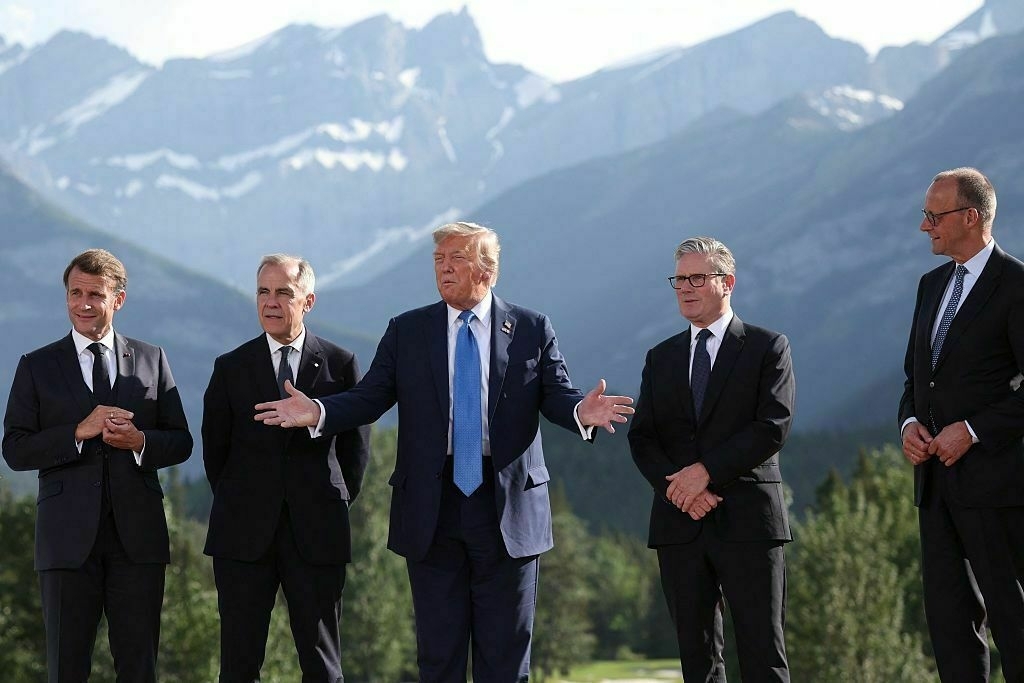
-
Diplomacy in crisis: G7 letdowns reveal limits to Western solidarity on Ukraine
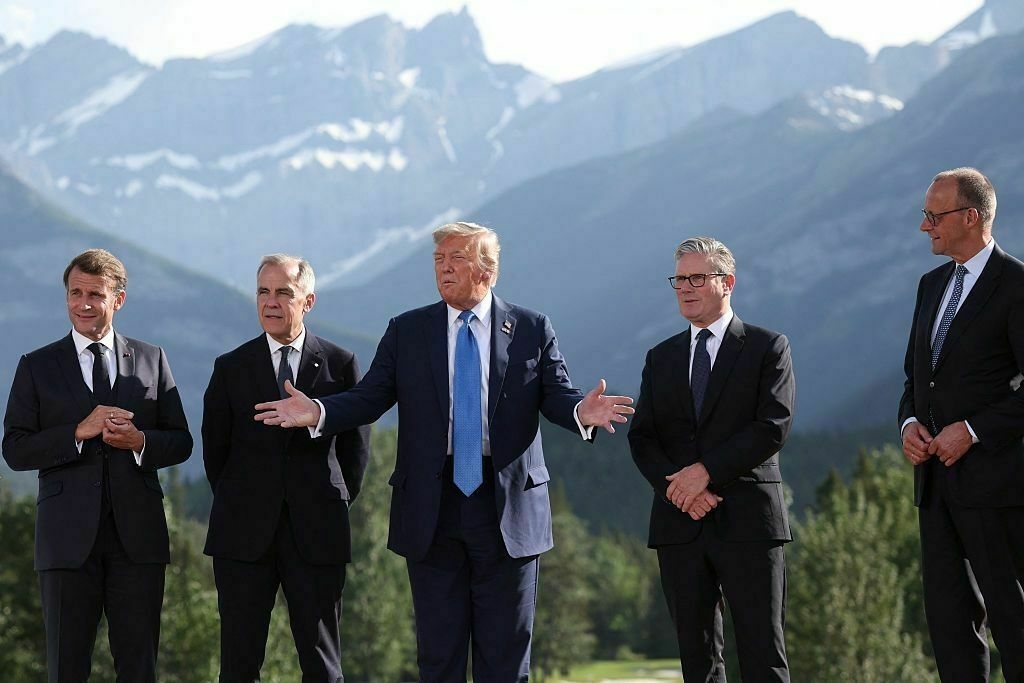
KANANASKIS, Canada — The Group of Seven (G7) Leaders' Summit ended on June 17 with no joint statement in support of Ukraine, no commitments to provide desperately needed U.S. weapons, and no meeting between President Volodymyr Zelensky and U.S. President Donald Trump.
The Ukrainian delegation headed into the summit, held in the remote community of Kananaskis, Canada, with an air of cautious optimism and hopes of winning renewed international support.
Instead, Trump left, Russia slammed Kyiv with ballistic missiles, and optimism quickly turned to anxiety.
As Zelensky arrived in Kananaskis on June 17, Moscow hit Kyiv with one of the largest Russian attacks on the capital since the start of the war — a brutal strike that killed 28 people and injured 134.
Zelensky, who learned of the attack en route to Canada, hoped to once again rally world leaders around Ukraine’s defense and convince them to mount pressure on Russia in light of the relentless attacks on civilians. But Trump — the man with the most power to impact the course of the war and prospects for peace — met the moment with indifference.
Trump departed the summit just hours ahead of Zelensky’s arrival, saying he was leaving to tend to a different conflict: “I have to be back (to the White House) as soon as I can … because of what’s going on in the Middle East,” Trump told reporters, referring the escalating conflict between Israel and Iran. “I have to be back early for obvious reasons,” Trump said, without further elaborating.
Trump was expected to meet with Zelensky on the sidelines of the G7 summit on June 17, marking their third in-person meeting since the American president took office in January. After his sudden exit, the Ukrainian delegation was left with the impression that Trump had brushed off their concerns.
While Kyiv managed to make progress and maintain unity among remaining world leaders at the summit, the bleak state of U.S.-Ukrainian relations casts a shadow over these gains. Zelensky left the summit early, with even more uncertainty about how Ukraine can win the war in the face of dwindling U.S. support.
Relations with Trump continue to sour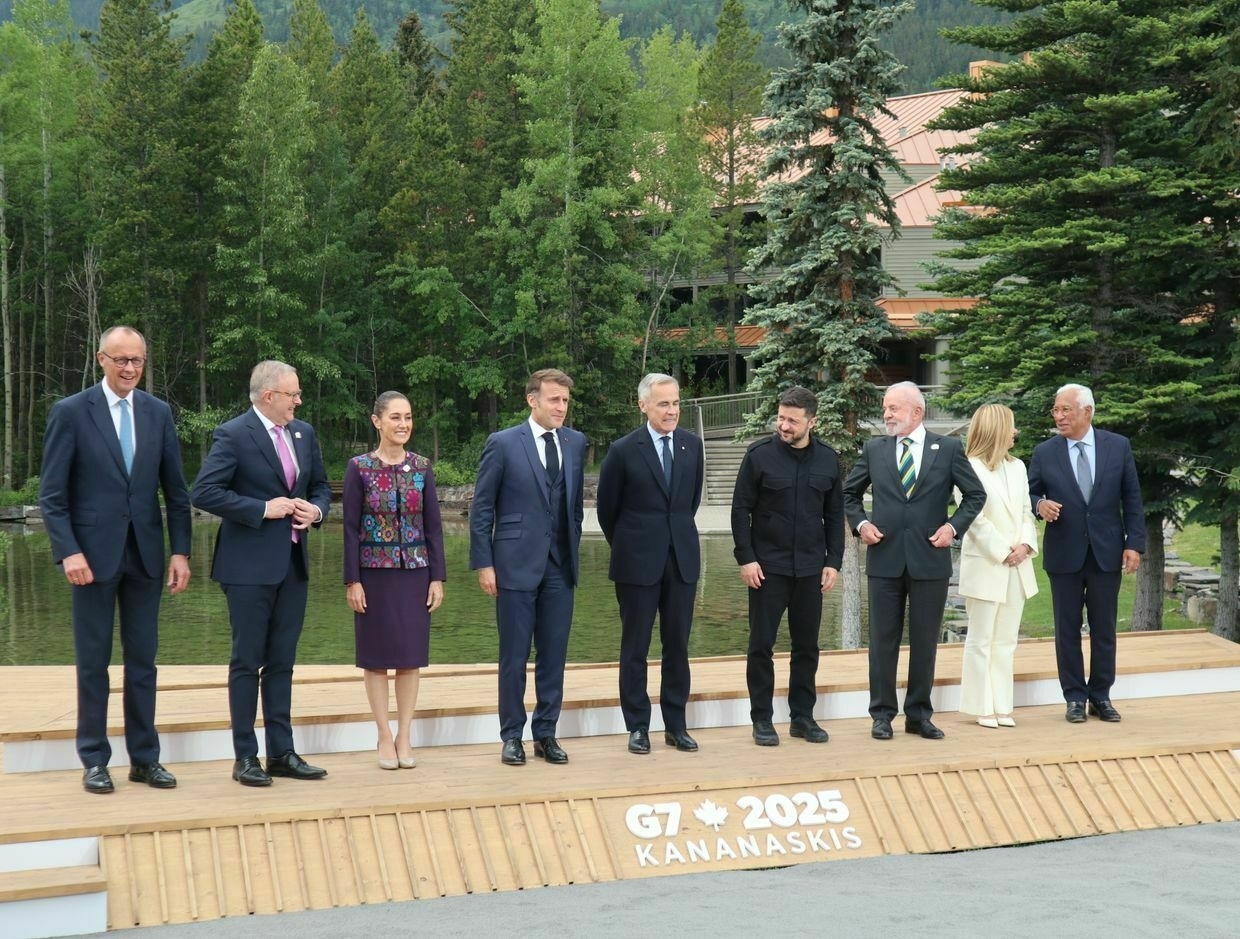
World leaders prepare to pose for their ‘family photo’ on June 17, 2025. Noticeably missing is U.S. President Donald Trump who left the summit early on June 16 ahead of President Volodymyr Zelensky’s arrival. (Dmytro Basmat/The Kyiv Independent) After a disastrous first in-person meeting between Trump and Zelensky in the Oval Office in February — during which Trump and Vice President JD Vance lambasted the Ukrainian president over what they described as “a lack of gratitude for U.S. support” — a second meeting in the Vatican helped smooth over tensions between the two leaders.
Zelensky praised his brief but “most substantive” conversation with Trump following the funeral of Pope Francis in early May.
“With all due respect to our teams, the one-on-one format, in my opinion, worked. We had the right atmosphere for the conversation,” Zelensky said after the talk.
At the G7 summit, the Ukrainian delegation hoped to convince Trump to exert additional economic pressure on Moscow through sanctions — which the U.S. president has not followed through on implementing — during a third in-person meeting with Zelensky.
Trump’s exit put those hopes on hold and cost Ukraine an opportunity to improve relations with the White House. Sources familiar with the situation told the Kyiv Independent that there was resounding disappointment within the president’s circle.
Zelensky ended up leaving the summit early too, canceling a planned press conference and additional events in Calgary in the wake of the Russian missile strikes on Kyiv and changes to the G7 agenda.
“What is there (for Zelensky) to say?” a source familiar with the logistics of Zelensky’s canceled press conference said following Trump’s early departure.
Kyiv’s hopes of winning over Washington have run up against Trump’s indifference to a Ukrainian victory and his sympathies with the Kremlin. One expert told the Kyiv Independent that Trump “does not share (the) commitment” that other Western allies do to help put an end to the war.
“Trump seems to be walking away from an attempt to reach a ceasefire in the war, and is focused on the Israel-Iran conflict and U.S. domestic politics,” said Brian Taylor, a professor of political science at Syracuse University.
“Of course, Trump is unpredictable and could change his mind (about providing support for Ukraine), but it seems pretty clear that, for whatever reason, he sympathizes with (Russian President Vladimir) Putin,” Taylor said.
“It looks like President Trump is walking away from his erratic and half-hearted efforts to make a deal to end the Russia-Ukraine War."
Trump’s lack of commitment has Ukraine questioning the value of participating in the upcoming NATO summit in The Hague. Zelensky is reconsidering his attendance at the June 24-25 summit amid questions over Trump’s participation, the Guardian reported on June 17, citing unnamed Ukrainian officials.
One official told the Guardian that Ukraine is in a “permanent hazard” of becoming a victim of “Trump’s short attention span,” adding that Russia has exploited this uncertainty by fresh aerial attacks. The source said there had been “all sorts of promises for this summit,” including U.S. arms.
Minor victories, major uncertainties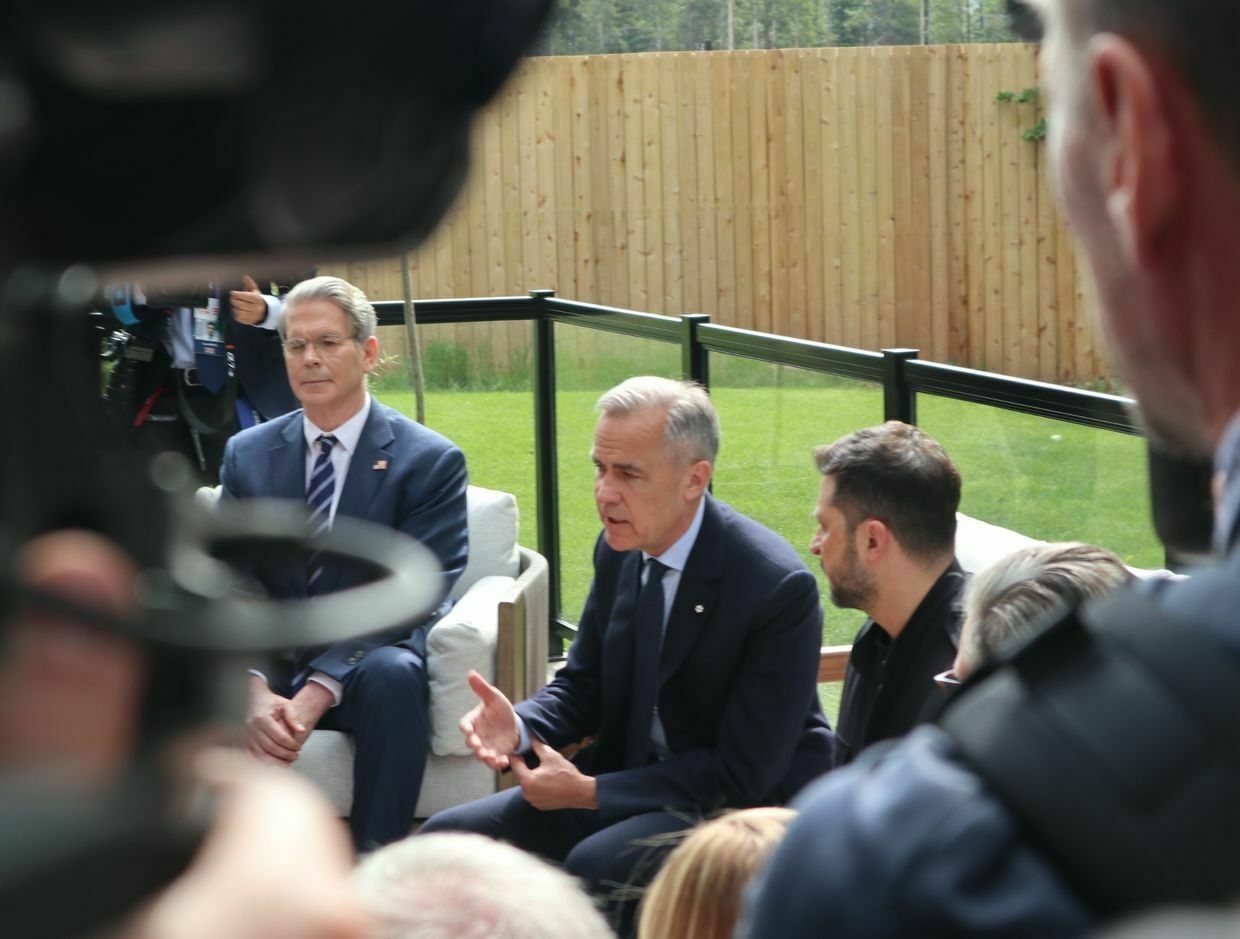
U.S. Treasury Secretary (L) fills in for U.S. President Donald Trump during a “Strong and Sovereign Ukraine” working breakfast on June 17, 2025, following Trump’s early departure from the summit. (Dmytro Basmat/The Kyiv Independent) 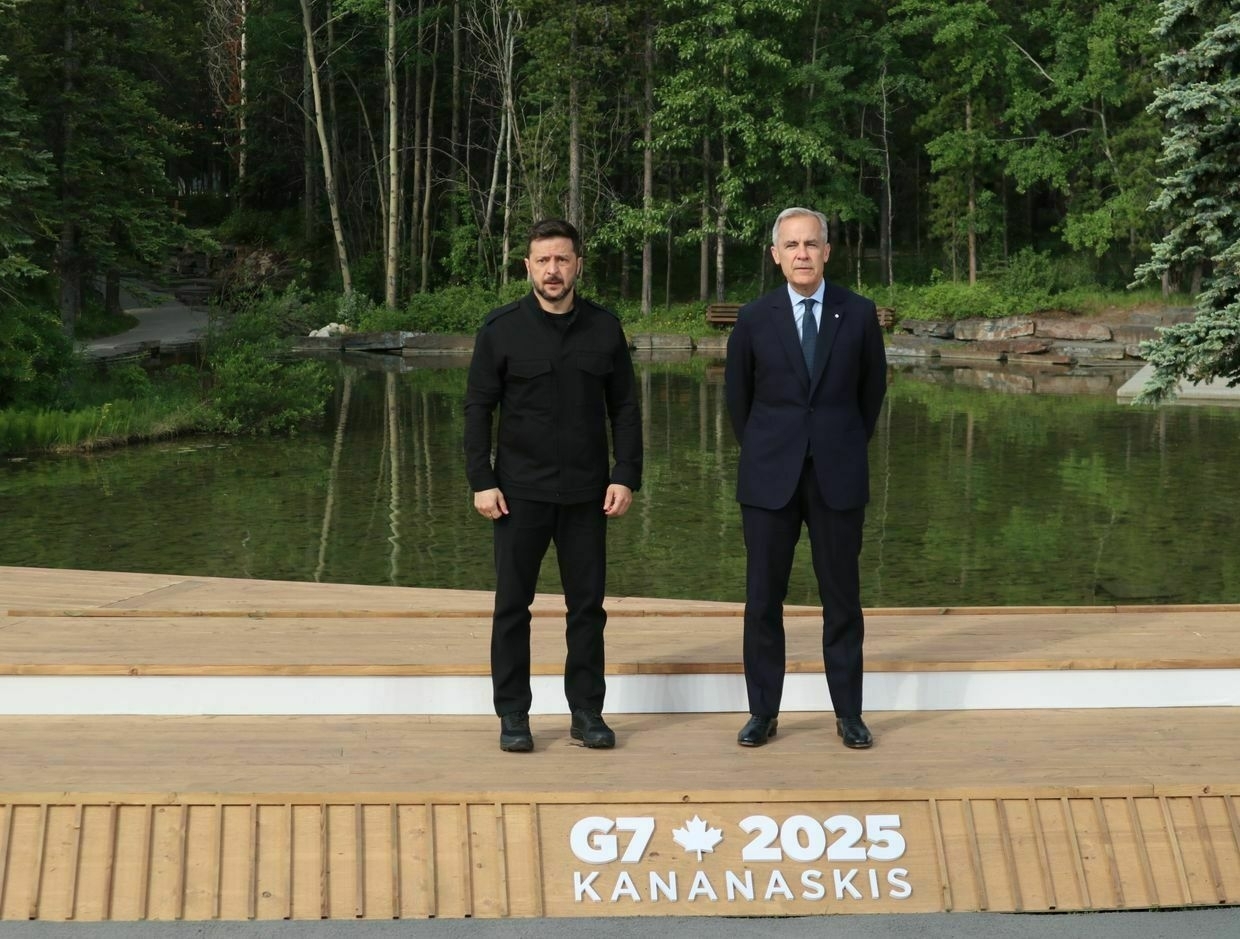
President Volodymyr Zelensky and Canadian Prime Minister Mark Careny, the host of the G7 Leaders' Summit, post for a photo following Zelensky’s arrival at the summit on June 17, 2025. (Dmytro Basmat/The Kyiv Independent) 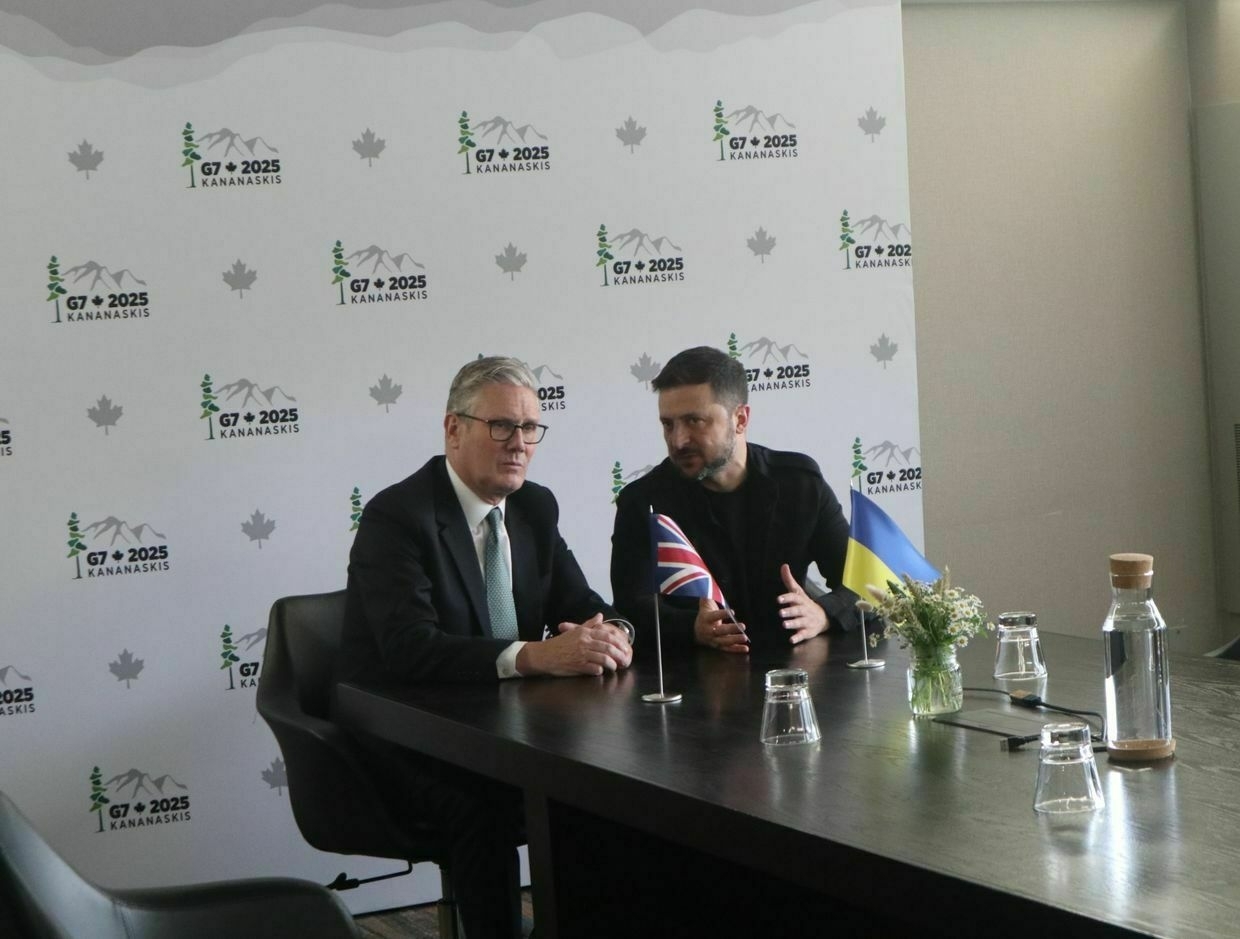
President Volodymyr Zelensky holds a bilateral meeting with British Prime Minister Keir Starmer on the sidelines of the G7 Leaders' Summit in Kananaskis, Alberta, Canada on June 17, 2025. (Dmytro Basmat/The Kyiv Independent) 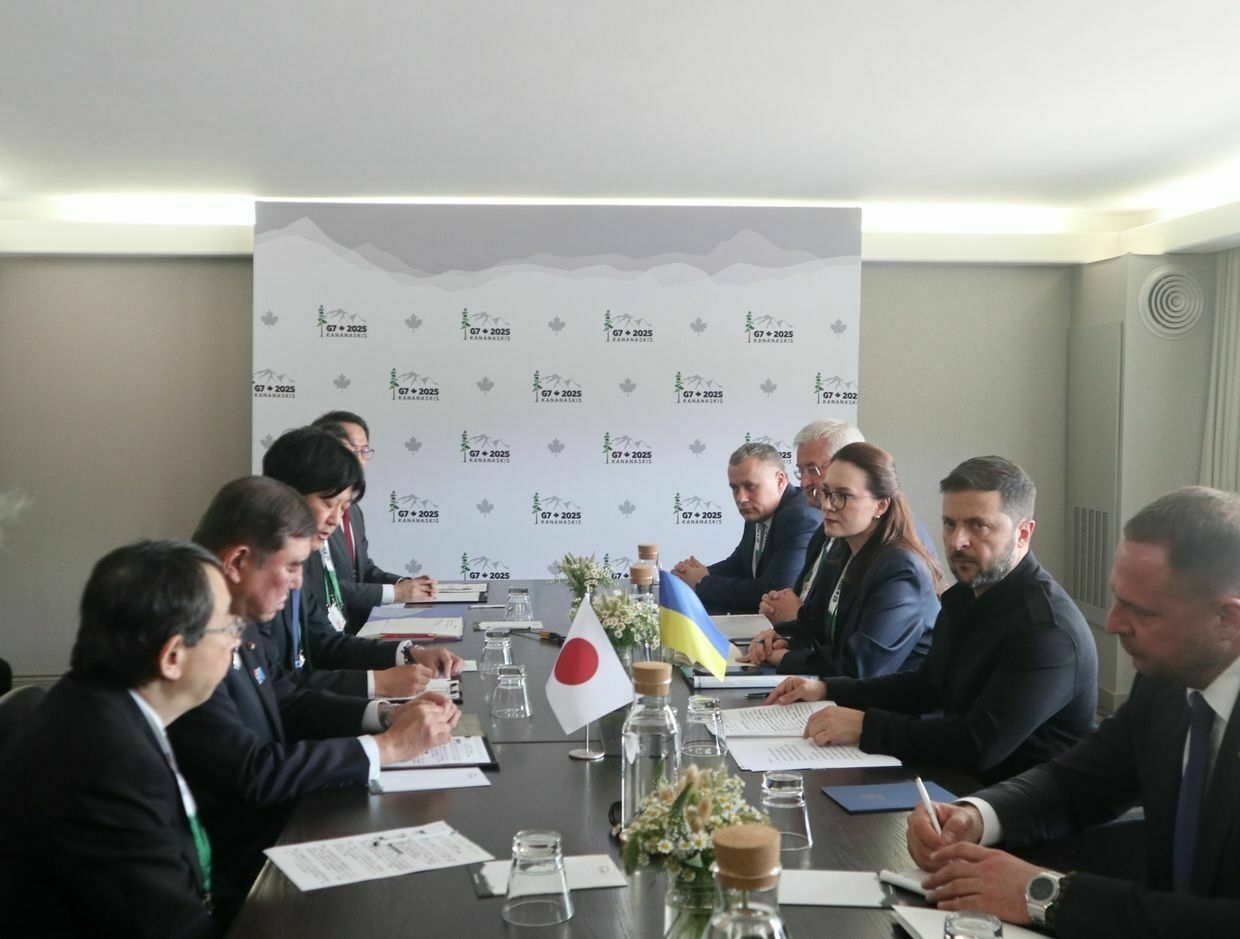
Members of the Ukrainian delegation meet with the Japanese delegation, led by Prime Minister Shigeru Ishiba, on the sidelines of the G7 Leaders' Summit in Kananaskis, Alberta, Canada on June 17, 2025. (Dmytro Basmat/The Kyiv Independent) Despite Trump’s abrupt departure, Zelensky did come out of meetings with other world leaders with some positive results as well as additional support for Ukraine.
Canadian Prime Minister Mark Carney, the host of the summit, announced a sweeping new support package for Ukraine during a bilateral meeting with Zelensky. The measures include two billion Canadian dollars ($1.5 billion) in military funding and new sanctions aimed at restricting Russia’s energy revenues and evasion tactics.
“To be absolutely clear, this support will be unwavering until we get a just peace for Ukraine and the Ukrainian people,” Carney said ahead of the bilateral, attended by the Kyiv Independent.
Additionally, the United Kingdom imposed new restrictions on Russia on June 17, adding 20 vessels from Russia’s so-called “shadow fleet” and 10 individuals and entities to its sanctions list. Australia also joined the U.K. in targeting 60 vessels — its first-ever sanctions against the shadow fleet.
Zelensky said he had told the G7 leaders that “diplomacy is now in a state of crisis” and urged allies to press Trump “to use his real influence” to force an end to the war.
Trump has not been very responsive to such appeals. During a G7 dinner discussion where world leaders reportedly attempted to convince Trump to impose tougher sanctions against Russia, Trump insisted sanctions were too costly for the U.S., according to Bloomberg.
The New York Times reported in May that Trump opposes sanctions because they may jeopardize future business and trade opportunities with Moscow.
While Zelensky pushes for the support and sympathy of Western leaders, the U.S. pushes back — often with disappointing results for Ukraine. Canada reportedly dropped plans for the G7 to issue a joint statement on the war in Ukraine after the U.S. insisted on weakening the language. Instead of a unified call to action, Canada’s Carney released a Chair’s Summary on the event.
“I think the possibility of additional pressure on Russia from the United States, in the form of tougher sanctions and further military assistance for Ukraine, are low,” Taylor said. “The good news for Ukraine from the G7 Summit is that the other six members of the G7 remain firmly behind Ukraine."
Making Moscow payUkraine’s military has warned that Russian forces have intensified operations across the front line amid a renewed summer offensive — meaning Ukraine desperately needs external forces to exert economic pressure on Russia’s war machine.
“The key questions now are, first, will the U.S. Congress try to force Trump into further sanctions and, second, how much can Europe make up for the absence of U.S. support?” Taylor told the Kyiv Independent.
A U.S. sanctions bill, jointly introduced on April 1 by Republican Senator Lindsey Graham and Democratic Senator Richard Blumenthal, seeks to impose a 500% tariff on imports from countries that continue purchasing Russian oil and raw materials. The bill aims to tighten economic pressure and discourage third-party nations from enabling the Kremlin’s energy profits.
Despite broad support for these efforts from his own party, Trump asked Senate Majority Leader John Thune to postpone a vote on the bill, according to Senator Roger Wicker. Semafor reported on June 17 that the bill has been further delayed until at least July as Congress grapples with domestic legislation as well as the conflict in the Middle East.
While the European Union insists that its commitment to Ukraine remains unwavering, the bloc is also vulnerable to U.S. pressure and internal disagreements.
In its 18th package of sanctions against Russia, the EU proposed lowering the oil price cap from $60 to $45 a barrel. While leaders were reportedly prepared to champion the proposal even without support from the U.S., European Commission President Ursula von der Leyen appeared to walk back the price drop during the G7 summit.
“In the last days, we have seen the price has risen so the oil price cap does serve its function,” von der Leyen said. “At the moment, there’s little pressure on lowering the oil price cap."
EU High Representative Kaja Kallas, however, urged the EU to press forward with lowering the cap on Russian oil, even without U.S. support, warning that Middle East tensions could otherwise drive prices up and boost Russia’s revenues.
The EU also requires unanimous support on punitive measures related to Russia, giving Ukraine-skeptic leaders in Slovakia and Hungary an opportunity to obstruct and delay the approval process.
Prospects for peace in Ukraine will likely be determined by the amount of economic strain exerted on Russia. Kyiv now faces tough decisions as to how to publicly court support from Trump without relying too heavily on Washington’s global leadership.
Kyiv may soon be forced to put all its efforts into winning more European support, becoming reliant on allies with more limited capabilities.
Europe must prepare for US scaling down support for Ukraine, Pistorius says“Yes, that’s right. That would be so and we have to deal with that,” German Defense Minister Boris Pistorius told journalists in response to a question about a potential U.S. pullback.The Kyiv IndependentAnna Fratsyvir
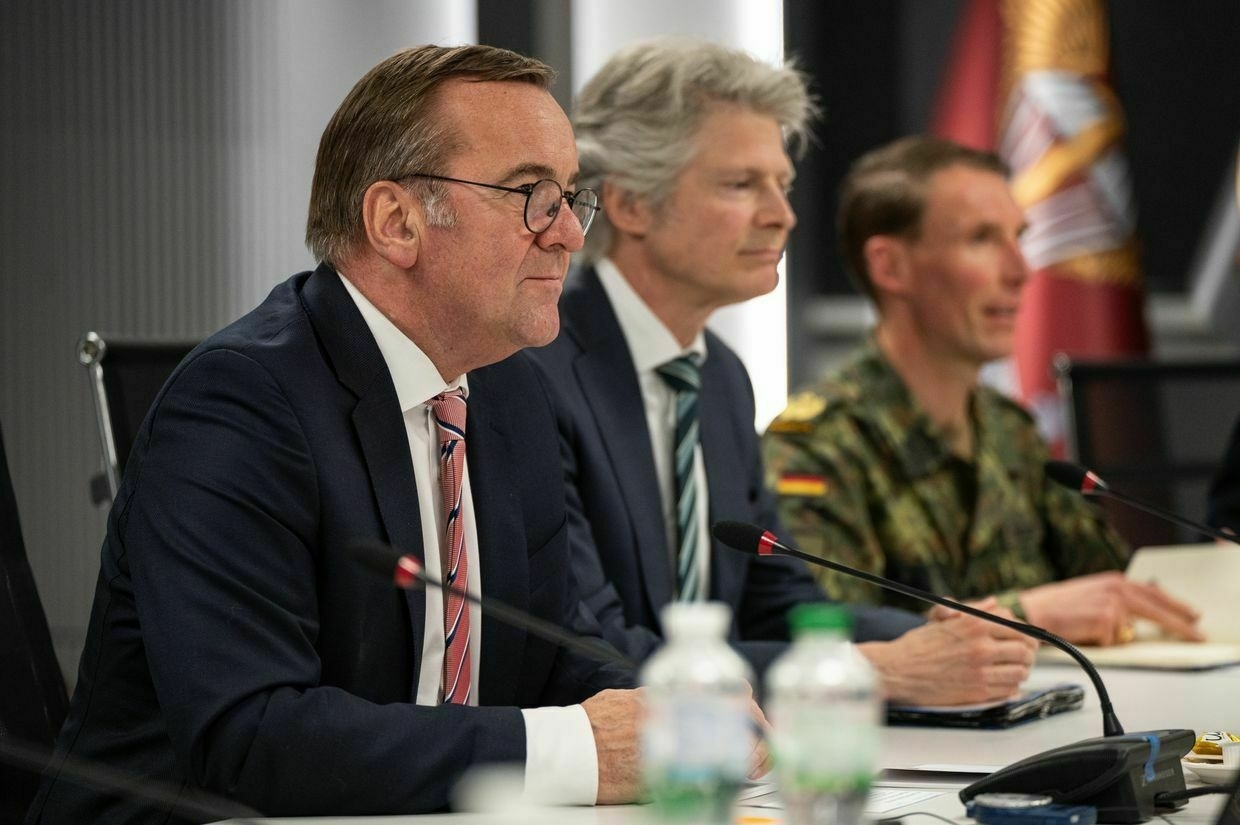
-
Ukraine must accept Moscow's demands or 'surrender,' Russia’s ambassador to UK says
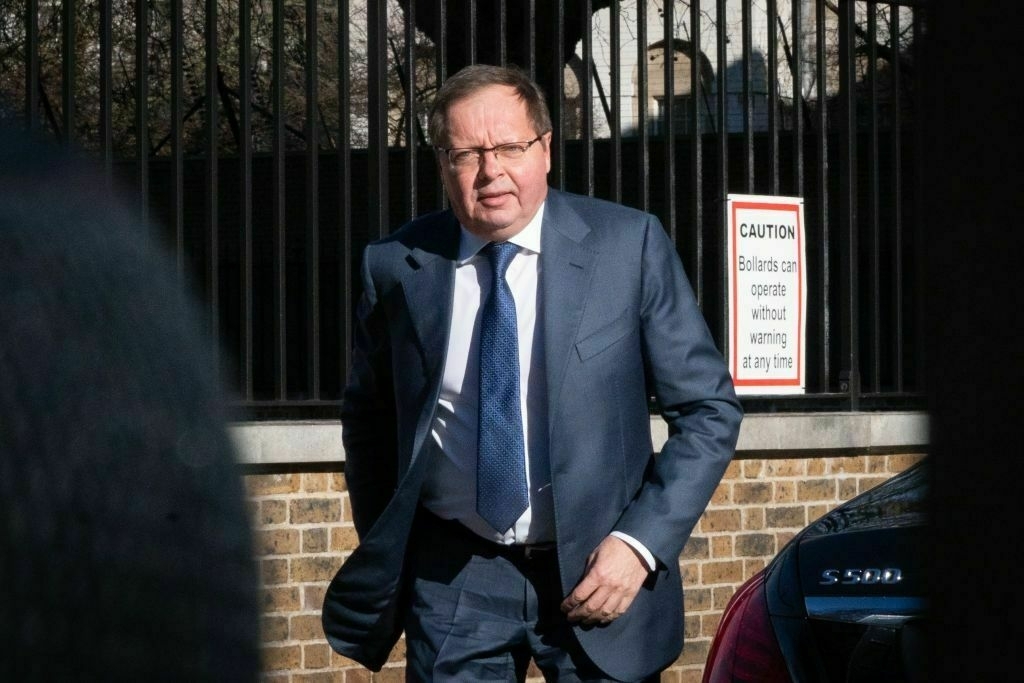
Ukraine must accept Moscow’s terms for ending the war or face further military advances and eventual “surrender,” Russia’s ambassador to the United Kingdom, Andrei Kelin, said in a June 18 interview with CNN.
Talking to CNN host Christiane Amanpour, Kelin said Russia is continuing its offensive and sees no need to stop hostilities, publicly acknowledging Moscow’s disregard for U.S.-backed ceasefire efforts.
The comments come as Russia continues to reject a U.S. truce proposal backed by Kyiv and only intensifies both ground operations and aerial strikes against Ukrainian cities.
“We are now on the offensive and Ukraine is in retreat,” Kelin said. “In May, we have taken about 600 square kilometers (230 square miles) of the territory of Ukraine, and we continue to gain more ground."
According to the open-source intelligence group DeepState, Russian forces occupied approximately 449 square kilometers (173 square miles) in May, the highest monthly figure this year, but still well below Kelin’s claim.
Kelin outlined an ultimatum for Kyiv: either agree to a permanent ceasefire on Russia’s terms or face worse consequences.
“For Ukraine, there is a choice: either they will take our conditions right now… or we will continue this drive and Ukraine will have to surrender under much worse conditions,” he said.
In the most recent peace talks with Ukraine in Istanbul on June 2, Russia again pressed its longstanding maximalist demands, including recognition of Russia’s annexation of Crimea, as well as Kherson, Donetsk, Zaporizhzhia, and Luhansk oblasts — none of which are fully under Moscow’s control.
The Kremlin also insists on Ukraine’s complete military withdrawal from these regions.
The ambassador’s remarks come amid reported preparations for a third round of negotiations with Ukraine after June 22, though no date has been officially confirmed. Kelin described the talks as “stage by stage,” citing prior agreements on prisoner exchanges and humanitarian issues.
Kelin also reiterated long-standing Kremlin demands for Ukraine’s neutrality and the prohibition of NATO membership, calling the alliance “very threatening to us.”
The ambassador insisted on “reestablishment of normal human rights” for ethnic minorities in Ukraine, including Russians, Hungarians, and Poles, a claim Kyiv and Western officials have repeatedly dismissed as a false pretext for invasion.
CNN’s host challenged Kelin on whether such terms amounted to capitulation rather than negotiation. Kelin denied the characterization, maintaining that talks are ongoing and involve “important agreements."
When asked about Russia’s capacity to sustain its military campaign, Kelin claimed Moscow is spending “only 5–7%” of its budget on the war and recruiting up to 60,000 volunteer soldiers monthly, figures Western analysts have not independently verified.
“Only 5–7%” of the budget accounts for around 13.5 trillion rubles ($126 billion). Russia’s spending on war and law enforcement agencies exceeds expenditures on education, healthcare, social policy, and the national economy combined.
As Russian losses in Ukraine hit 1 million, Putin’s war economy heads toward breaking pointRussian losses in Ukraine hit a massive, and grim milestone on June 12 — 1 million Russian soldiers killed or wounded during the 39-month-long full-scale war, according to figures from Kyiv. Although hugely symbolic, the number is unlikely to prompt a change in tactics from Moscow as it gears up forThe Kyiv IndependentChris York
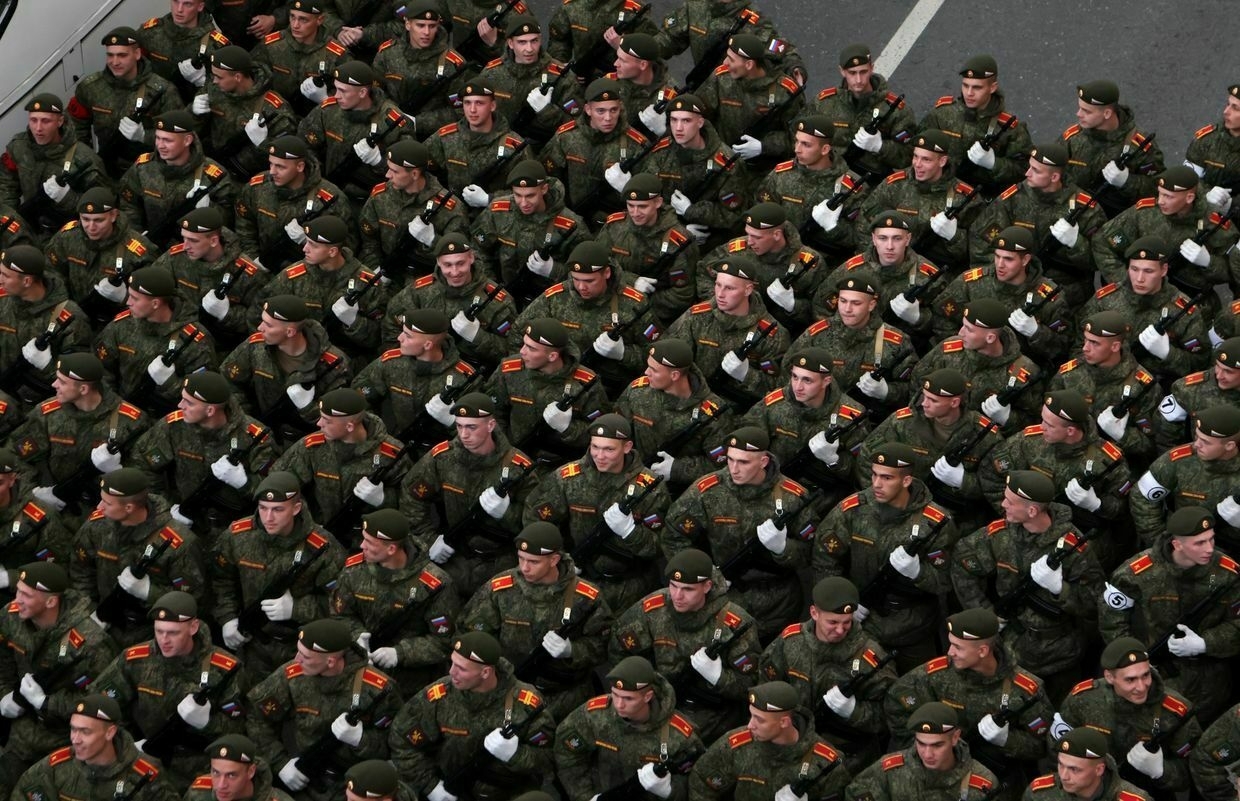
-
Fact Check: Video Does NOT Show Transport Of Giant Missile In Iran Or Elsewhere -- Old Gas Plant Equipment Video
Does a viral video show some kind of giant missile being transported, and is it related to the current conflict between Iran and Israel? No, that's not true: The video, captioned in one social media post as "the weapon that Israel fear the most" is several years old. It appears to show the transport of some heavy equipment to a gas plant in Uzbekistan by a company named "Çaba & Misnak".
The video reappeared in a post on X (archived here) published on June 19, 2025 by an account named "Tehran Updates". It was accompanied by a caption that read:
This is the weapon that Israel fear the most.
This is what the item in the video looked like:
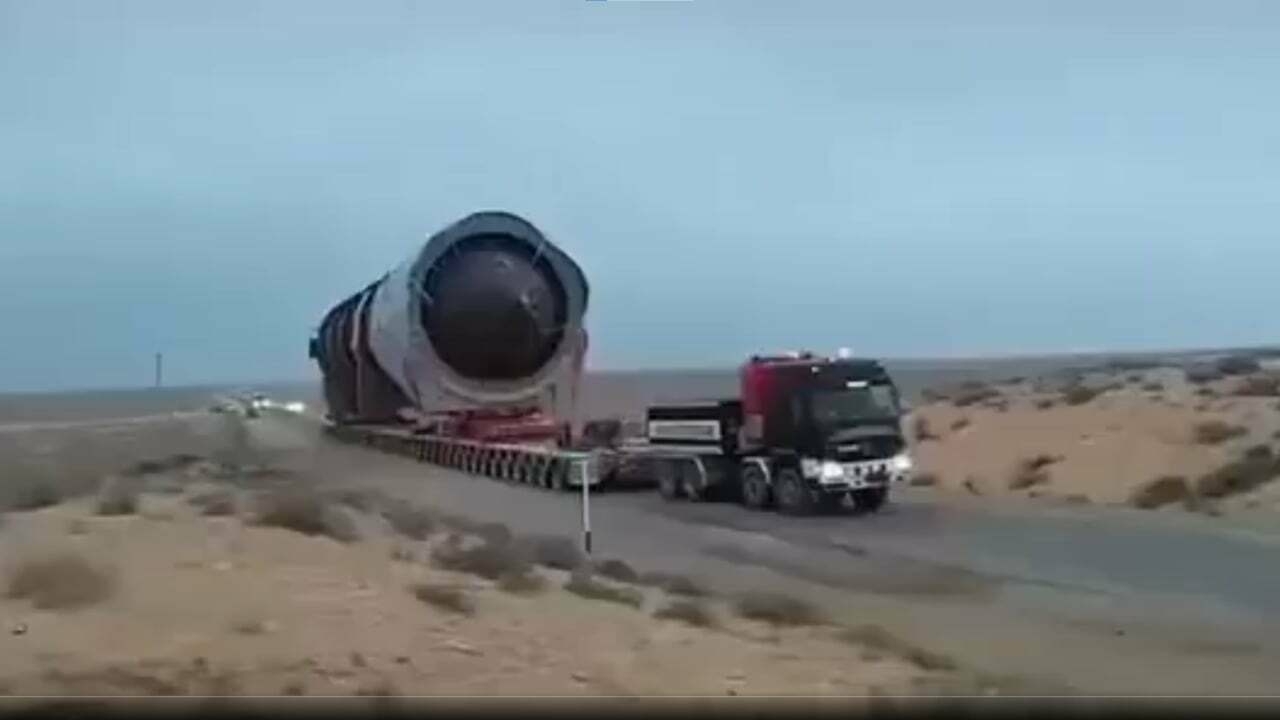
(Image: screenshot from video posted by @TehranDefence on X)
This is the video in question:
This is the weapon that Israel fear the most.pic.twitter.com/27d1TJlIN5
-- Tehran Updates (@TehranDefence) June 19, 2025The video has been online since at least January 21, 2021 when it was posted to Youtube (archived here) with a title that read "QANDIM GAZ ZAVODIGA OPKETISHMOQDA" and a description that read:
#actros #iveco #uzbekistan
Подписывайтесь➡🔝@dalnoboy_uzb_
▶напишите комментарии📝📝📝 Отмечайте друзей 📱↪📱не забудьте ставит❤#volvotrucker #логистик #трасса #грузовики #man
#volvo #actros #самосвал #daf #fura #uzbekistan #tir #magnumphotos #тягач #дальнабой #дальнабойшики #грузовики #двигатель #дорога #man #mersedes #scania #iveco #dalnaboy_uzb_ #kamaz #dalnaboy #трасса #фуры #dalnaboy_rf #dalnoboi #скоростьThis is the video:
Translated by Google Translate, the title read "I'M GOING TO THE KANDIM GAS PLANT" and the description read:
#actros #iveco #uzbekistan
Subscribe➡🔝@dalnoboy_uzb_
▶write comments📝📝📝 Tag your friends 📱↪📱don't forget to put❤#volvotrucker #logistics #highway #trucks #man
#volvo #actros #dump truck #daf #fura #uzbekistan #tir #magnumphotos #tractor #dalnaboy #dalnaboyshiki #trucks #engine #road #man #mersedes #scania #iveco #dalnaboy_uzb_ #kamaz #dalnaboy #highway #trucks #dalnaboy_rf #dalnoboi #speedOne important detail in the video is the marking that says "Çaba & Misnak" on the truck pulling the item:

(Image: screenshot from the video above)
It appears to be a Turkish company (archived here) which describes itself as "the leading heavy haulage and lifting company in Turkey, Iraq and Central Asia". In 2019 they posted an infographic to Instagram (archived here) that appears to show the same transport:
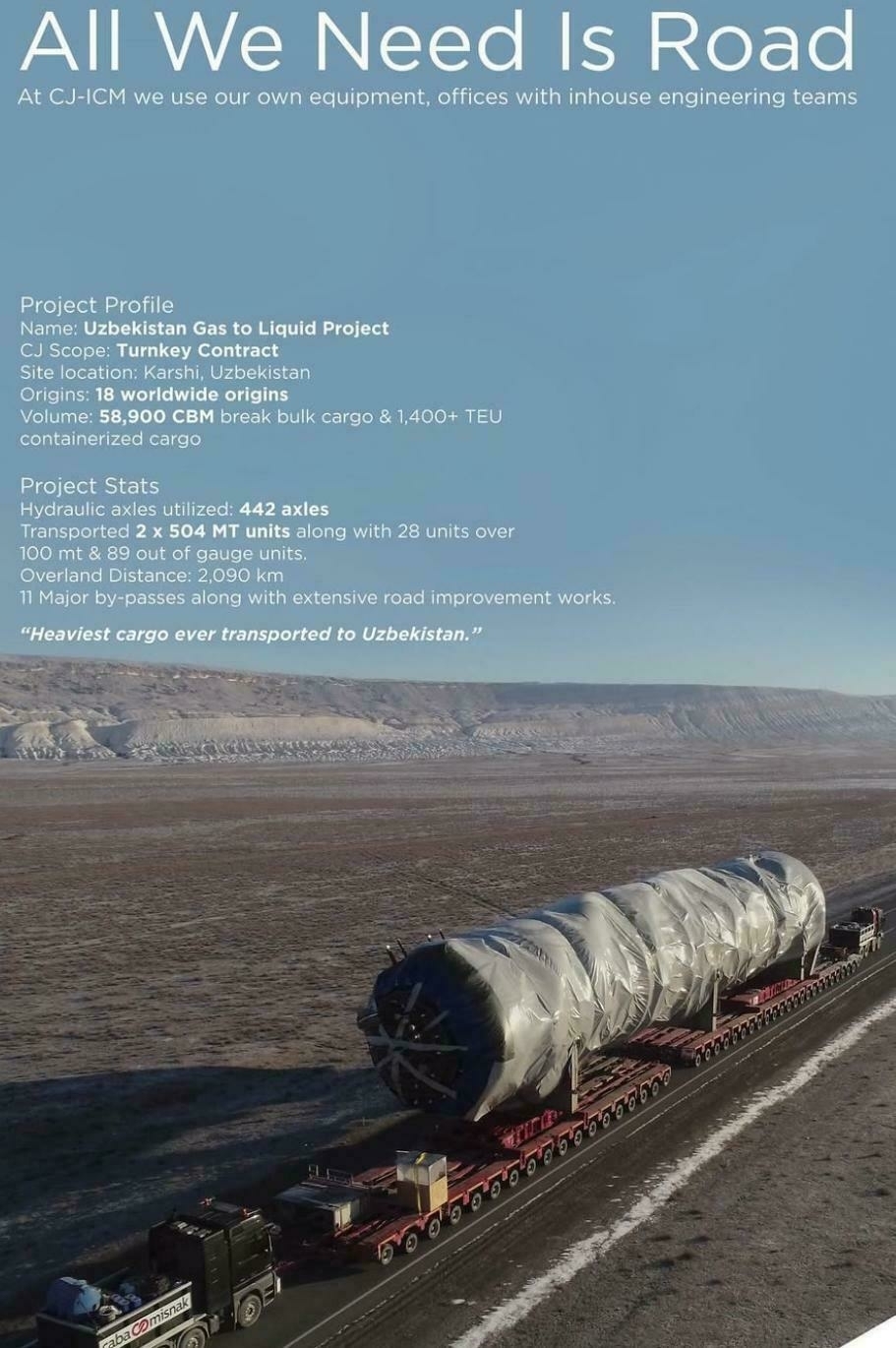
(Image source: https://www.instagram.com/p/B3JqzcrpZ5j/)
Other fact checks
According to AFP, in 2022 the same transport was mistaken for a Russian missile.
-
Russia 'on the verge' of recession, Russian economy minister warns
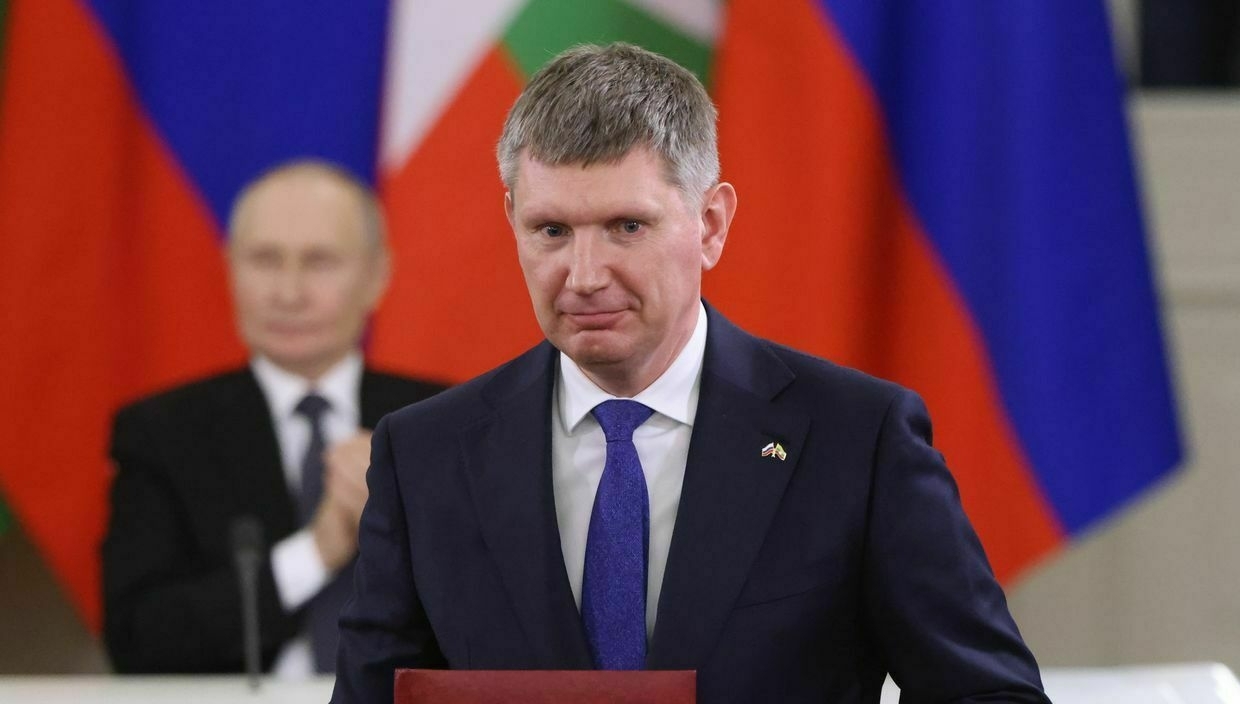
The Russian economy appears to be “on the verge of a transition to recession,” Russian Economy Minister Maxim Reshetnikov said on June 19, adding that the next step will be decisive.
The comments underscore Russia’s mounting economic challenges as it continues its all-out war against Ukraine.
“According to figures, we have a cooling stage (in the economy). But all our numbers are like a rearview mirror,” Reshetnikov said at the St. Petersburg International Economic Forum when asked about Russia’s economic situation.
“According to current business perceptions, we are already, it seems, on the verge of a transition to a recession,” the minister added. Reshetnikov clarified that recession is not inevitable and that “everything depends on our decisions."
Russia has faced soaring inflation during its invasion of Ukraine, driven by record wartime spending. This forced the central bank to set one of the highest key interest rates in decades, hurting private investments in non-defense-related sectors.
Facing government pressure, the central bank slashed the interest rate from 21% to 20% earlier this month.
Reshetnikov himself urged the central bank to cut rates in order to boost growth, aiming to achieve a 3% growth target set by Russian President Vladimir Putin.
Russia has been forced to slash key projects across various sectors in the face of an economic slowdown, brought on in part by plummeting oil prices. Major Russian exporters have also cut down on rail shipments of metals and oil products, even beyond earlier projected reductions.
After some positive signals earlier in 2025 due to U.S. President Donald Trump’s outreach to Moscow and hopes for a ceasefire, more recent reports again indicate a sharp slowdown in Russia’s economic growth.
Analysts have connected this development to the central bank policies, sanctions, low oil prices, supply difficulties, and high inflation.
Putin says he’s ready to meet Zelensky if West ‘stops pushing’ Ukraine to fightRussia wants to end the war in Ukraine “as soon as possible,” preferably through peaceful means, and is ready to continue negotiations — provided that Kyiv and its Western allies are willing to engage, Vladimir Putin said.The Kyiv IndependentOlena Goncharova
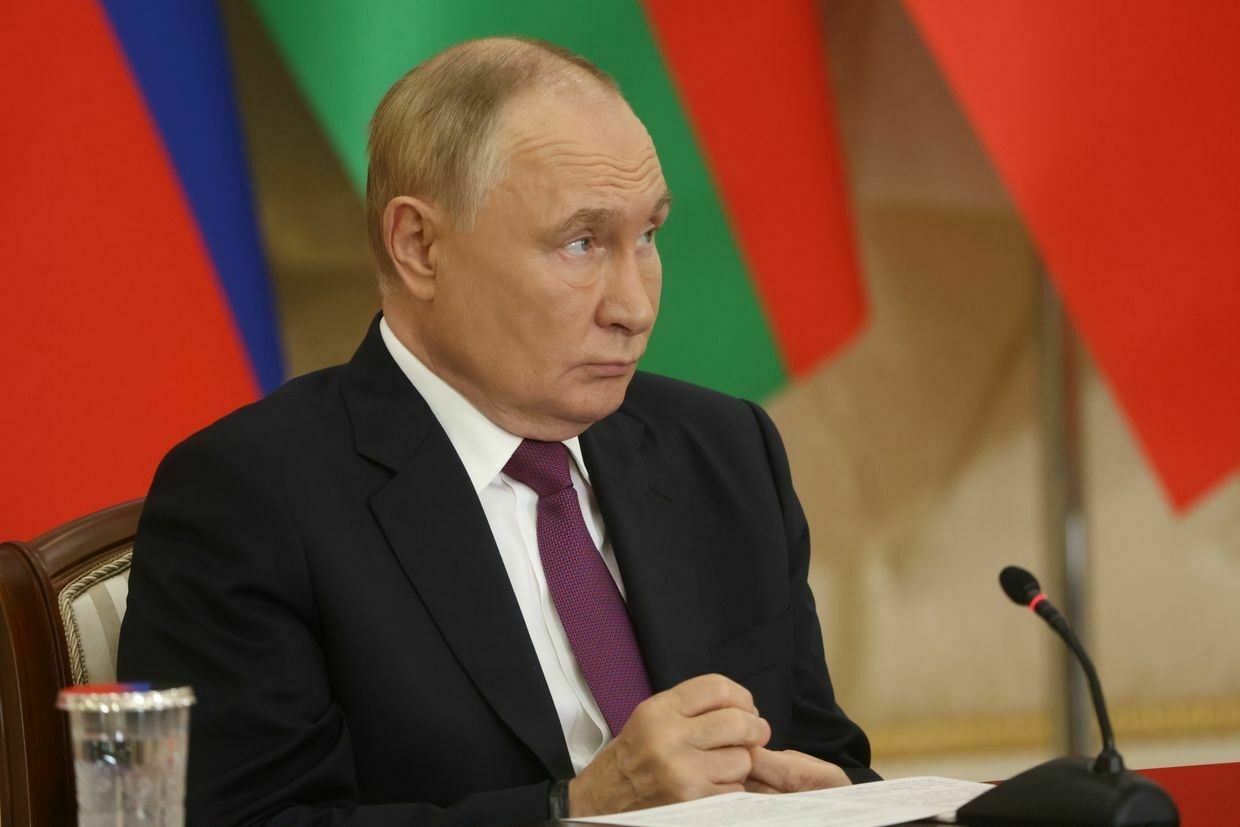
-
“Blending in with nature” — Sniper training in Kharkiv region (photos)
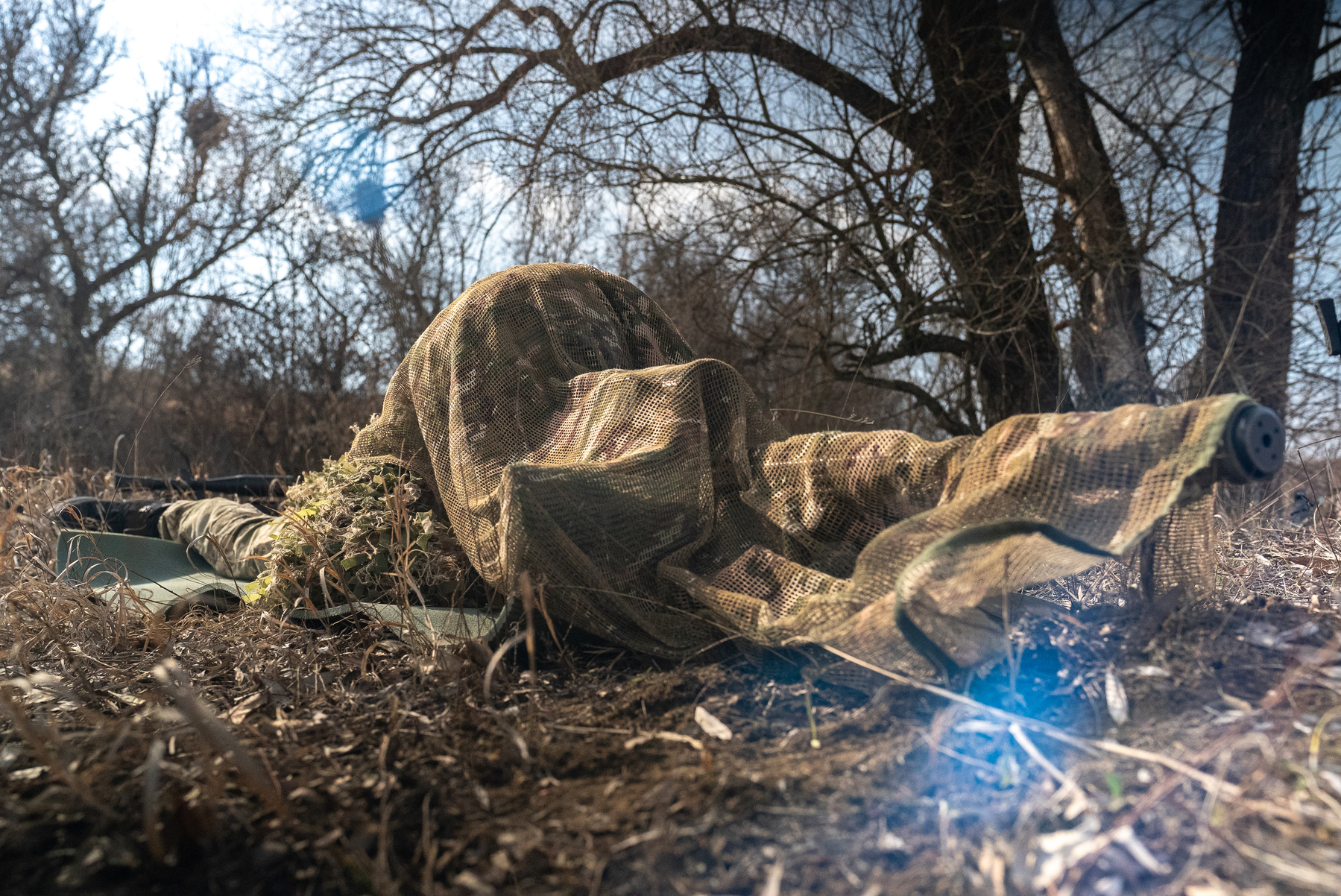
The men are loading many things into the car, including backpacks and bags with ghillie suits. They place massive sniper rifles there, too — with special care.
The car speeds down the dirt road, kicking up dust.
Training ground is large and varied in terrain, which allows soldiers to practice shooting from different positions and distances.
The snipers unload their equipment, sling the rifles over their shoulders, and head to the training area. Gwara Media follows — to learn about the specifics of how snipers work. A soldier with a call sign “Faust” will guide the journalists through the shooting training.
Soldiers come here whenever they have free time, he says.
“We also go to the frontline to carry out combat missions. Of course, we don't just stay in one place. When we are free, we set aside time for ourselves and go shoot from different distances to improve our skills.”
“Faust” was mobilized into the military in 2023 — but because he had people who were interested in sniper work, he and his team got sent to the “Marksman” course, which provided spiner training for infantry. He went through the entire course, really liked the training, and decided to join the profession.
“Everything depends on the tasks set”
The work is hard but interesting, says “Faust.” Snipers are not only shooters but also scouts.
“We do not necessarily arrive at the position and shoot. We can help our team or artillery more by observing and noticing something than by taking a single shot.”
“Faust” says one of the challenging, difficult moments in this process is the entry and exit from a position. It requires careful planning and choosing camouflage materials to blend in with nature.
The selection of weapons and equipment depends on the tasks set, says “Faust” — depends on the distance at which the enemy is located, the weather, terrain, and available foliage. All of it can affect a sniper’s work.
In urban areas snipers mostly work from inside the buildings or from their roofs. That limits their options for picking a position, shortens the shooting range up to 500 meters, and creates all sorts of difficulties.
On the open terrain, the effective range of snipers is much longer — up to one kilometer.
“Situations are always different. There are no templates. Sometimes, we come up to 200 meters (to the frontline — ed.). Sometimes, we come up to a kilometer. To do this, we plan through entry and exit (to the position), the sector in which we work, the presence of the enemy and their resources, and available communications with adjacent units. We analyze the situation and then start working.”
“Sometimes we walk to the position for seven kilometers”
“The most comfortable shooting position is lying down,” says “Faust,” unrolling the mat.
Lying down keeps a sniper’s body stable, “Faust” explains, so it’s easier to take a shot. During combat missions, they can't afford this level of comfort often — snipers work in forests, over hills and ravines, in cities and villages. The weather also varies, and it impacts the work as well.
“Faust” changes his position — he gets down on one knee and raises his rifle.
This position is more difficult, he explains. “You don't have much time to shoot because then the tremor starts. You have to make quick decisions.”
“Tripods (weapon tripods — ed.) are a good thing, quite often very useful. But you have to carry them on yourself. Sometimes, we have to walk for seven kilometers or more to reach the position.”
“Accuracy and precision”
The snipers are equipped with the Ukrainian-made UAR-10 rifle by the company “Zbroiar.”
“It is already in service. It has proven itself quite well. It is compact and easy to use,” says “Faust.”
In 2018, UAR-10 was officially adopted by the Armed Forces of Ukraine. The rifle weighs 5.5 kilograms and can shoot at a distance of up to 1200 meters.
“We also have other weapons: Savage and Ruger are America-made. They are of the 338th caliber, so they have a much longer range — up to 2,000 meters.”
Optical sights are important for longer-range shooting. After being mounted on the rifle, the sights need to be calibrated. The calibration is done at a distance of 100 meters, and the number of shots during calibration depends on how much the optics need to be adjusted. It can be three, five, or even ten shots to bring the sight and the weapon to the required level of precision, says “Faust.”
“Faust” doesn’t know if Russians have their own domestically-made rifles, but he heard they have Western models in the arsenal.
“I haven't encountered Russian snipers yet here (in Kharkiv Oblast). But they performed quite well in Toretsk. As sad as it may sound, there were cases where they were effective. Their training is also professional, and they have very good specialists and, I believe, decent weaponry.”
Author: Polina Kulish
English translation: Elza Diachenko
Hi! Thanks for checking out our report from sniper training — it's important for us to stay in touch with the soldiers of the Armed Forces and tell you about their lives and work. Please, consider buying our journalists a coffee or subscribing to our Patreon to support our Kharkiv-based newsroom reporting long-term.
Read more
- Poll: 97% of people in Ukraine trust soldiers on frontline, 90% have friends in army
The post “Blending in with nature” — Sniper training in Kharkiv region (photos) appeared first on Gwara Media.
-
Argentina says it uncovered Russian spy network linked to late Prigozhin's group
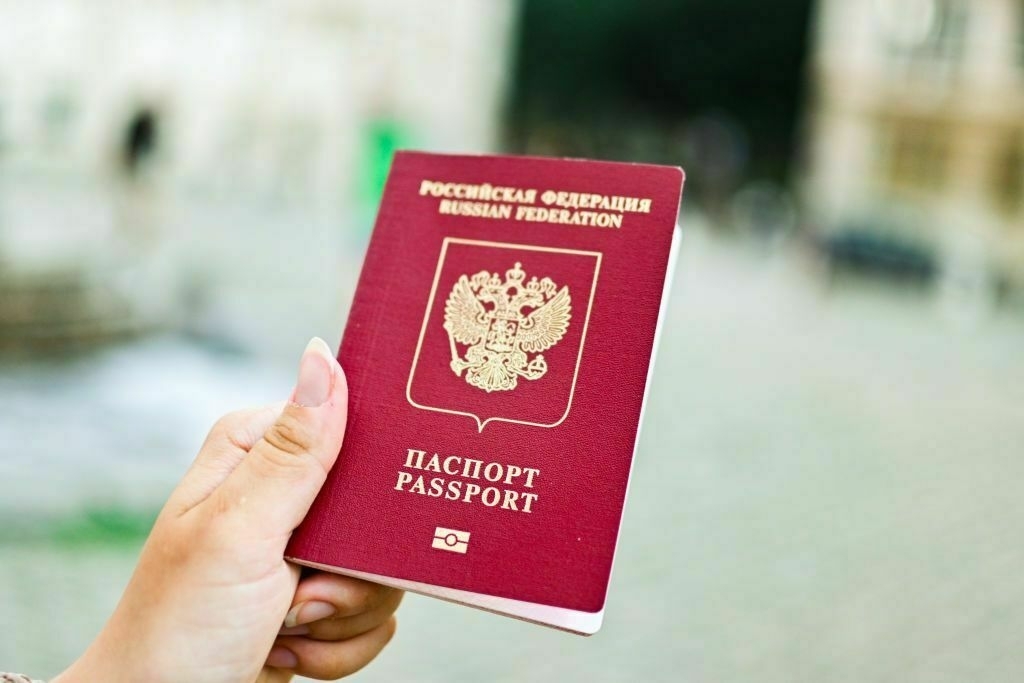
Argentina has uncovered a Russian intelligence operation working to spread pro-Kremlin disinformation and influence public opinion, Argentine presidential spokesperson Manuel Adorni announced on June 18, citing the country’s intelligence, according to AFP and Infobae.
The La Compania network, which is allegedly linked to the Russian government and the Kremlin’s Project Lakhta, was led by Russian nationals Lev Konstantinovich Andriashvili and his wife Irina Yakovenko, who are both residents of Argentina, according to authorities.
The U.S. Treasury Department has previously accused the Project Lakhta, reportedly formerly overseen by late Russian oligarch Yevgeny Prigozhin, of election interference in the United States and Europe.
Prigozhin led the Russian Wagner mercenary group that was deployed in some of the deadliest battles in Ukraine, like the siege of Bakhmut. The oligarch was killed in a plane crash under suspicious circumstances in August 2023, around two months after leading a brief armed rebellion against the Kremlin.
Andriashvili and Yakovenko are accused of receiving financial support to recruit local collaborators and run influence operations aimed at advancing Moscow’s geopolitical interests.
Their objective was to “form a group loyal to Russian interests” to develop disinformation campaigns targeting the Argentine state, Adorni said at a press briefing.
The spokesperson added that the alleged operation included producing social media content, influencing NGOs and civil society groups, organizing focus groups with Argentine citizens, and gathering political intelligence.
“Argentina will not be subjected to the influence of any foreign power,” Adorni said, noting that while some findings have been declassified, much of the investigation remains a state secret.
Since Russia’s full-scale invasion of Ukraine in February 2022, there has been a significant uptick in Russian migration to Argentina, some of which officials fear could be linked to covert intelligence operations.
Authorities reportedly said these espionage activities are often facilitated by a 2009 bilateral agreement between Argentina and Russia allowing visa-free travel, a deal that remains in effect despite growing security concerns.
In response to the threat, Adorni announced the creation of a new Federal Investigations Department (DFI) within Argentina’s Federal Police, modeled in part on the U.S. FBI. The agency will focus on countering organized crime, terrorism, and foreign espionage, with investigators trained in advanced techniques and bolstered by experts in law, psychology, and computer science.
’100 days of Russian manipulations’ — Ukraine blasts Moscow over disregarding US ceasefire effortA hundred days since the U.S. and Ukraine agreed on a ceasefire, “Russia continues to choose war,” Foreign Minister Andrii Sybiha said on June 19, urging international pressure to push Moscow toward peace.The Kyiv IndependentMartin Fornusek
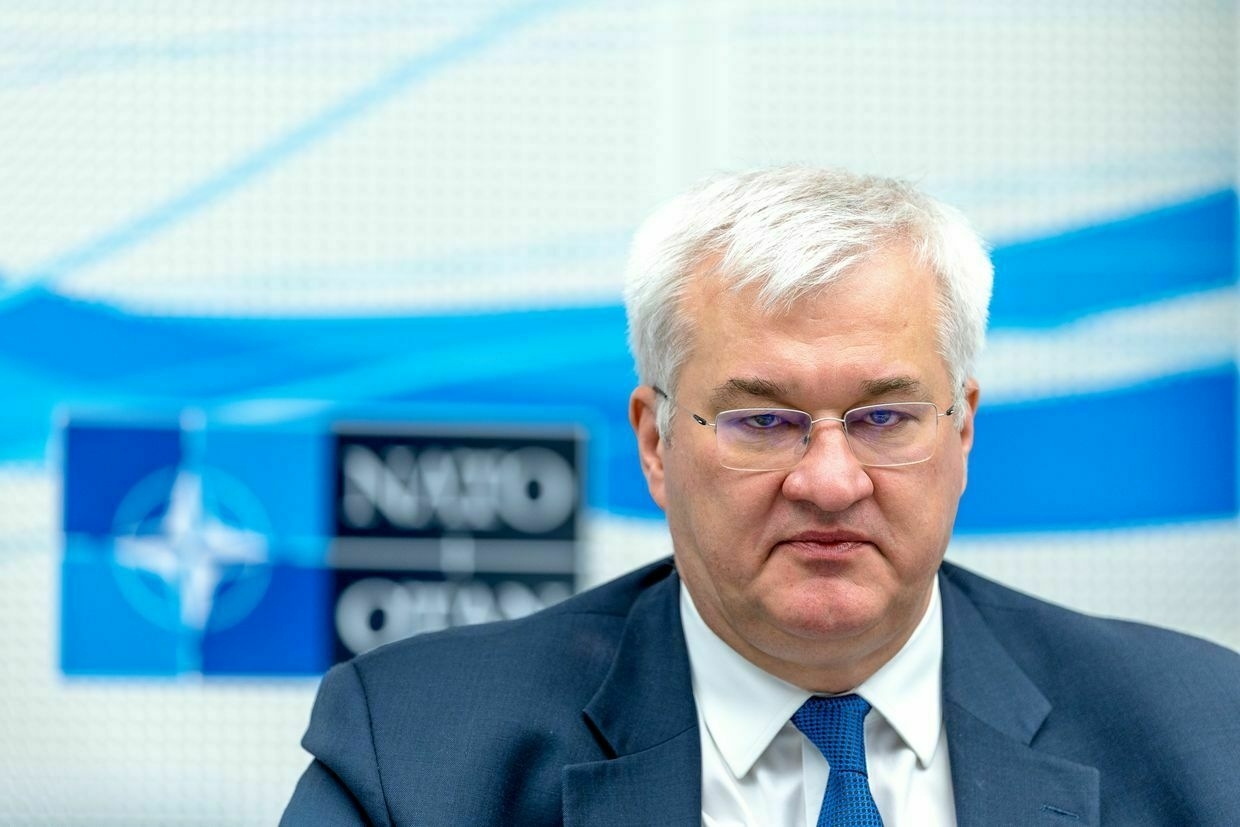
-
'100 days of Russian manipulations' — Ukraine blasts Moscow over disregarding US ceasefire effort
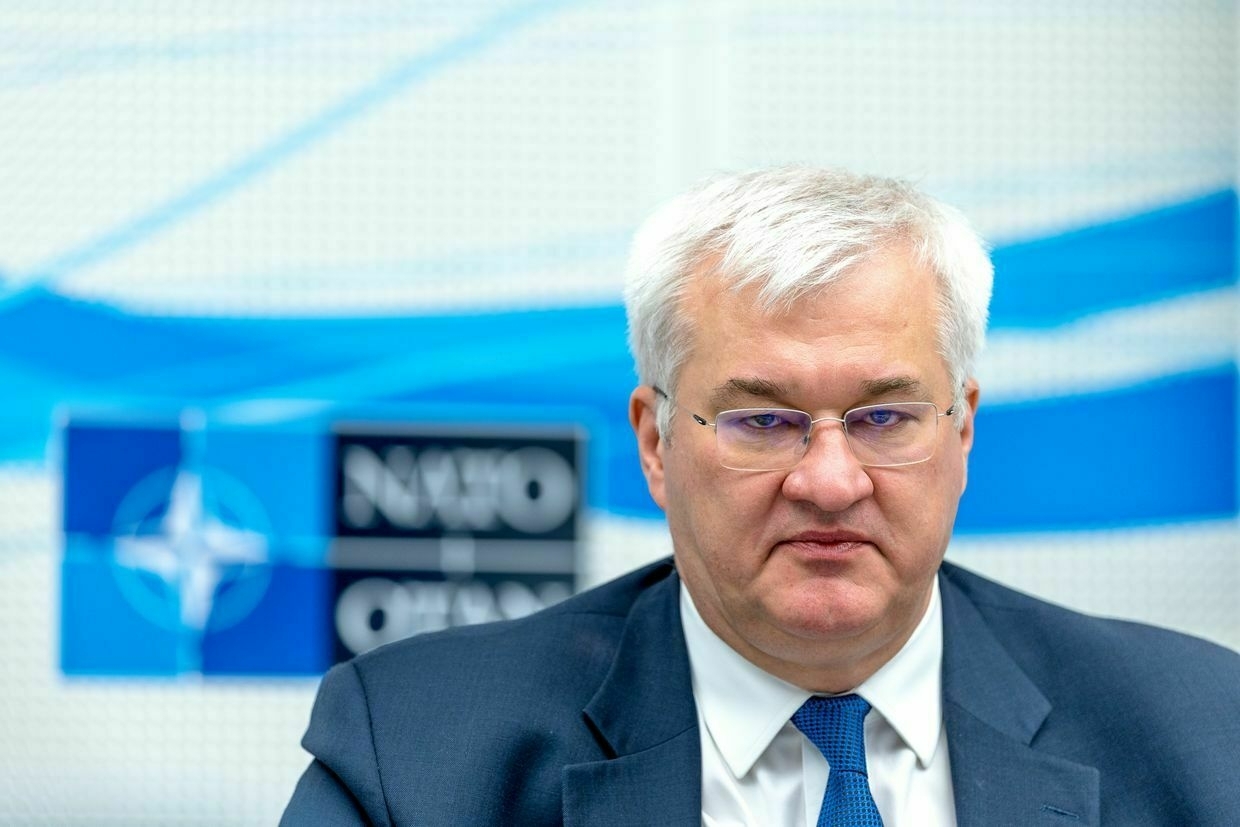
A hundred days since Ukraine agreed to a U.S. proposal for a ceasefire, “Russia continues to choose war,” Foreign Minister Andrii Sybiha said on June 19, urging international pressure to push Moscow toward ending the war.
“It has been exactly 100 days since Ukraine unconditionally accepted the U.S. peace proposal to completely cease fire, put an end to the killing, and move forward with a genuine peace process,” Sybiha said on X.
Ukraine backed the U.S. proposal for an unconditional 30-day ceasefire during talks in Jeddah on March 11. Russia has rejected the offer, instead pushing maximalist demands while intensifying attacks across Ukrainian cities.
“A hundred days of Russian manipulations and missed opportunities to end the war. A hundred days of Russia escalating terror against Ukraine rather than ending it,” Sybiha said.
Ukraine’s top diplomat stressed that Kyiv remains committed to peace, while Russia disregards U.S. efforts to “end the killing."
While U.S. President Donald Trump initially pledged to broker a swift peace deal between Kyiv and Moscow, the U.S. administration has become increasingly less engaged in negotiations as the progress stalls.
Trump has evaded calls for exerting additional pressure on Russia via sanctions, and compared the two warring sides to “two young children” who should be let “fight for a while” before being pulled apart.
The U.S. president has also become increasingly preoccupied with the Middle East amid escalating hostilities between Iran and Israel.
“It is time to act now and force Russia to peace. Peace through strength, increased sanctions, and enhanced capabilities for Ukraine,” Sybiha said.
European leaders have declared they are ready to impose additional sanctions on Russia as the 18th sanctions package is being prepared. In turn, a U.S. bill imposing heavy sanctions on Russian oil has been postponed, as other foreign policy issues dominate the agenda in Washington.
Russia turns sound into weaponWhen I was at school and learned about World War II, my grandmother told me what she remembered of her wartime childhood on the English coast. Growing up near a Royal Navy base, she survived countless nighttime air raids. Most of all, she remembered exactly how the Blitz sounded — theThe Kyiv IndependentElsa Court
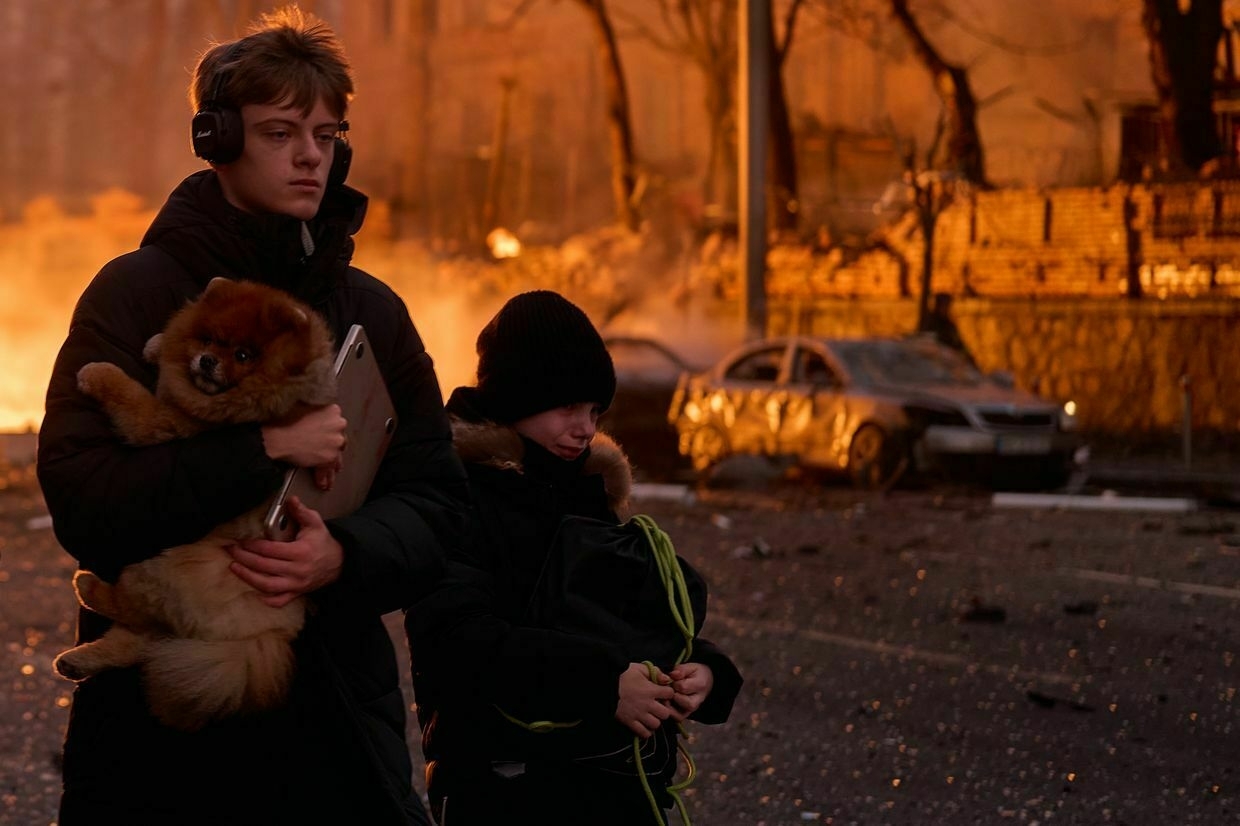
-
'If we don't help Ukraine further, we should start learning Russian,' EU diplomacy chief says
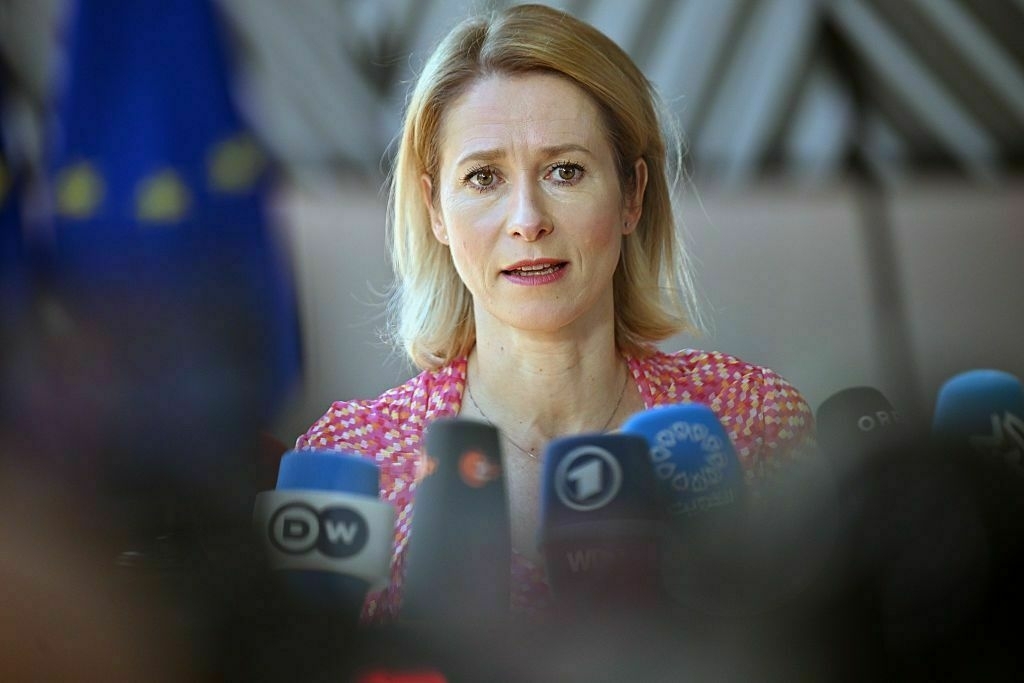
Failure to provide stronger military and financial support for Ukraine could leave Europe vulnerable to growing Russian influence, meaning Europeans might have to “start learning Russian,” the EU’s top diplomat, Kaja Kallas, said, the Guardian reported on June 17.
“We know that Russia responds to strength and nothing else,” Kallas said. She called Ukraine “Europe’s first line of defense” and emphasized the need for continued sanctions against Russia and more aid to Kyiv.
The comments come as Russian forces are intensifying their attacks on Ukrainian cities and the Kremlin continues to reject a push by Kyiv and its Western allies for an unconditional ceasefire.
“To quote my friend, NATO Secretary General Mark Rutte: if we don’t help Ukraine further, we should all start learning Russian,” Kallas said.
Kallas cited a sharp increase in Russia’s military spending, noting that Moscow is now allocating more money to defense than the EU combined, and more than its own health care, education, and social policies put together.
“This is a long-term plan for a long-term aggression,” she said.
In light of this, Kallas urged governments to adopt NATO’s new target of spending 5% of GDP on defense, warning of Russia’s hybrid warfare tactics, including airspace violations, attacks on critical infrastructure, and covert sabotage operations within EU borders.
The 5% defense spending target is expected to be formally adopted during the upcoming NATO summit, which will take place on June 24 and 25 in The Hague. U.S. President Donald Trump has insisted that the European allies increase their defense budgets.
Earlier, Kallas said Russian President Vladimir Putin “cannot be trusted” to mediate peace while continuing to bomb Ukrainian cities and civilians, as Moscow suggested to mediate negotiations between Israel and Iran amid growing escalation.
“Clearly, President Putin is not somebody who can talk about peace while we see actions like this,” she said during a June 17 briefing, after a massive Russian missile and drone strike on Kyiv killed at least 28 people and wounded over 130.
Kallas also reiterated her call for the EU to move forward with tightening the oil price cap on Russian exports, even without U.S. backing. She warned that the ongoing Israel-Iran crisis could cause oil prices to spike, boosting Russia’s war revenues.
The EU is currently preparing its 18th sanctions package against Moscow, targeting energy, defense, and banking sectors. The 17th round of sanctions came into effect in May.
Putin says he’s ready to meet Zelensky if West ‘stops pushing’ Ukraine to fightRussia wants to end the war in Ukraine “as soon as possible,” preferably through peaceful means, and is ready to continue negotiations — provided that Kyiv and its Western allies are willing to engage, Vladimir Putin said.The Kyiv IndependentOlena Goncharova
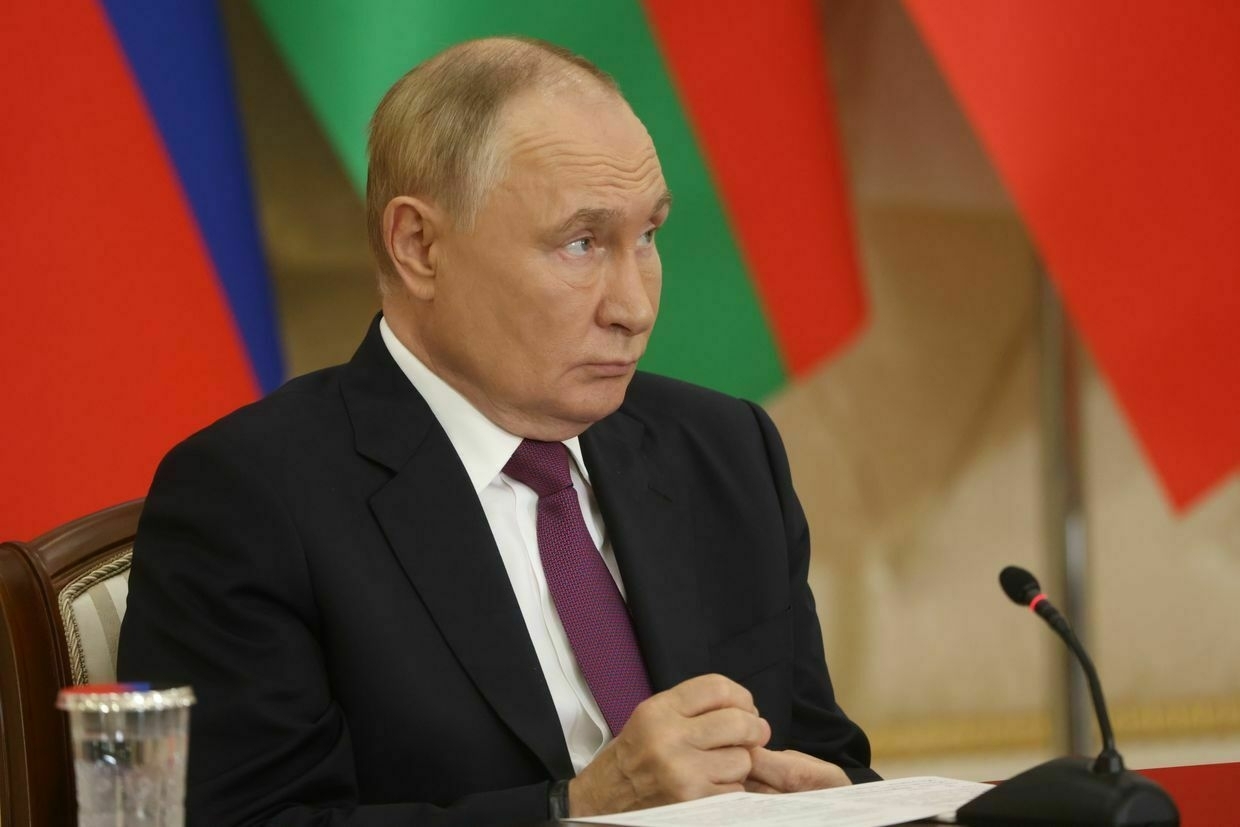
-
Russia injures at least 28 across Ukraine over past day
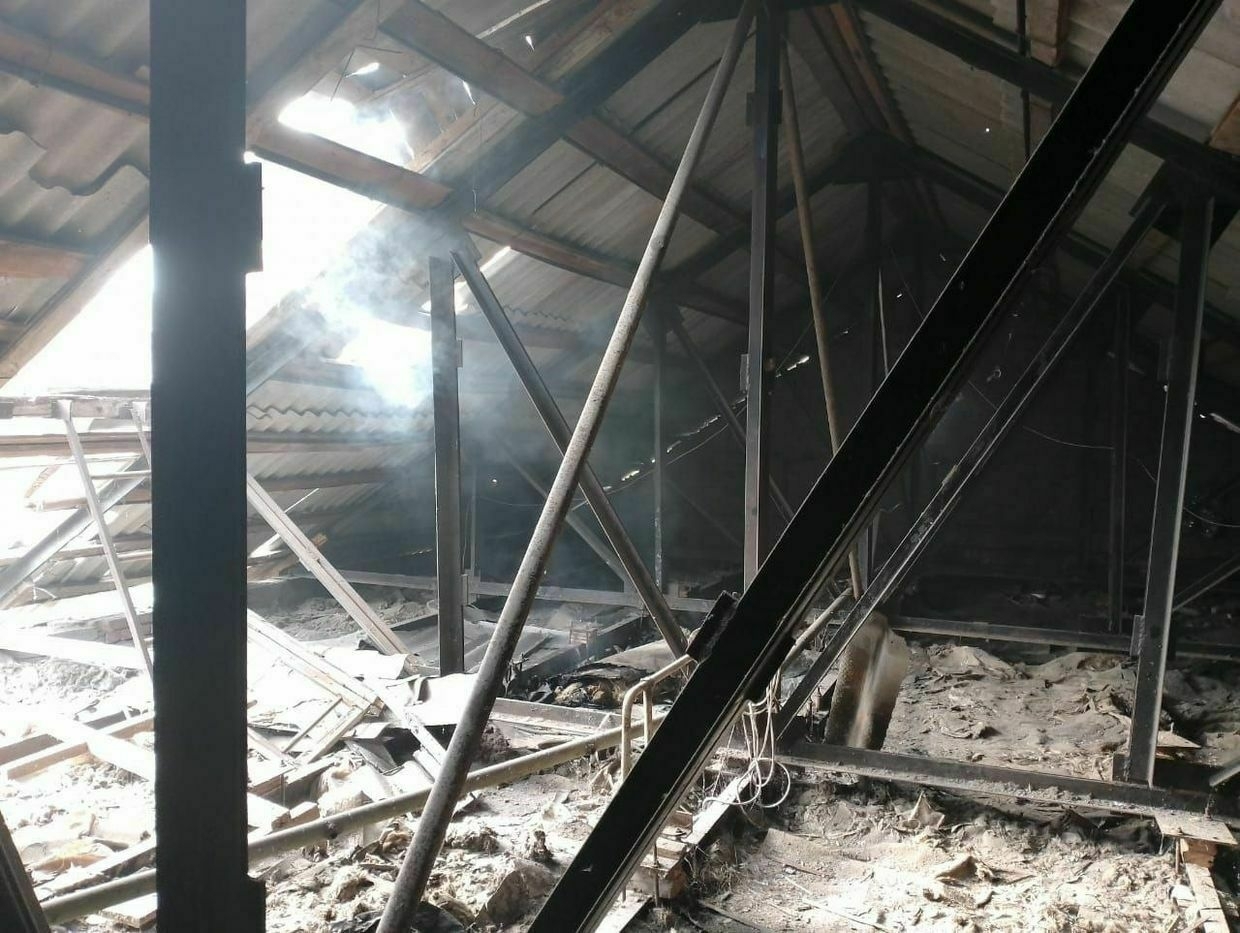
Russian drone and artillery strikes injured at least 28 civilians over the past 24 hours in Ukraine, regional officials reported on June 19.
According to Ukraine’s Air Force, Russian forces launched 104 Shahed-type drones and decoy unmanned aerial vehicles (UAVs) overnight from Russian territory and occupied Crimea.
Ukrainian air defenses shot down 40 drones, while 48 disappeared from radars or were intercepted by electronic warfare.
In Kherson Oblast, nine people were injured amid heavy shelling and drone attacks on dozens of settlements, including Kherson city, Governor Oleksandr Prokudin said. Russian forces struck social infrastructure facilities, three apartment buildings, and 10 houses. A gas pipeline, an ambulance base, a fire station, and several vehicles were also damaged.
In Donetsk Oblast, 13 people were wounded in Russian strikes across the region, Governor Vadym Filashkin said.
In Dnipropetrovsk Oblast, five people were injured in morning attacks on the Nikopol district, including an 11-year-old child who was hospitalized alongside three adults, Governor Serhii Lysak reported. One person is in serious condition, while others are in moderate condition or recovering at home.
In Zaporizhzhia Oblast, one person was injured, Governor Ivan Fedorov said. Over the past day, Russian forces carried out 410 strikes on 12 settlements in the oblast, including 10 air strikes and 264 drone attacks. Additional shelling from artillery and multiple launch rocket systems damaged at least 94 houses, vehicles, and infrastructure sites.
‘Do me a favor Vladimir, mediate Russia first’ — Trump roasts Putin over Israel, Iran offer“I said, Vladimir, let’s mediate Russia first. You can worry about this later,” U.S. President Donald Trump said.The Kyiv IndependentTim Zadorozhnyy
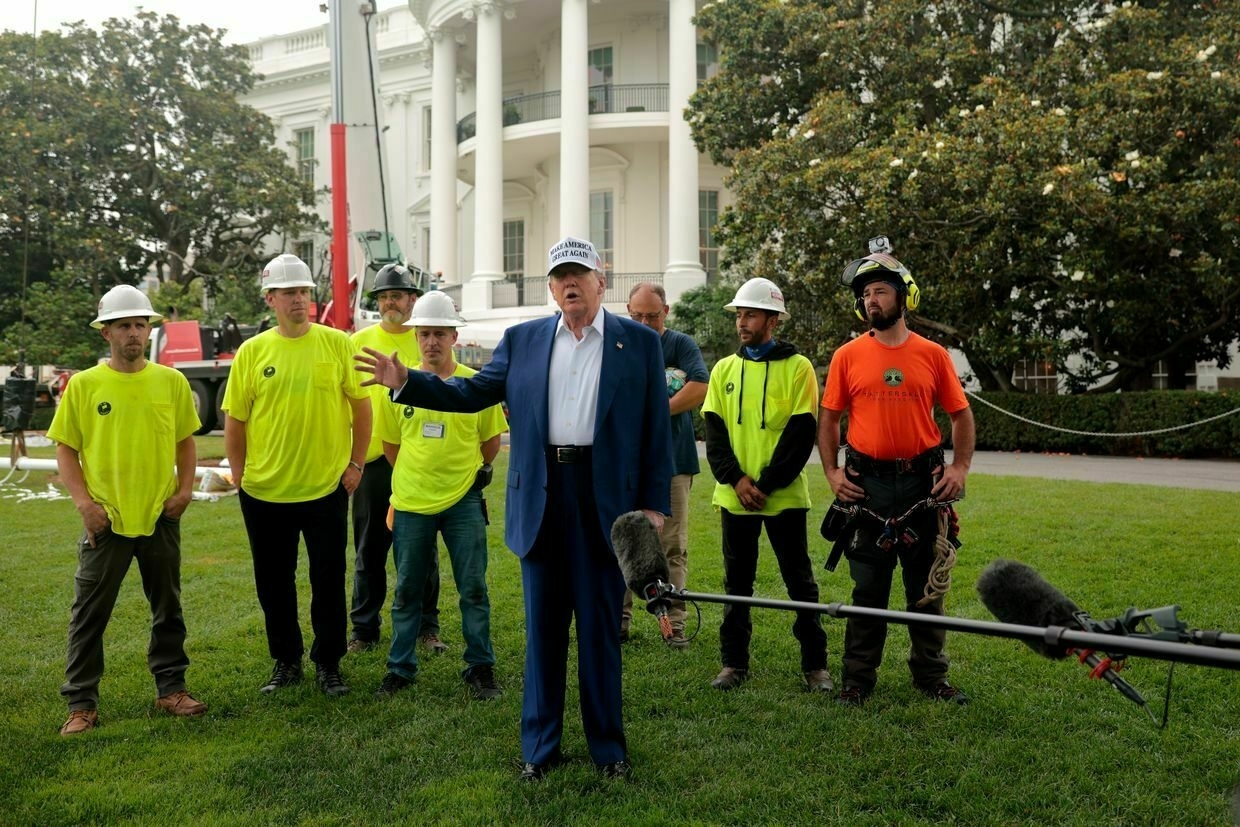
-
General Staff: Russia has lost 1,008,240 troops in Ukraine since Feb. 24, 2022
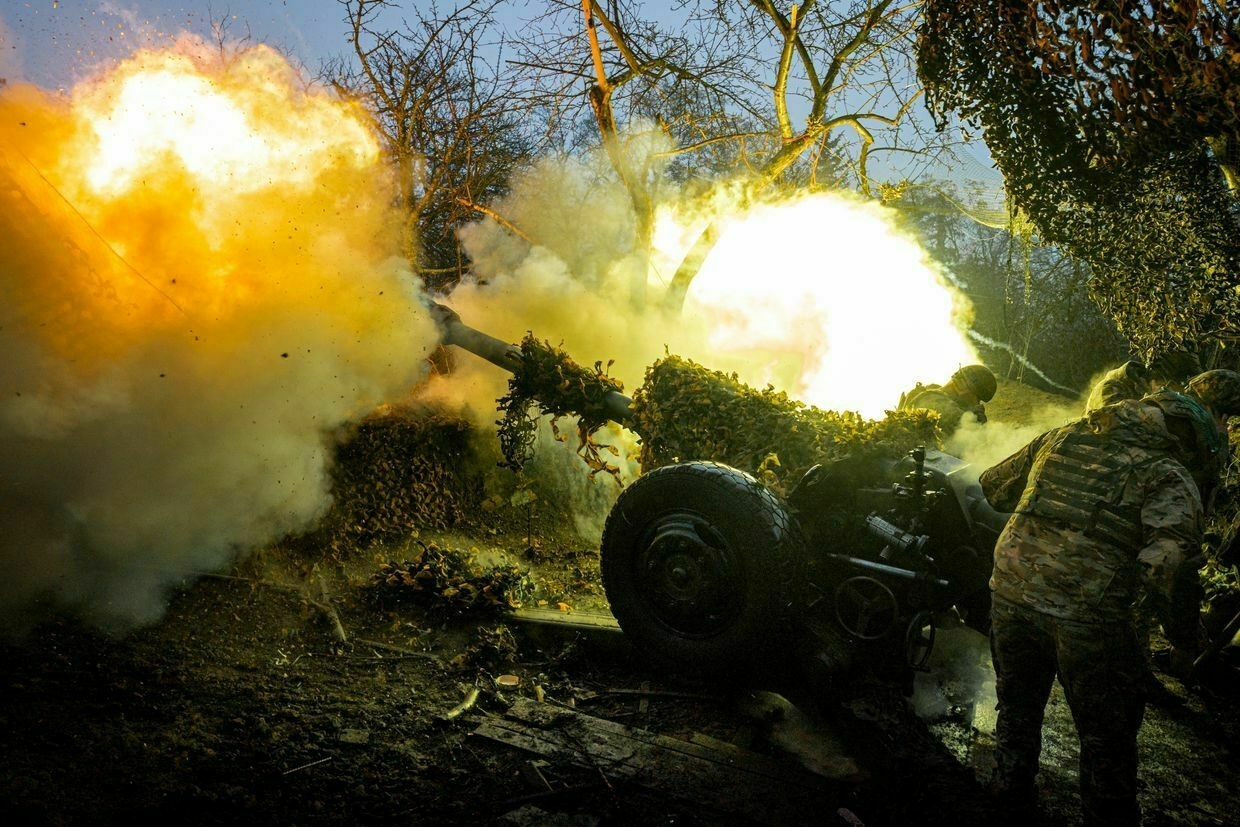
Russia has lost 1,008,240 troops in Ukraine since the beginning of its full-scale invasion on Feb. 24, 2022, the General Staff of Ukraine’s Armed Forces reported on June 19.
The number includes 1,080 casualties that Russian forces suffered just over the past day.
According to the report, Russia has also lost 10,951 tanks, 22,853 armored fighting vehicles, 52,420 vehicles and fuel tanks, 29,328 artillery systems, 1,420 multiple launch rocket systems, 1,187 air defense systems, 416 airplanes, 337 helicopters, 41,229 drones, 3,369 cruise missiles, 28 ships and boats, and one submarine.
Russia’s deadliest attack on Kyiv this year shatters homes and livesAs Russia intensifies its attacks on Ukrainian cities, millions of Kyiv residents go to bed every night hoping their houses will be intact in the morning. But some nights are worse than others. At least 28 people were killed in Russia’s drone and missile attack on Ukraine’s capitalThe Kyiv IndependentNick Allard
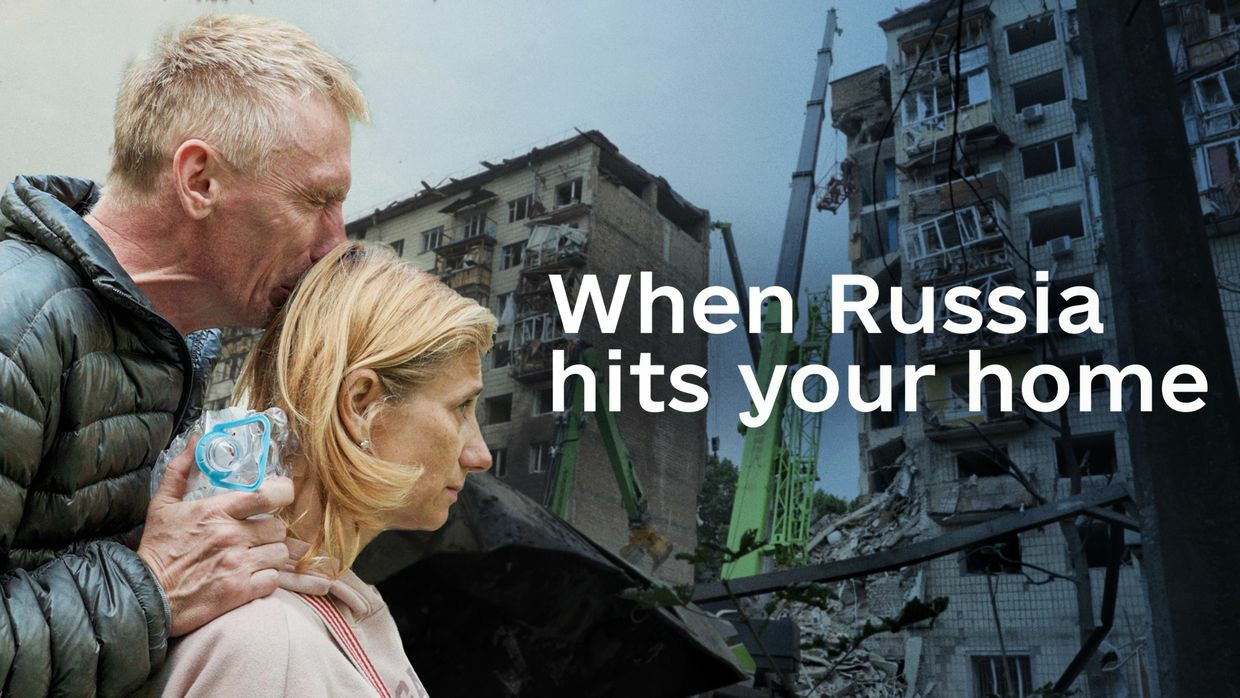
-
8 people injured in Russian strikes on Kherson Oblast
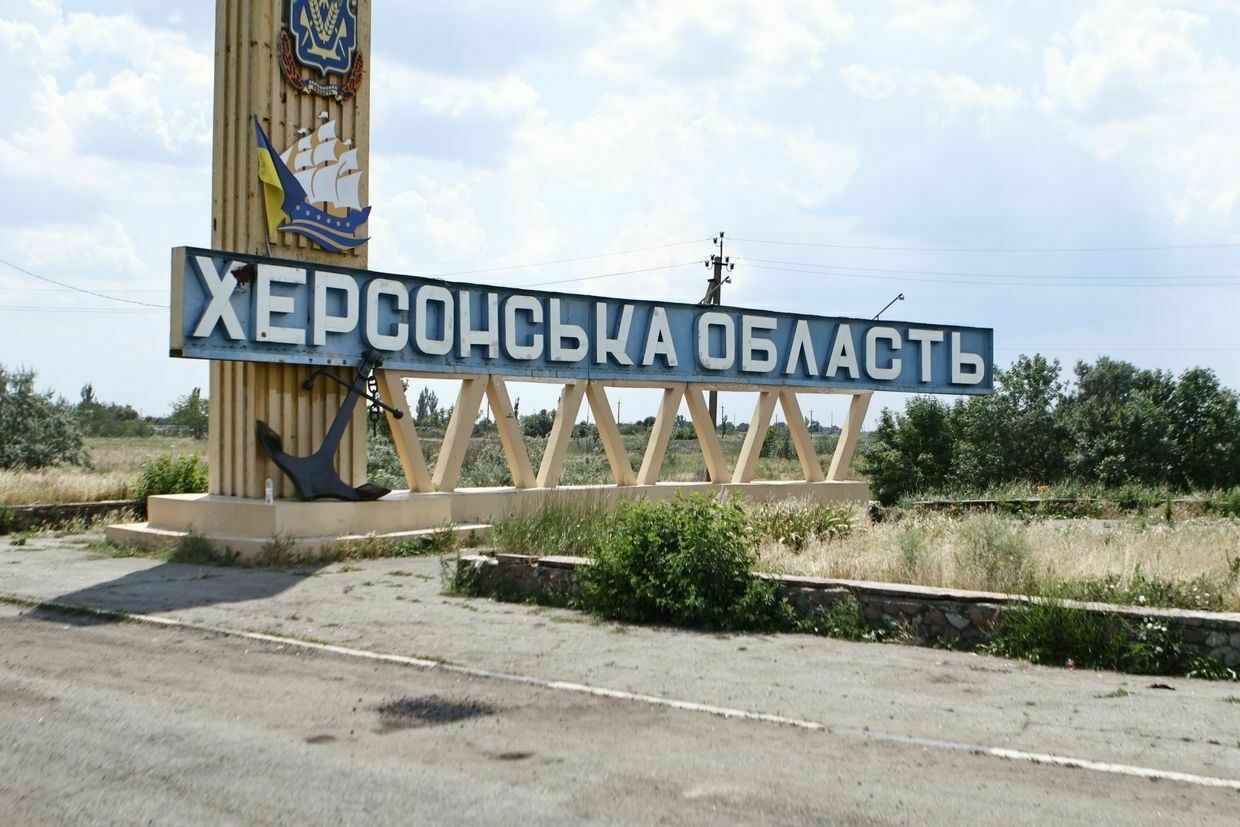
Eight people were injured in Russian attacks on Kherson Oblast, local law enforcement officials reported on June 18.
The Russian military targeted several settlements in the region using artillery and drones, according to authorities.
As of 6:00 p.m. local time, eight civilians were reported injured, including two men in Komyshany and Romashkovo, and six others in Bilozerka, Beryslav, Antonivka, and the regional capital Kherson.
Civilian infrastructure, including private homes and residential buildings, was also damaged in the attacks.
Kherson Oblast is located in southern Ukraine, just north of Russian-occupied Crimea, and has been relentless targeted by Russian forces throughout the war.Ukrainian forces liberated the city of Kherson, the regional capital, in November 2022.
Russian troops continue to occupy large parts of the region and regularly launch attacks on civilian areas using artillery, guided bombs and drones.
For the first time, Australia sanctions Russian shadow fleet oil tankers“Russia uses these vessels to circumvent international sanctions and sustain its illegal and immoral war against Ukraine,” Australia’s Foreign Ministry said in a statement.The Kyiv IndependentAnna Fratsyvir
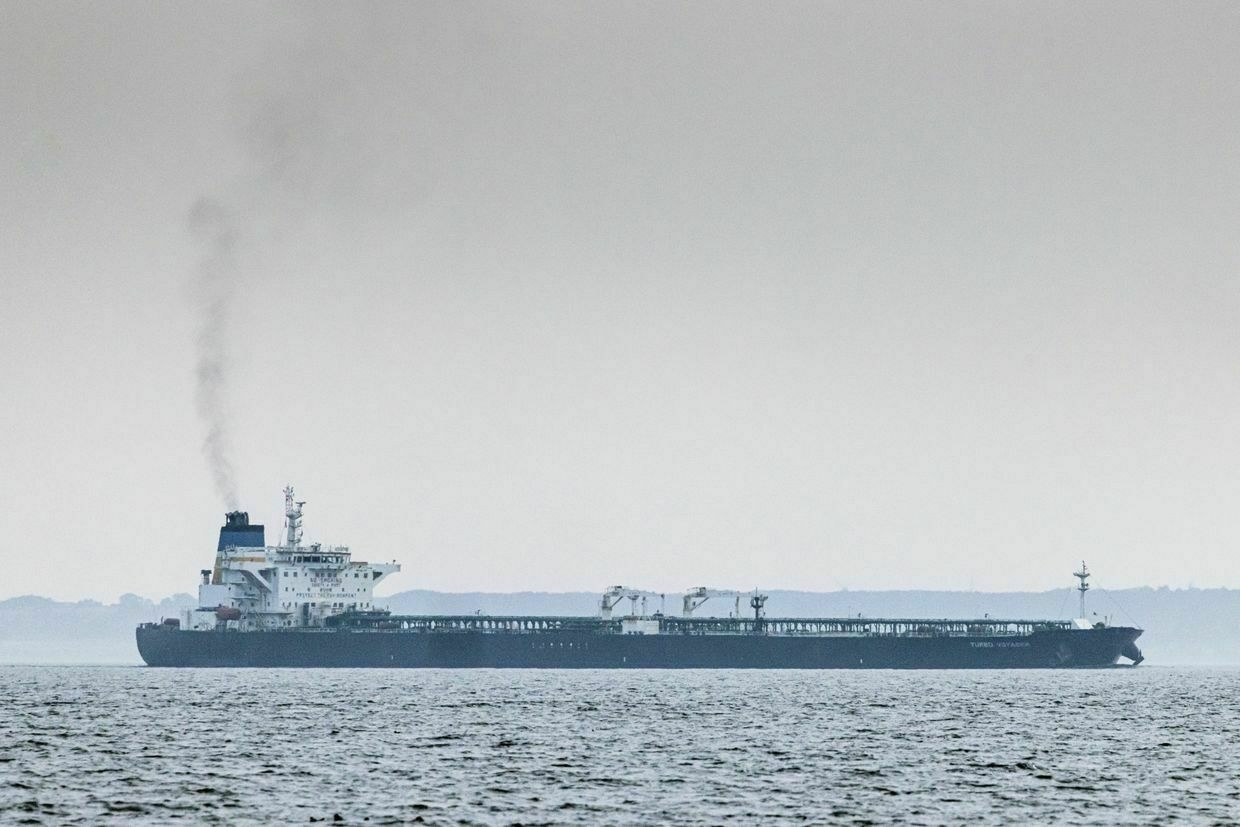
-
Putin says he's ready to meet Zelensky if West 'stops pushing' Ukraine to fight
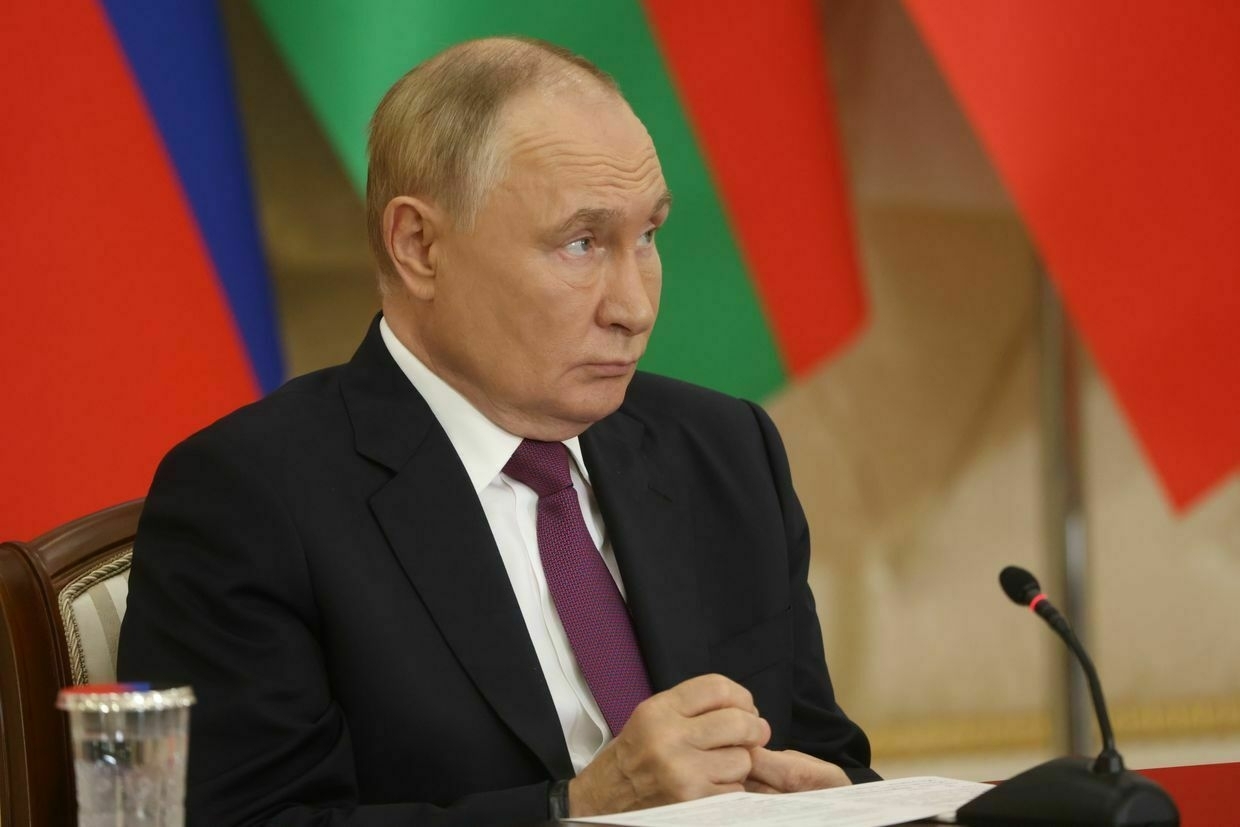
Editor’s note: This is a developing story and is being updated.
Russia wants to end the war in Ukraine “as soon as possible,” preferably through peaceful means, and is ready to continue negotiations — provided that Kyiv and its Western allies are willing to engage, President Vladimir Putin said.
Speaking during a roundtable with top editors of major international news agencies late on June 18, Putin added that he is ready to meet with President Volodymyr Zelensky and “Russia does not care who represents Ukraine in negotiations, but insists that any final agreement must bear the signature of legitimate authorities.”
The Kremlin has long sought to portray Zelensky as “illegitimate” in an attempt to discredit Kyiv. Kremlin spokesperson Dmitry Peskov said on Feb. 18 that Putin, who has ruled Russia for over 20 years, is ready for talks with Zelensky, but “legal aspects related to his legitimacy” must be considered.
Ukraine’s allies had generally ignored this propaganda narrative until U.S. President Donald Trump appeared to echo the Kremlin’s lines claiming that Zelensky was a “modestly successful comedian” turned “dictator” who “refused to have elections."
Ukraine has not held elections during Russia’s full-scale invasion because they are legally prohibited under martial law, which was declared on Feb. 24, 2022, just hours after the war began. Ukrainian law also mandates that elections must be safe, equal, and uninterrupted—conditions that are impossible to meet amid ongoing Russian attacks on civilians and critical infrastructure.
Elections in Ukraine — a guide for beginners (and US Presidents)U.S. President Donald Trump on Feb. 19 launched an astonishing attack on President Volodymyr Zelensky, calling him a “dictator” with a “very low” approval rating that refuses to hold elections in Ukraine. The comments came a day after similar remarks made at the White House, in which Trump falselyThe Kyiv IndependentKateryna Denisova
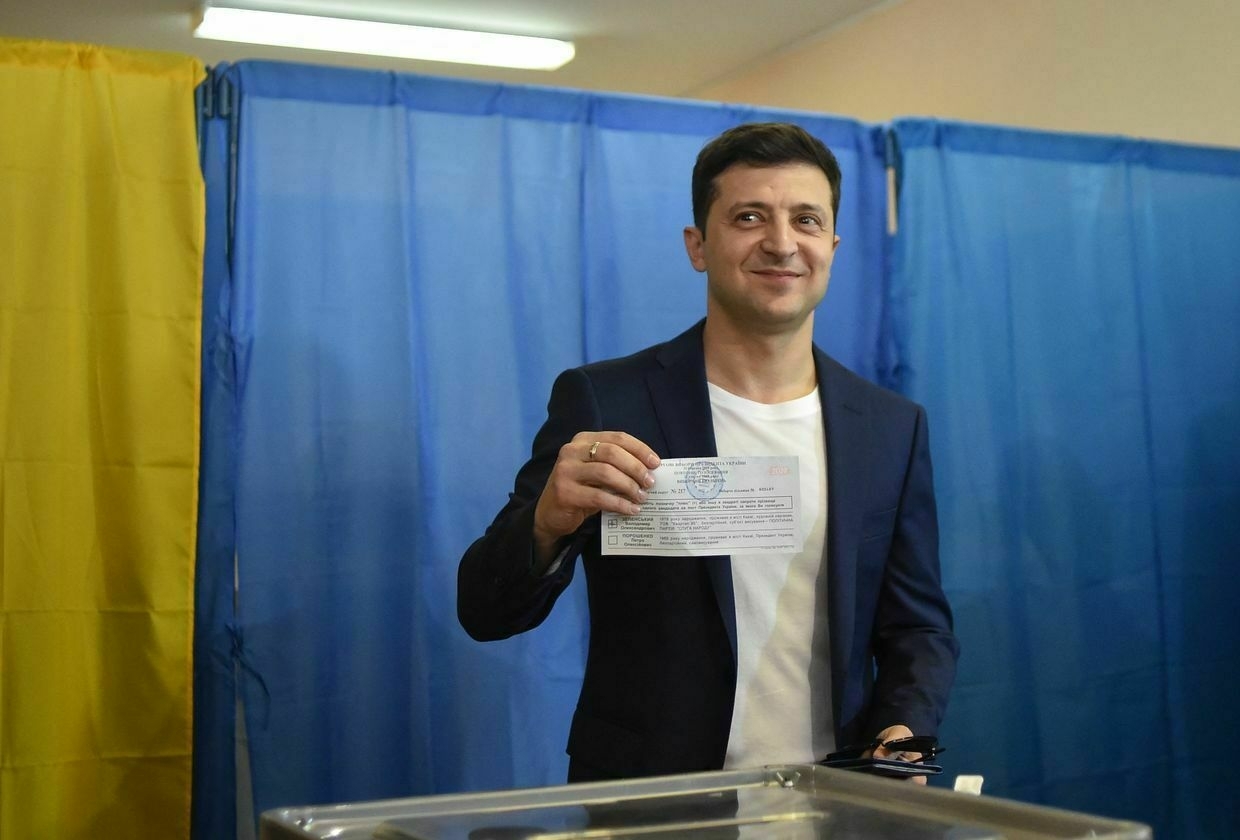
Asked if he would be willing to speak with Germany’s Chancellor Friedrich Merz, Putin said that “if the Federal Chancellor wants to call and talk, I have already said this many times — we do not refuse any contacts."
“And we are always open to this… They stopped, let them resume. We are open to them,” Putin said, adding that he, however, questions Germany’s role as a mediator in the Russia-Ukraine war: “I do doubt if Germany can contribute more than the United States as a mediator in our negotiations with Ukraine. A mediator must be neutral. And when we see German tanks and Leopard battle tanks on the battlefield… and now the Federal Republic is considering supplying Taurus missiles for attacks on Russian territory… — here, of course, big questions arise.”
-
Senate reportedly delays Russia sanctions as Middle East crisis, Trump’s tax bill take priority
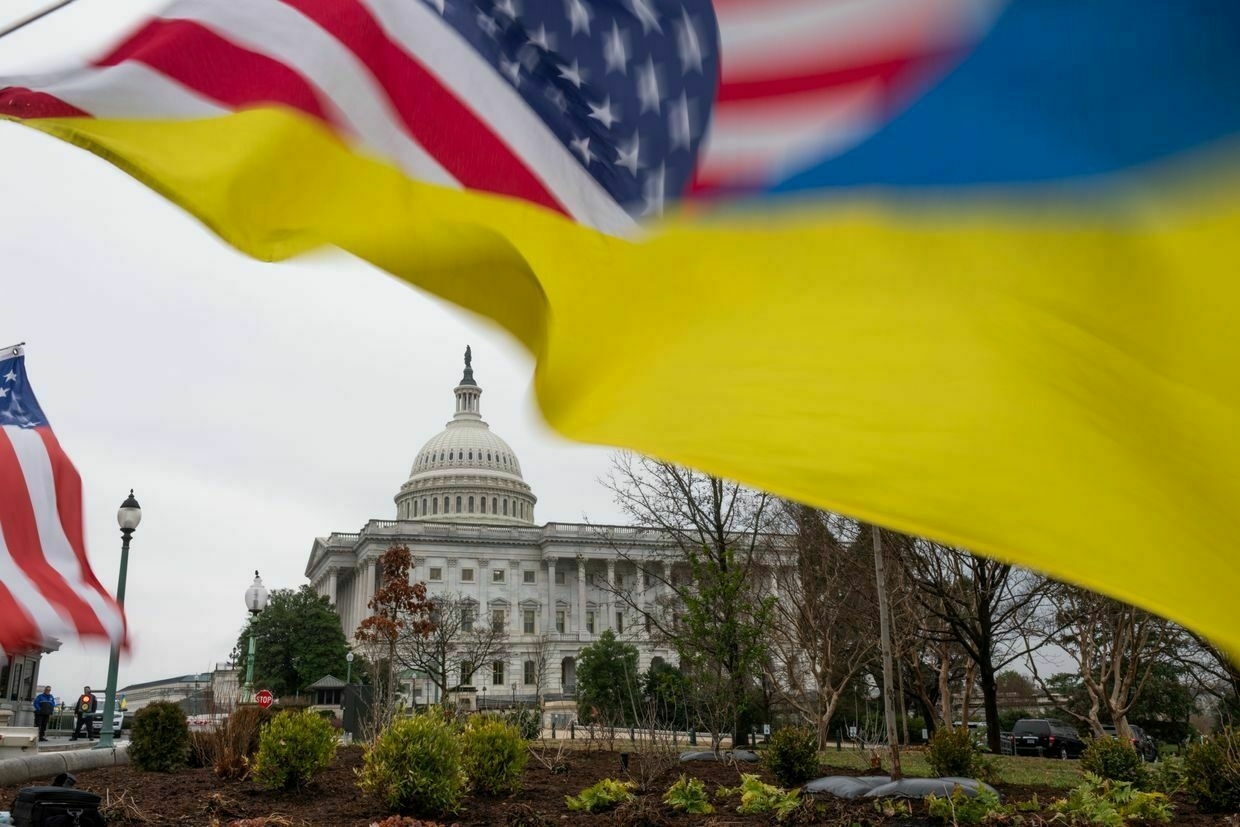
The U.S. Senate is postponing action on a bipartisan Russia sanctions bill until at least July, as other legislative and foreign policy priorities dominate the agenda, Semafor reported on June 18.
Senators Lindsey Graham (R-S.C.) and Richard Blumenthal (D-Conn.) have been working on a revised version of their bill that would impose secondary sanctions on Russian trading partners, while shielding Ukraine’s allies from penalties and making technical adjustments. But momentum has stalled as Republicans push President Donald Trump’s sweeping tax and spending bill, and the escalating conflict between Iran and Israel demands urgent attention.
Senate Majority Leader John Thune (R-S.D.) acknowledged on June 18 that a “July timeframe” was now more realistic for the sanctions bill. “We’re very open to moving, we’re trying to work with the administration from a timing standpoint,” Thune said, according to Semafor. Graham added that the Senate is “going to have to wait a bit,” citing shifting global developments. “Things are changing now with Iran… that doesn’t mean I’ve forgotten about Russia or Ukraine. Not at all. Iran is center stage, but sooner rather than later,” he said.
Trump has not yet signaled support for the legislation, which remains a critical obstacle.
While sanctions enjoy broader Republican backing than direct military aid to Ukraine, GOP lawmakers are hesitant to move forward without Trump’s approval. The U.S. president left the G7 summit in Canada early, skipping a planned meeting with President Volodymyr Zelensky, as attention shifted to a potential U.S. response to Iran’s nuclear ambitions. “All the focus is on Israel and Iran right now,” said Sen. Tommy Tuberville (R-Ala.), though he noted that he is “all for putting sanctions” on Russia.
Graham and Blumenthal had hoped to secure passage of the bill ahead of the G7 summit after visiting Ukraine earlier this year. Blumenthal said he and Graham were “making tremendous progress” with the administration, but acknowledged that other priorities were pushing the legislation off the floor.
Supporters of the sanctions argue the bill would give Trump more leverage in negotiations with Russian President Vladimir Putin. “We want to strengthen our hand in the negotiation,” said Sen. John Hoeven (R-N.D.). “We want to help effectuate an outcome in Ukraine, so we’re trying to use it in a way that actually helps get something done.” The legislation would authorize secondary sanctions on countries that continue to purchase Russian energy or conduct other major trade with Moscow.
Despite uncertainty around timing, both Graham and Blumenthal continue to refine the bill to ensure broader support, including a carveout for Ukraine’s allies and changes to accommodate the global banking system. “There is no evidence that Putin is going to slow down,” Graham told Semafor. “We need to change the approach. I think the sanctions will give the president leverage.”
‘Do me a favor Vladimir, mediate Russia first’ — Trump roasts Putin over Israel, Iran offer“I said, Vladimir, let’s mediate Russia first. You can worry about this later,” U.S. President Donald Trump said.The Kyiv IndependentTim Zadorozhnyy
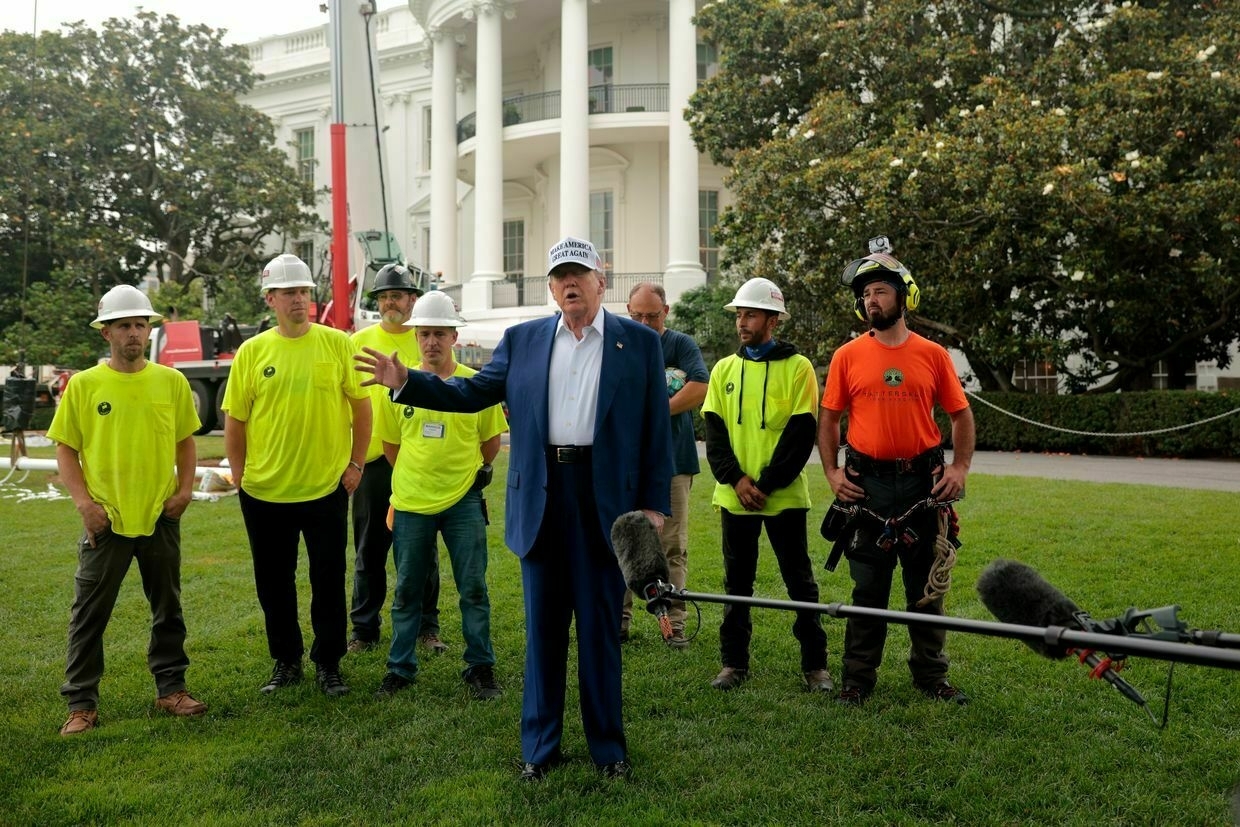
-
Sounds of war: How Russian attacks change your relationship with noise
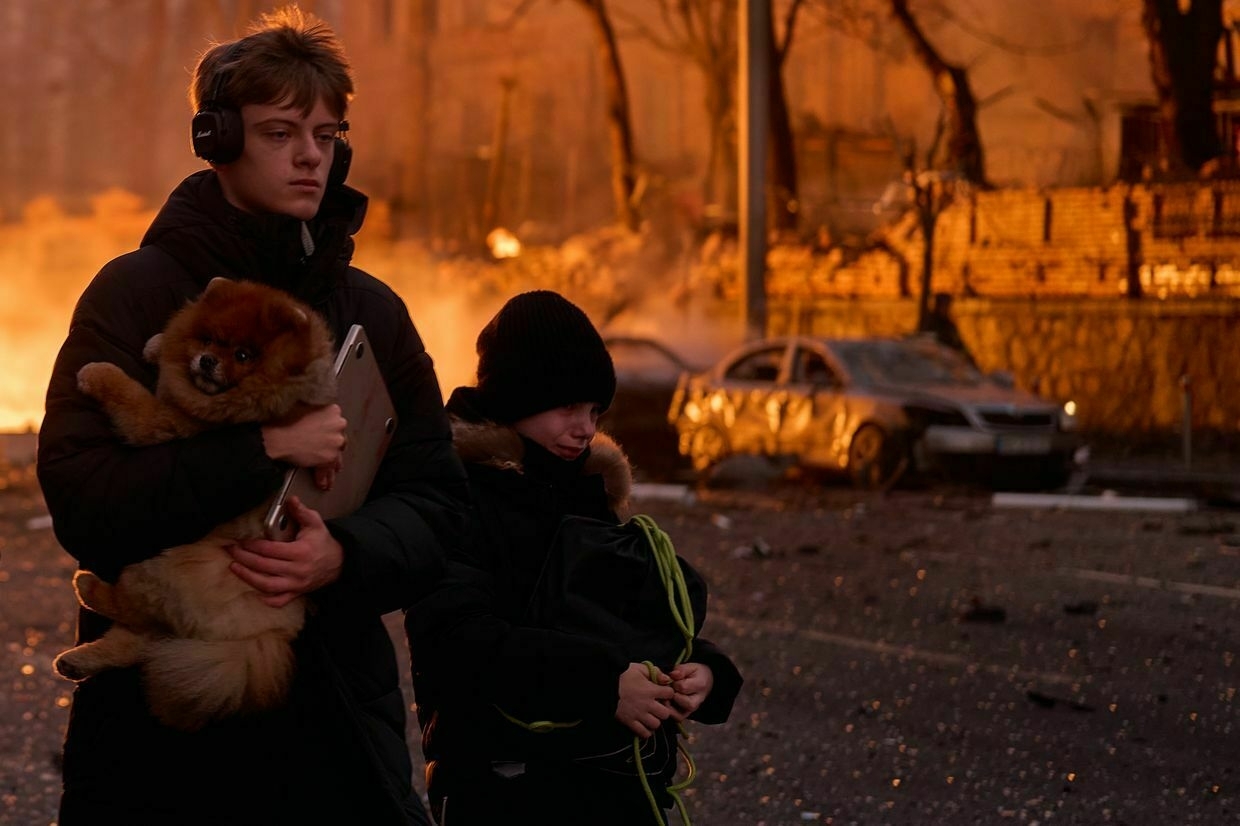
When I was at school and learned about World War II, my grandmother told me what she remembered of her wartime childhood on the English coast. Growing up near a Royal Navy base, she survived countless nighttime air raids.
Most of all, she remembered exactly how the Blitz sounded — the sirens, the terrifying throb of German aircraft overhead, the whistle of bombs, and the eventual explosions that ripped into her hometown night after night.
In Kyiv, in 2025, Russia provides a different sort of sensory experience.
There are no Russian bombers above the sky of Ukraine’s capital — they launch their missiles from hundreds, if not thousands, of kilometers away. But I do hear Russia’s deadly Shahed-type drones, waves of which Russia regularly sends to the Ukrainian capital under the cover of darkness.
These aren’t the small, first-person view drones used on the battlefield or against cities near the front. The drones in the sky above Kyiv have a wingspan of around 3 meters, and they sound more like lawnmowers or mopeds (as Ukrainians colloquially call them).
Shaheds typically start to approach Kyiv after sunset, and attacks sometimes last until sunrise. This means that the terror inflicted on a city of over three million people is primarily an audio experience, rather than visual. I’ve never seen a Shahed, but I’ve learned, unwillingly, to recognize the sound from various distances. I’ve also learned how different types of air defense sound, from deep, far-off booms on the other side of the Dnipro River to automatic gunfire from the back of trucks on the street below my apartment.
After a while, you use decibels as a basis for understanding how much danger you’re in.
 Sound of Shahed drone. (Elsa Court)0:00/0:13
Sound of Shahed drone. (Elsa Court)0:00/0:13If a Shahed drone gets too close, I hear its buzz rise to a nauseating pitch. Then, if I’m very unlucky, the noise screeches until what sounds like the engine cutting out. Silence for a heart-stopping second. Then the blast. I text my friends in different parts of the city to compare what we’ve just heard — “That one seemed loud, right? Was it downed, or did we hear a hit?”
In the morning, in a sleep-deprived state, we notice a sensitivity to everyday sounds. It could be the whir of an electric car engine accelerating, or the buzz of an automatic parcel locker, as one friend mentioned to me. It’s not just the sound of drones that can put people on edge, either. A few weeks back, one of the first summer storms came to the skies above Kyiv. Social media was full of posts about how the reverberation of the thunder sounded like an extended missile explosion. “Don’t worry, it’s just the sound of Zeus at work,” some people joked.
When I’m outside Ukraine, the acoustic impact of war becomes even more absurd. In London, I once paused a conversation to listen to a train going over the tracks in the distance because it sounded uncannily like the rhythm of automatic gunfire of air defense units around Kyiv. At a concert, I noticed that the rising chords of a synthesizer echoed the whining notes of Ukrainian air raid alarms. A heavy truck driving by at high speed can rattle window frames in the exact same way an explosion from a ballistic missile does.
 Automatic gunfire of air defense. (Elsa Court)0:00/0:21
Automatic gunfire of air defense. (Elsa Court)0:00/0:21Of course, the associations created by everyday noises are far worse for my colleagues who work on the front line. Someone moving heavy outdoor furniture on a concrete patio sounds, for a moment, like outgoing artillery fire. A sudden beep of a car horn can trigger a flinch. Hearing a tourist’s drone filming what will become happy vacation memories can provoke an automatic duck-and-cover response.
In my work, I try to find ways to communicate the importance of Russia’s war against Ukraine to our readers, the vast majority of whom are not in Ukraine and have never experienced this kind of war. But sometimes, it’s difficult to convey the reality on the ground through news articles and facts when much of Russia’s strategy against civilians seems to be designed to create a sensory overload.
I remember reading articles about the power cuts of the winter of 2022-2023, and how the hum of generators took over the streets of Ukrainian cities. It was only when I came to Kyiv in 2024, however, and experienced a summer of power cuts after Russia destroyed nearly all of Ukraine’s power grid in spring that I truly understood what this “hum” meant in reality.
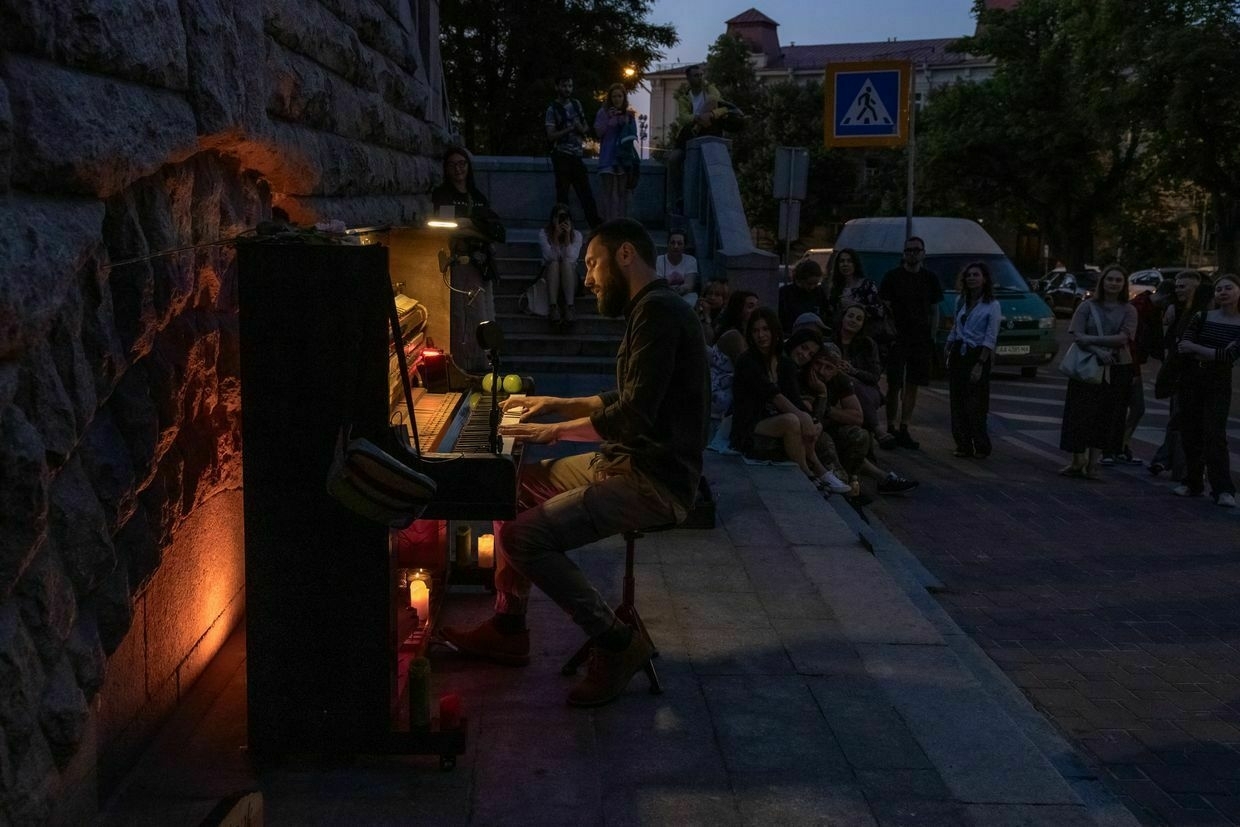
A street musician plays the piano during a partial blackout in Kyiv, Ukraine, on June 6, 2024, following Russian strikes on energy infrastructure. (Roman Pilipey/AFP via Getty Images) When nearly every business was forced to use a generator to stay open, there were few places you could comfortably sit outside after work. It’s easy to take for granted now, but there were parts of Kyiv where you couldn’t hold a conversation on the street with a friend. Amid a heat wave, there was no electricity for air conditioning, but you couldn’t leave your window open for long before the sound (and smell of diesel fumes) made it unbearable. If you walked to work, your thoughts were drowned out by the omnipresent vibrations.
The news at the time largely reflected the economic damage of Russia’s attacks on Ukraine’s energy infrastructure (and fears for a winter without power), but I remember how the constant attack on your senses began to chip away at morale. When a rolling blackout ended, and the power came back, I felt immediate relief that there would be a few hours of silence before the generators were turned on again.
The point is to intimidate Ukrainians not just through sheer violence (these attacks regularly kill people in their homes), but also through the noise of constant bombardments.
The impact on your hearing is very much an intended side effect of Russia’s more general campaign of terror. There’s little military advantage to waves of Shaheds direct at Kyiv. Most are downed by Ukrainian air defense units, but that doesn’t spare civilians from the terrifying sound of hours of explosions for the entire night. The point is to intimidate Ukrainians not just through sheer violence (these attacks regularly kill people in their homes), but also through the noise of constant bombardments.
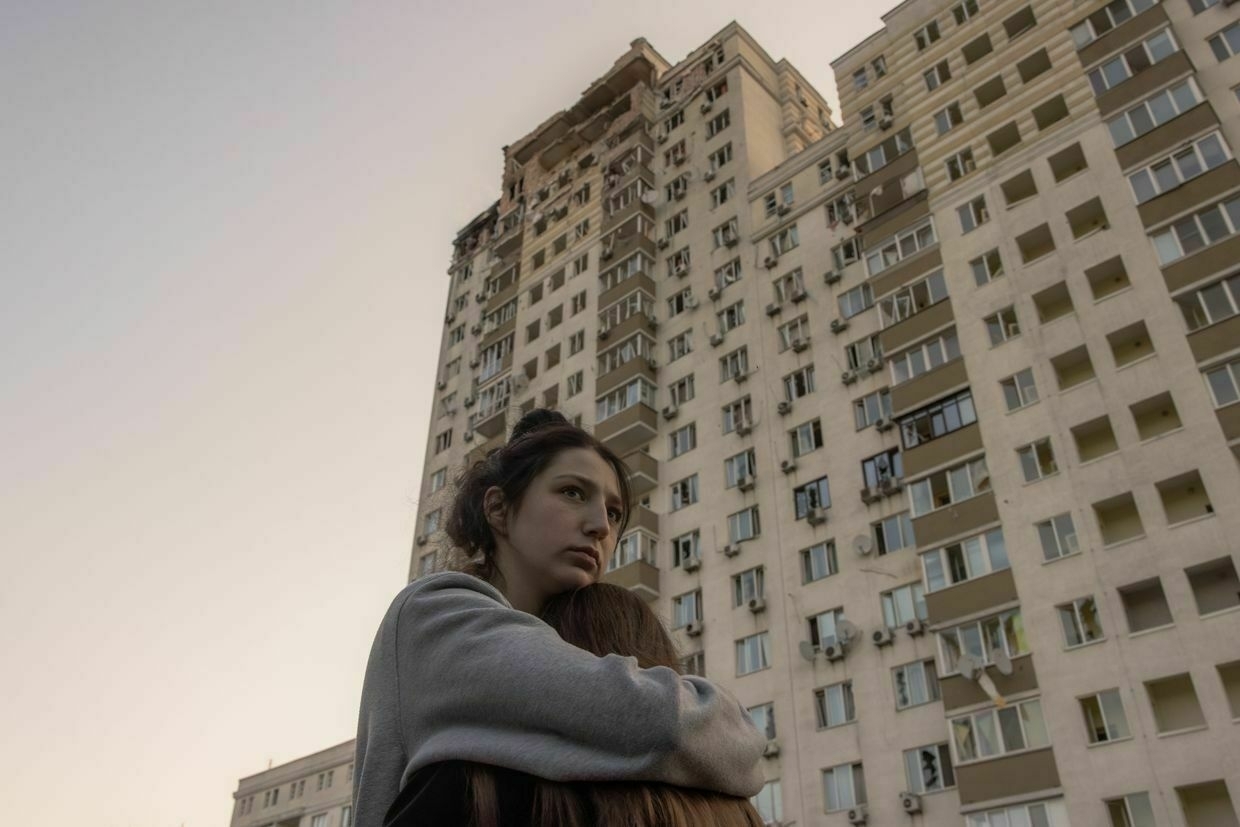
Women embrace outside a residential building damaged by a Russian drone attack in Kyiv, Ukraine, on May 30, 2023. (Roman Pilipey/Getty Images) It can be hard to sleep when you have a noisy upstairs neighbor. Now, imagine that neighbor is Russia, and it’s sending weapons that buzz and bang all night on purpose. It’s an effective form of psychological warfare, if you can ensure an entire city spends the next day sleep deprived, low in energy, and sensitive to the smallest of sounds.
I do not wish that those outside Ukraine start to associate everyday noises with deadly weapons. But understanding what the war sounds like in Kyiv might help others comprehend what kind of enemy we are dealing with, and the sound of terror that millions of civilians are forced to live with.
One of my colleagues regularly wears a hoodie with the words “Russia is a terrorist state” on the front — it’s no coincidence that this is someone who has become particularly sensitive to sound.
Editor’s Note: The opinions expressed in the op-ed section are those of the authors and do not purport to reflect the views of the Kyiv Independent.
‘He said he wasn’t going anywhere’ — Survivors search for missing following Russia’s deadliest attack on Kyiv this yearSitting a few meters from the rubble of what used to be a nondescript nine-story residential building in Kyiv, Lilia rises to her feet every time another pile of debris is cleared from the site targeted by Russia during a mass overnight attack on June 17. “We are waiting (asThe Kyiv IndependentKateryna Denisova
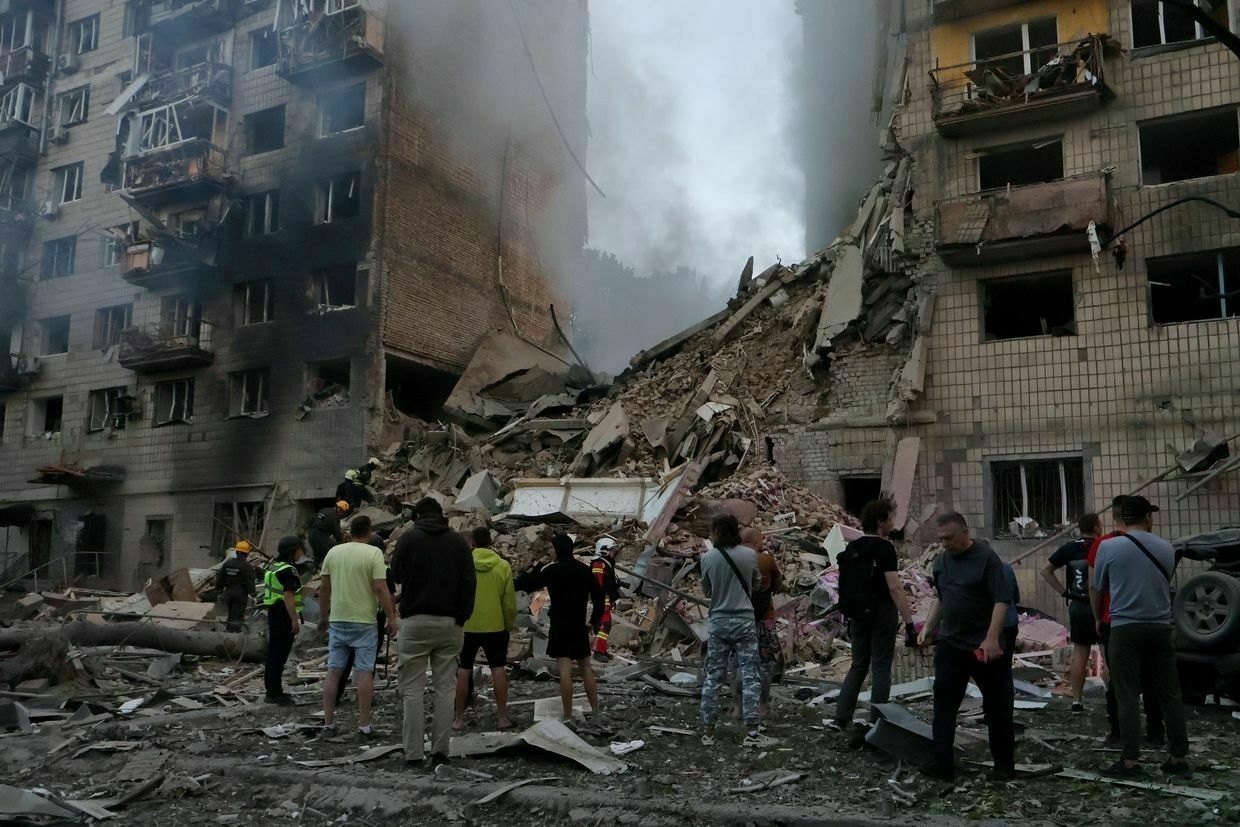
-
Putin under pressure from hardliners to declare all-out war on Ukraine following Operation Spiderweb, Telegraph reports
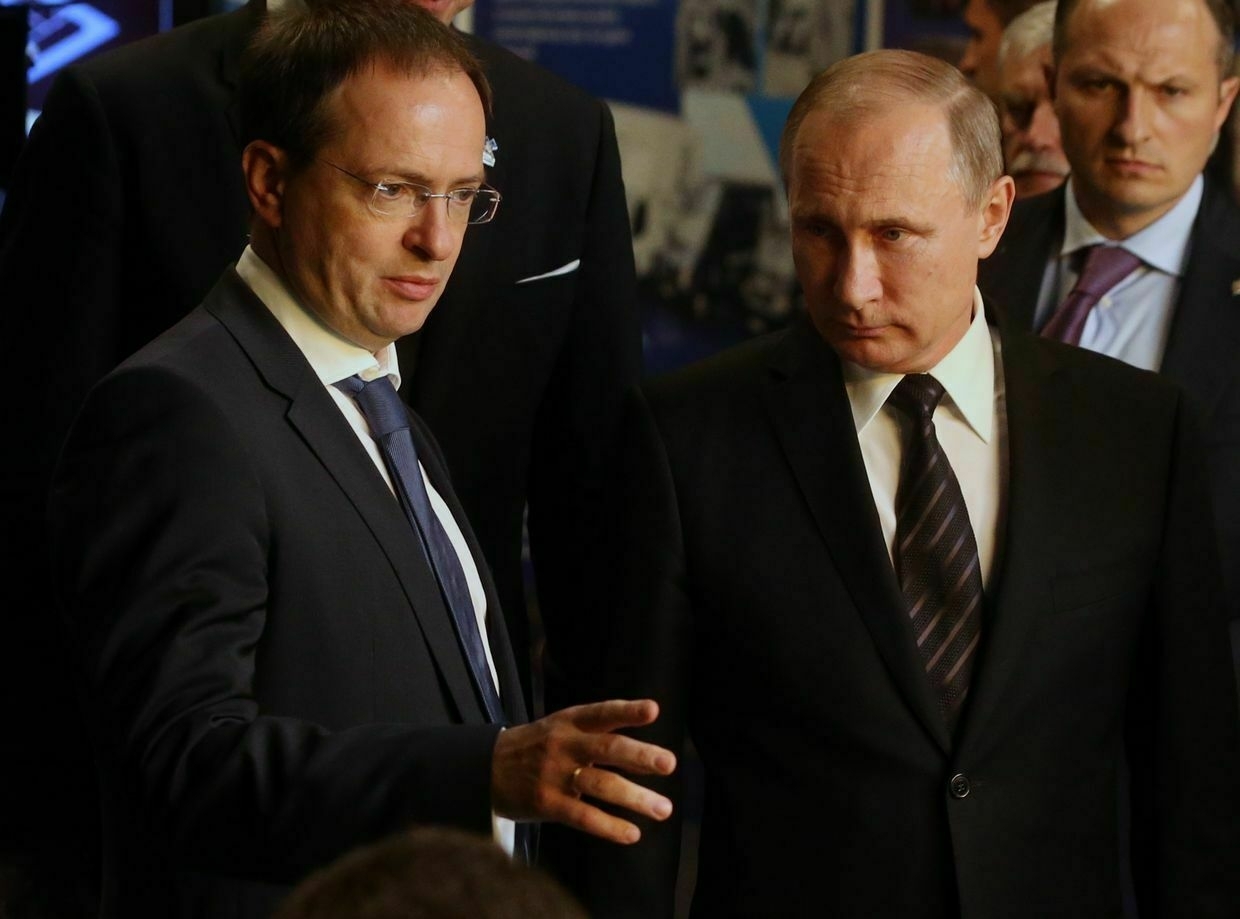
Russian President Vladimir Putin is facing renewed pressure from hardliners to formally declare war on Ukraine, with critics inside the Kremlin warning what he calls his “special military operation” no longer goes far enough.
Anger intensified following Ukraine’s June 1 drone strike, dubbed Operation Spiderweb, which targeted four Russian air bases deep inside the country and reportedly damaged at least 20 Russian nuclear bombers. “Shock and outrage” is how one senior official described to the Telegraph the mood in the Kremlin, while another called the attack “a personal tragedy."
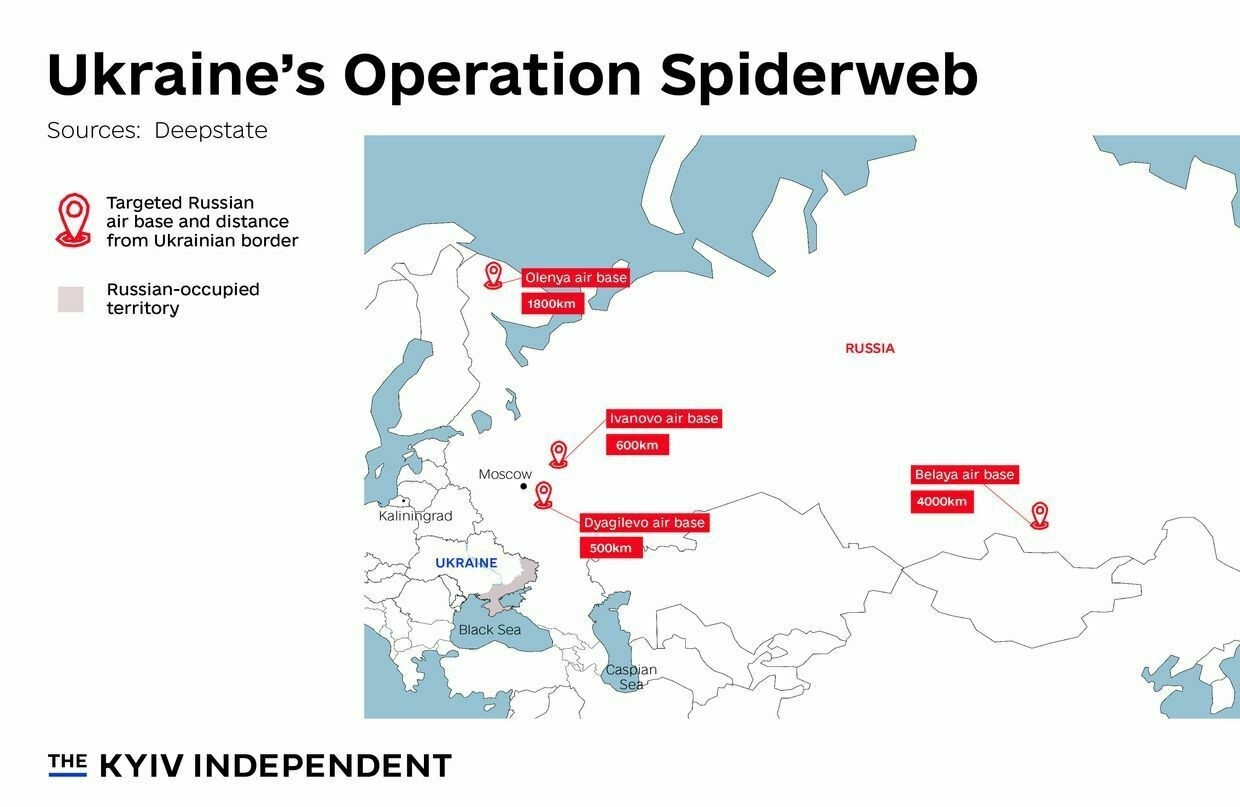
Russia has apparently redeployed dozens of long-range bombers to more remote bases within the country following the strike, Russian independent media outlet Agentstvo reported on June 11, citing OSINT analyst AviVector.
Despite the escalation, the Kremlin has so far avoided any dramatic shift in strategy. “This did not catalyse a political discussion or a change in the format of military operations,” a former Kremlin official told the Telegraph. Another source close to the Russian Defense Ministry said, “Could the president declare war on Kyiv? Right now, unlikely. As cynical as it may sound, the leadership is satisfied with the current situation.”
Hardliners argue that only a formal war declaration would permit true escalation—full-scale mobilisation, regular missile strikes, and potentially the use of tactical nuclear weapons. One analyst told the Telegraph that a formal war declaration would give the Russian government sweeping authority to shift the country fully onto a wartime footing.
However, despite record levels of defense spending, the Kremlin has avoided taking that step—seeking instead to preserve the illusion of control and protect the broader population from the immediate impact of the war.
The Kremlin is projected to allocate 6.3 percent of its GDP to defense this year — the highest level since the Cold War — yet still far below what would typically indicate a country fully mobilised for war. By contrast, Ukraine spent 34 percent of its GDP on defense last year, while British military spending surpassed 50 percent of GDP during the Second World War.
“Mobilisation undermines economic stability,” said one current government employee. According to him, those in Putin’s inner circle have convinced the president that large-scale mobilisation could trigger the collapse of the war effort. “And why is it needed now? We have Kalibr missiles, we have volunteers. Their resources are not yet exhausted,” he was quoted as saying.
Ukraine’s SBU releases fresh video of Operation Spiderweb, teases ‘new surprises’“The SBU is hitting and will hit (Russia) where it considers itself unreachable!” SBU chief Vasyl Maliuk said. “We are working on new surprises, no less painful than the Operation Spiderweb.”The Kyiv IndependentMartin Fornusek
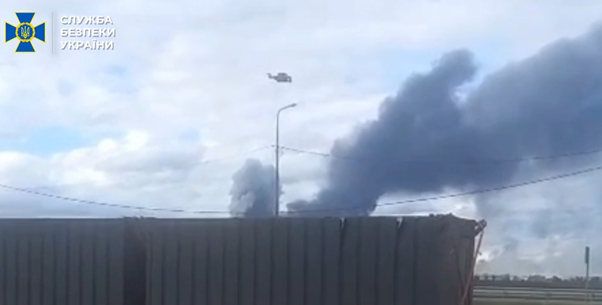
-
Ukraine war latest: 'Do me a favor Vladimir, mediate Russia first' — Trump roasts Putin over Israel, Iran offer
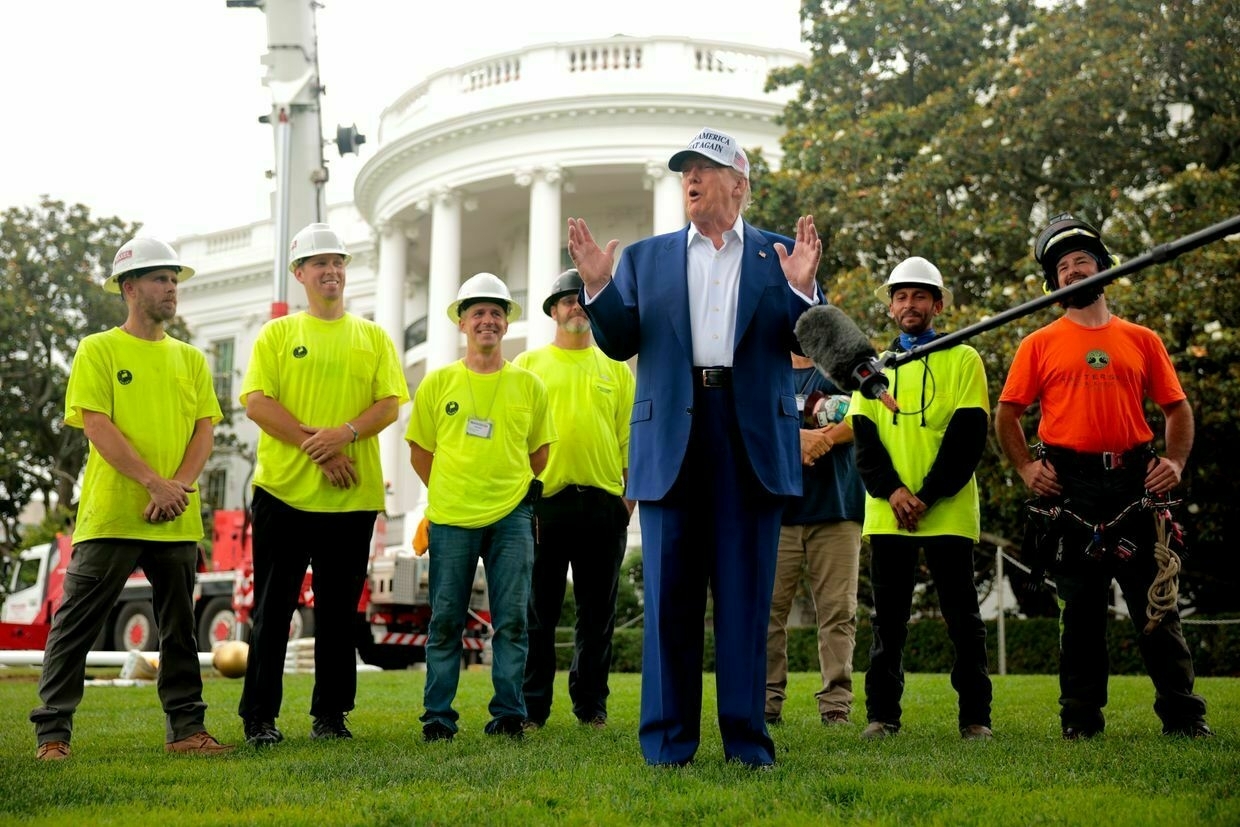
Key developments on June 18:
- ‘Do me a favor Vladimir, mediate Russia first’ — Trump roasts Putin over Israel, Iran offer
- Ukraine kills collaborator tied to POW torture in occupied Berdiansk, intelligence source claims
- Zelensky may reportedly skip NATO summit over uncertainty about Trump’s attendance
- Ukraine dismisses Russia’s ‘absurd’ ceasefire condition for dismantling Western arms
- Kellogg to meet Lukashenko in highest-ranking US visit to Belarus in years, Reuters reports
U.S. President Donald Trump said on June 18 that he had turned down Russian President Vladimir Putin’s offer to mediate the escalating conflict between Israel and Iran.
“I spoke to him yesterday, and, you know, he actually offered to help mediate. I said, do me a favor. Mediate your own,” Trump told reporters. “Let’s mediate Russia first, okay? I said, Vladimir, let’s mediate Russia first. You can worry about this later."
Shortly after Trump’s statement, Kremlin spokesperson Dmitry Peskov said the U.S. president was speaking “figuratively” when referring to a conversation with Putin, according to the Russian state news agency TASS.
“Life is so eventful these days that a retrospective covering several days is like looking back at yesterday,” Peskov added, implying there had been no such conversation on June 17.
Trump’s comments come just days after he had said he was “open” to the idea of Putin serving as a mediator between Israel and Iran, sparking criticism from U.S. allies. On June 15, Trump claimed Putin was “ready” and had discussed the possibility at length in a recent phone call.
Putin, whose country has been deepening military cooperation with Tehran, spoke separately with Israeli Prime Minister Benjamin Netanyahu and Iranian President Masoud Pezeshkian on June 13. He condemned Israel’s air strikes on Iran and offered Russian mediation.
Those strikes, described by Israel as “preemptive,” involved 200 warplanes and 330 munitions targeting Iranian nuclear and military sites. Iran responded with missile attacks on Israeli cities, including Tel Aviv, that killed at least five Ukrainian citizens on June 14.
Trump says Putin offered to mediate in the war between Israel and Iran.
— Brian Lilley (@brianlilley) June 18, 2025
Trump: “Do me a favor. Mediate your own. Let’s mediate Russia first. I said, Vladimir, let’s mediate Russia first. You can worry about this later.”
pic.twitter.com/2JOL6noPX3Putin's offer of mediation has been dismissed by several Western leaders.
French President Emmanuel Macron said Russia "cannot be a mediator," given its war against Ukraine. EU foreign policy chief Kaja Kallas echoed that sentiment, saying on June 17 that Putin "cannot be trusted to mediate peace" while continuing to wage war on Ukrainian civilians.
Kremlin spokesperson Dmitry Peskov said on June 17 that Israel appeared unwilling to accept Moscow's mediation. Israel has not publicly commented on the offer.
Ukraine, which has been targeted by thousands of Iranian-made Shahed drones and missiles supplied to Russia, warned that Tehran is a "source of problems" both regionally and globally.
Despite Trump's latest rebuke of Putin's mediation ambitions, the U.S. president has continued to avoid placing additional sanctions on Moscow, even as the Kremlin refuses to agree to a ceasefire in its war against Ukraine.
For the first time, Australia sanctions Russian shadow fleet oil tankers“Russia uses these vessels to circumvent international sanctions and sustain its illegal and immoral war against Ukraine,” Australia’s Foreign Ministry said in a statement.The Kyiv IndependentAnna Fratsyvir
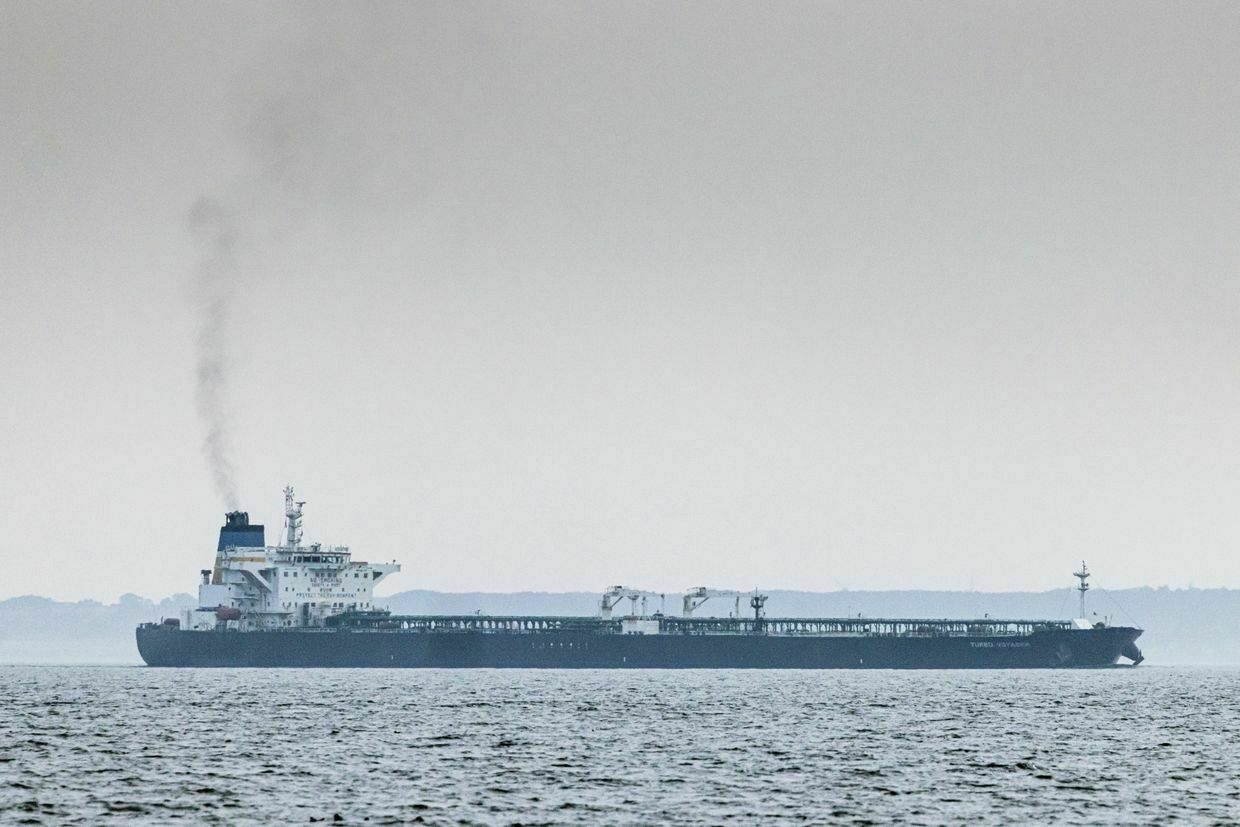
Ukraine kills collaborator tied to POW torture in occupied Berdiansk, intelligence source claimsDuring a targeted operation, Ukraine's military intelligence (HUR) killed Mykhailo Hrytsai, a senior collaborator with Russian occupation authorities in Berdiansk, Zaporizhzhia Oblast, a HUR source told the Kyiv Independent on June 18.
According to the source, Hrytsai was directly involved in organizing repressions against the local Ukrainian population and establishing torture chambers for prisoners of war.
The collaborator was shot dead in the city using a silenced PM pistol, the source said.
Hrytsai served as the Russian-installed deputy mayor responsible for infrastructure, housing, utilities, and the energy sector. The source also said he facilitated the illegal seizure of municipal and state property in Berdiansk.
"There are still plenty of such targets — collaborators, accomplices of the enemy — in the occupied territories of Ukraine," the source said.
"We will definitely get to each and every one of them and put an end to their criminal activities by any means necessary: with or without a silencer, quietly or loudly, but always effectively."
A native of Poltava Oblast, Hrytsai had previously participated in Ukrainian political life. He was an assistant to a member of parliament and headed the Berdiansk branch of the Socialist Ukraine party before siding with Russian occupation forces.
Berdiansk, a port city on the Azov Sea, has been under Russian control since the early days of the full-scale invasion in 2022. It remains a critical logistics hub for Russian forces, facilitating the transport of looted Ukrainian grain and other resources.
On Feb. 20, another targeted strike in Berdiansk killed Yevgeny Bogdanov, the deputy head of the Russian-installed administration, according to Ukrainian military intelligence.
‘Beyond cynical’ – Russian doctor carved ‘Glory to Russia’ scar on POW during operation, Ukraine saysAfter more than three years of Russia’s full-scale invasion, each new revelation of cruel treatment of Ukrainians in Russian captivity hardly surprises anyone. But when a photo recently emerged online, showing a “Glory to Russia” scar on the body of a Ukrainian prisoner of war (POW), it sent shockwavesThe Kyiv IndependentDaria Shulzhenko

Zelensky may reportedly skip NATO summit over uncertainty about Trump's attendancePresident Volodymyr Zelensky may reconsider attending the NATO summit in The Hague, as questions remain over U.S. President Donald Trump's participation, the Guardian reported on June 17, citing unnamed Ukrainian officials.
According to the Guardian, some in Kyiv are unsure if Zelensky's presence at the June 24-25 summit would be worthwhile without a confirmed meeting with Trump, whom they had hoped to engage directly in efforts to pressure Russian President Vladimir Putin into accepting a ceasefire.
Earlier, Zelensky had traveled to the G7 summit in Canada, hoping to meet one-on-one with Trump and push for stronger sanctions against Russia. Trump left the summit early, citing the crisis in the Middle East, and no bilateral meeting or joint G7 statement took place.
One official told the Guardian that Ukraine is in a "permanent hazard" of becoming a victim of "Trump's short attention span," adding that Russia has exploited this uncertainty by fresh aerial attacks. The source added that there had been "all sorts of promises for this summit," including U.S. arms.
The Russian attack on Ukraine that occurred during the G7 summit killed at least 24 civilians and injured 134 in Kyiv. Trump has not responded to the attack as of the day after.
German Chancellor Friedrich Merz has reportedly said Trump had previously promised to attend the NATO gathering, though no official confirmation has been issued from Washington.
Despite the setback, Zelensky said the G7 meeting had concrete results for Ukraine. In a Telegram post on June 17, he thanked partners for increased military aid, new sanctions on Russia, and the decision to allocate frozen Russian assets for Ukraine’s reconstruction.
"It is important that our partners are ready not only to support our defense now, but also to rebuild Ukraine together after the war ends," he said.
Canadian Prime Minister Mark Carney announced a support package that includes 2 billion Canadian dollars ($1.5 billion) in military assistance and another $1.6 billion in reconstruction loans. The aid includes drones, armored vehicles, ammunition, and sanctions to disrupt Russia's energy revenues.
U.K. Prime Minister Keir Starmer also unveiled new sanctions targeting Russia's military-industrial complex and 20 oil tankers from Russia's "shadow fleet."
Zelensky later told G7 leaders that "diplomacy is now in a state of crisis" and called on allies to press Trump to "use his real influence" to help end the war.
Ukraine has been invited to the NATO summit, and Zelensky previously called the invitation "important" during a June 2 press briefing. At the time, he did not confirm whether he would attend in person.
Ukraine won’t receive NATO invitation at The Hague summit, Lithuanian FM says“This issue is certainly not on the NATO agenda and nobody has formulated an expectation that there will be an invitation in The Hague, nor have we heard that from the Ukrainians themselves,” Lithuanian Foreign Minister Kestutis Budrys said in comments quoted by the LRT broadcaster.The Kyiv IndependentMartin Fornusek
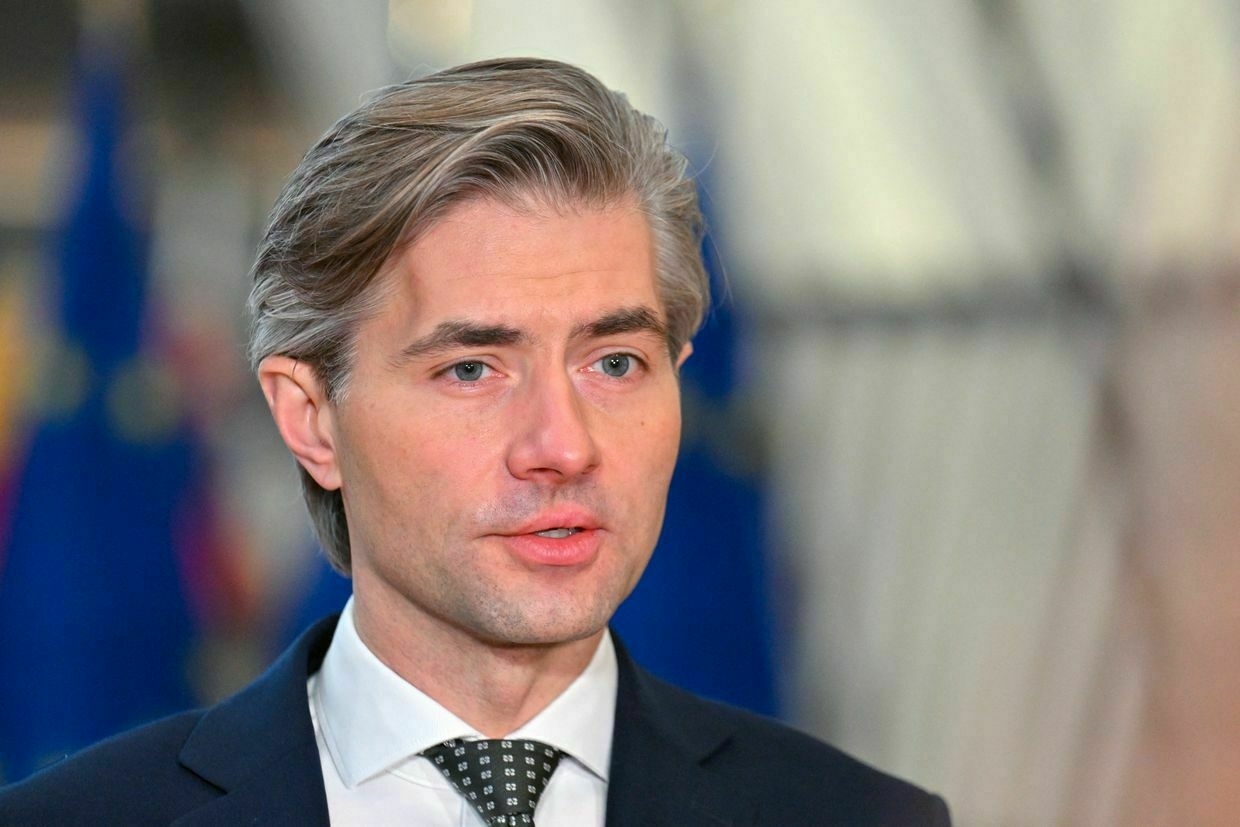
Ukraine dismisses Russia's 'absurd' ceasefire condition for dismantling Western armsUkraine's Foreign Ministry on June 18 brushed off Moscow's demands for Kyiv to destroy or dismantle Western-supplied weapons as a condition for a ceasefire, saying it shows disregard for U.S. peace efforts.
"Russian officials make new absurd demands almost every day. Total inadequacy," Ukrainian Foreign Ministry spokesperson Heorhii Tykhyi said on X.
"Moscow shows complete disregard for the United States' efforts to end the war."
Russian Deputy Foreign Minister Alexander Grushko raised the demand in an interview with the state-run newspaper Izvestia earlier this week.
"All these surpluses must be destroyed. All international algorithms are known. They must be reduced, disposed of, and guaranteed," Grushko said.
The Kremlin has previously demanded a complete halt on Western military aid to Ukraine as a key condition for a truce. Kyiv and its European partners have rejected this, instead urging increased military assistance to the war-torn country.
The demand reflects Moscow's growing list of maximalist conditions presented in its so-called "peace memorandum" during negotiations with Ukraine in Istanbul on June 2.
While the recent peace talks ended with an agreement on major prisoner exchanges and repatriation of fallen soldiers, they have failed to achieve a breakthrough in the peace talks.
U.S. President Donald Trump, who initially pledged to broker peace in Ukraine within 24 hours of taking office, has become increasingly disengaged in the effort. He has also been reluctant to apply pressure on Moscow to push it to a ceasefire deal despite repeatedly threatening additional sanctions.
‘He said he wasn’t going anywhere’ — Survivors search for missing following Russia’s deadliest attack on Kyiv this yearSitting a few meters from the rubble of what used to be a nondescript nine-story residential building in Kyiv, Lilia rises to her feet every time another pile of debris is cleared from the site targeted by Russia during a mass overnight attack on June 17. “We are waiting (asThe Kyiv IndependentKateryna Denisova
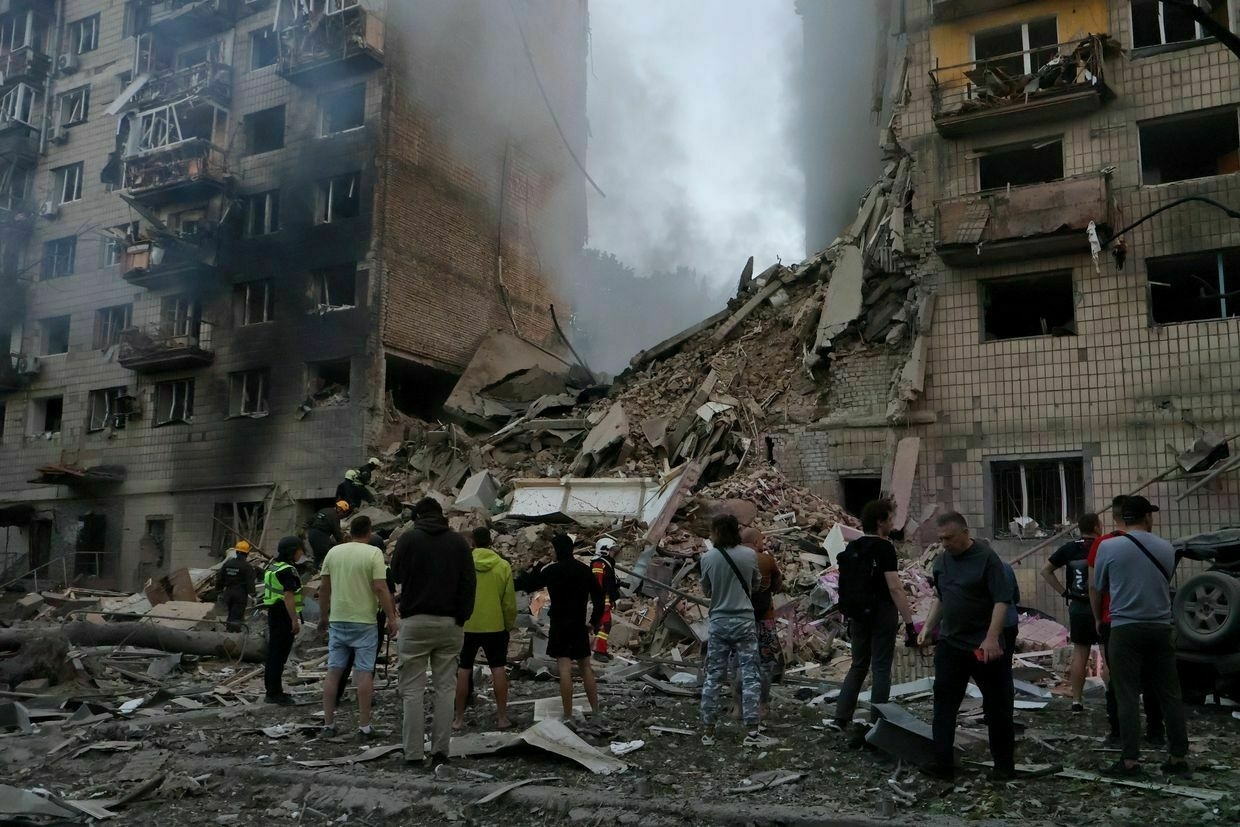
Kellogg to meet Lukashenko in highest-ranking US visit to Belarus in years, Reuters reportsU.S. Special Envoy for Ukraine Keith Kellogg will meet Belarusian President Alexander Lukashenko in the coming days, Reuters reported on June 17, citing four sources familiar with the matter.
Kellogg will meet Lukashenko in a visit to Belarus as peace talks to bring an end to Russia's war against Ukraine remain inconclusive, Reuters reported.
In February, U.S. Deputy Assistant State Secretary Christopher W. Smith visited Belarus alongside two other U.S. officials to conduct a prisoner swap in a similar unannounced visit.
Lukashenko has been in power since 1994 and has been accused of staging fraudulent elections in Belarus. The leader declared a seventh consecutive presidential election victory in January.
Kellogg has given the impression that the meeting could help reinitiate largely unsuccessful peace talks between Ukraine and Russia, two sources told Reuters.
Lukashenko is seen as a key ally of Russian President Vladimir Putin as Russia faces isolation in response to its full-scale war against Ukraine.
The White House has discussed ways to weaken Russia's influence on Minsk and bring Belarus closer to the United States, one of the sources said.
On Feb. 12, Smith drove to Belarus from Lithuania following a phone call with Lukashenko. The small U.S. delegation visited a border town where three political prisoners were transferred, including one U.S. citizen and two Belarusian citizens, the New York Times reported.
Lukashenko assured he was ready to decrease repression in Belarus, Smith said, adding that the U.S. wants Belarus to be less reliant on Russia.
Belarus has faced Western sanctions following a presidential election in 2020 that international observers condemned as fraudulent. The sham election garnered mass protests that rejected the results.
Minsk refused to invite a mission from the Organization for Security and Cooperation in Europe (OSCE) to observe the country's Jan. 26 presidential election.
Belarus further isolated itself from the West as it supports Russia in its ongoing war against Ukraine.
Note from the author:
Ukraine War Latest is put together by the Kyiv Independent news desk team, who keep you informed 24 hours a day, seven days a week. If you value our work and want to ensure we have the resources to continue, join the Kyiv Independent community.